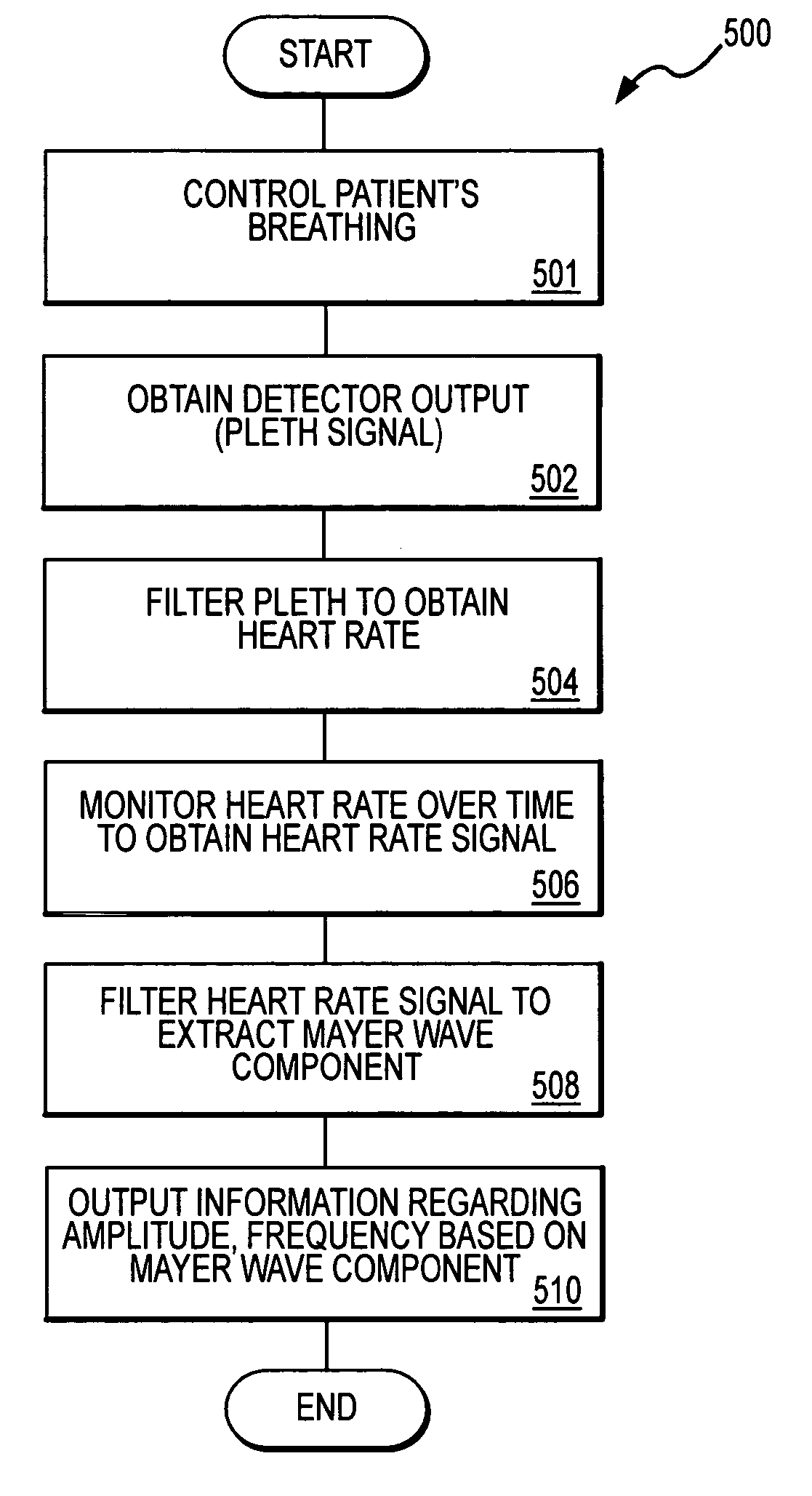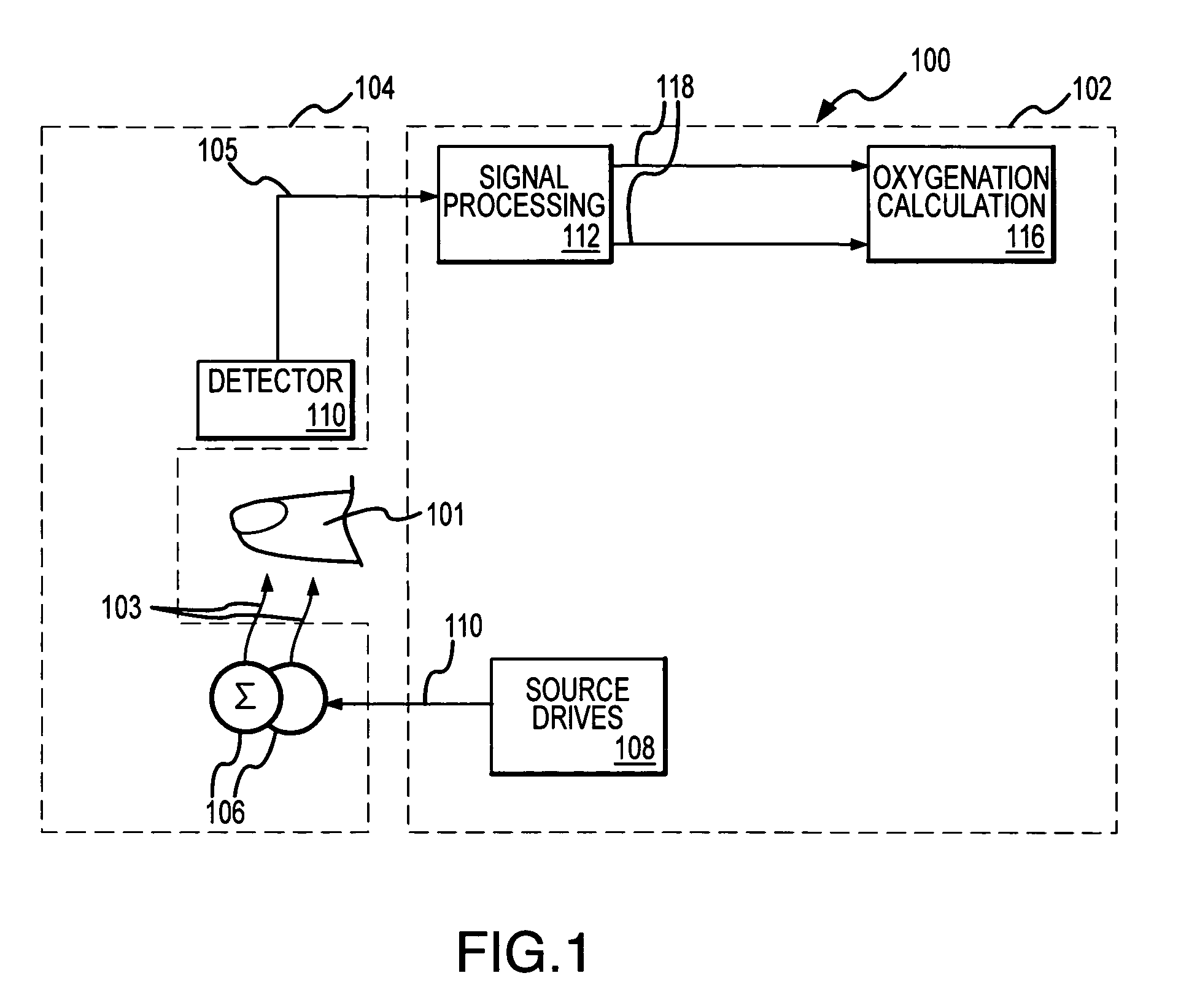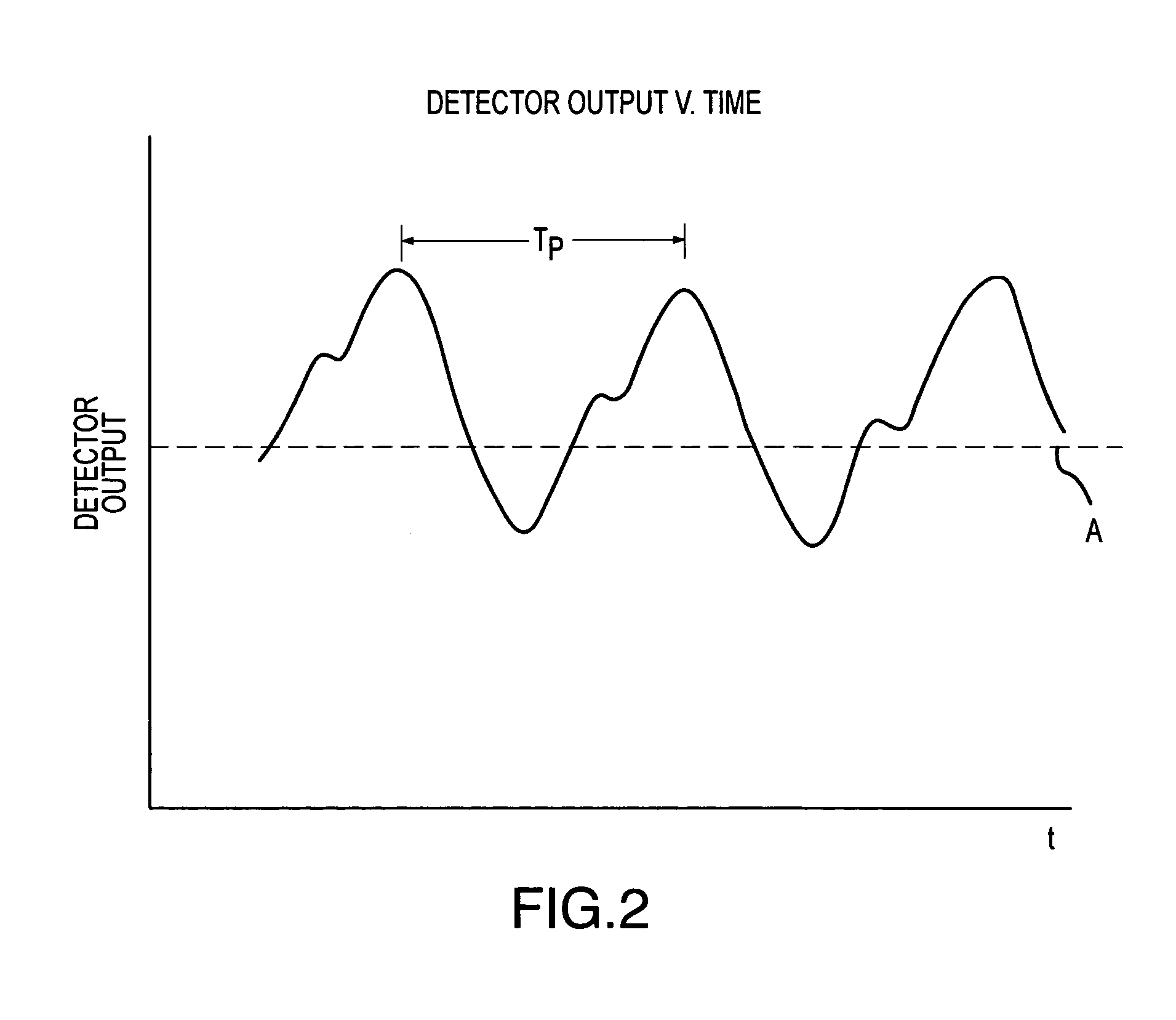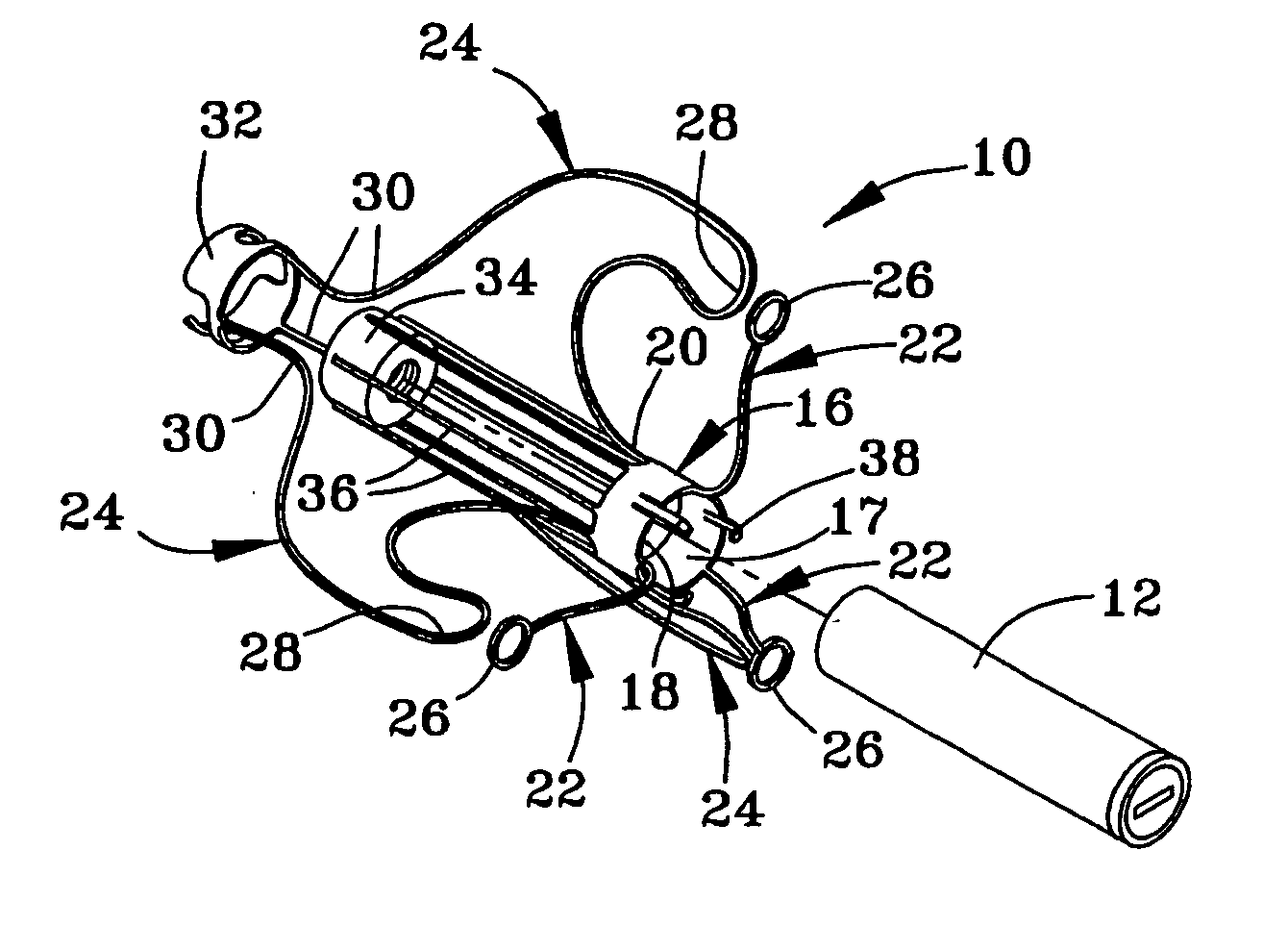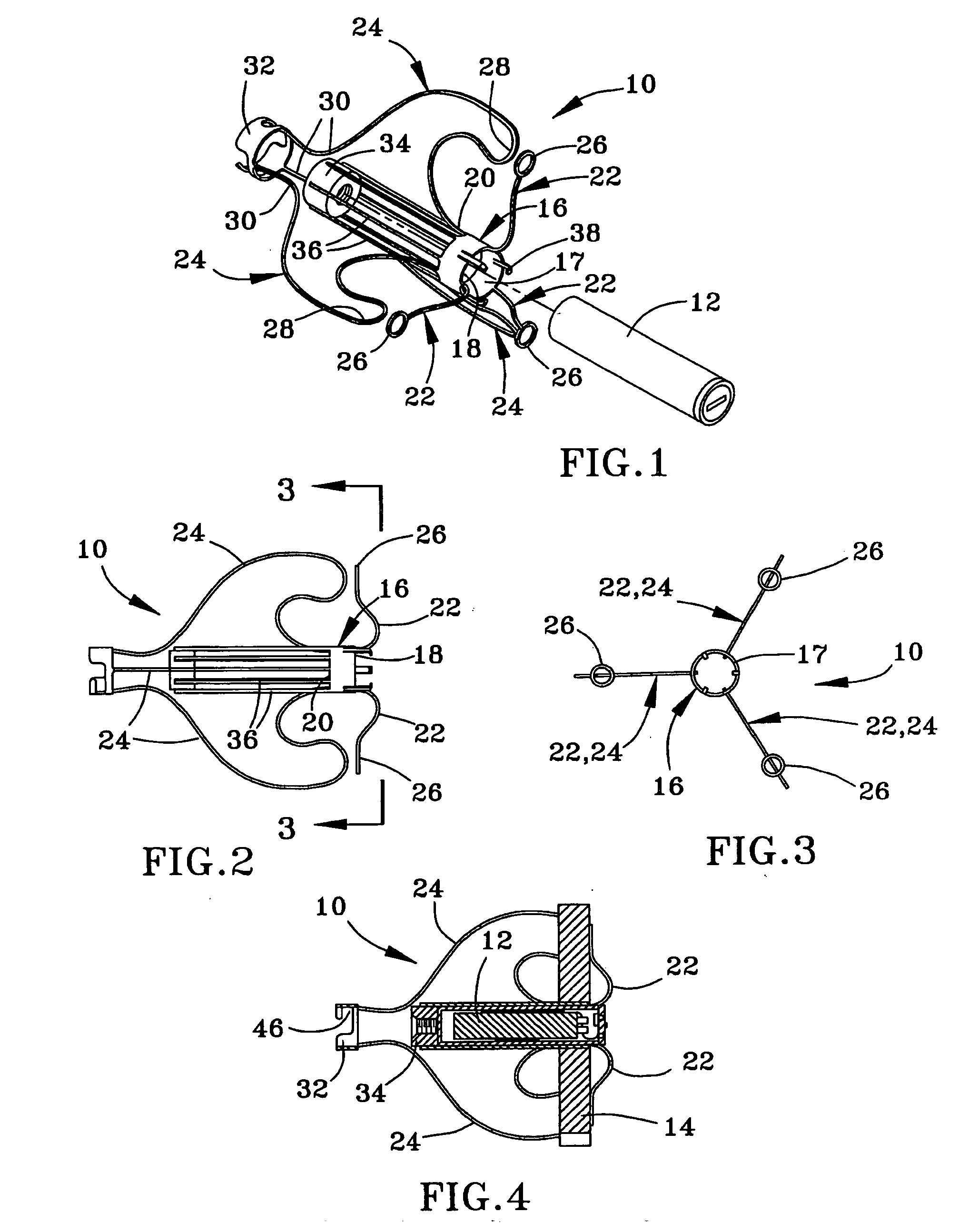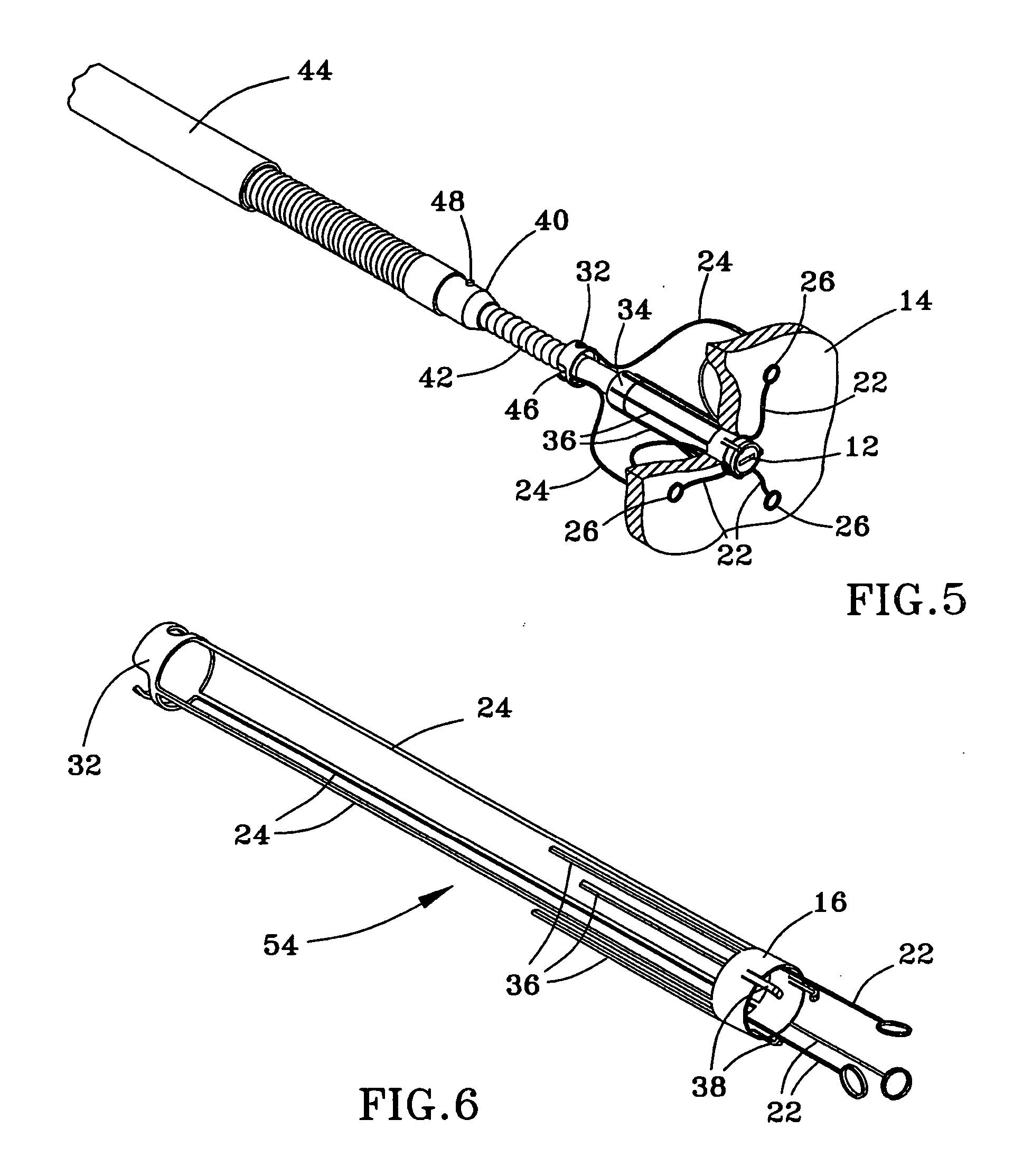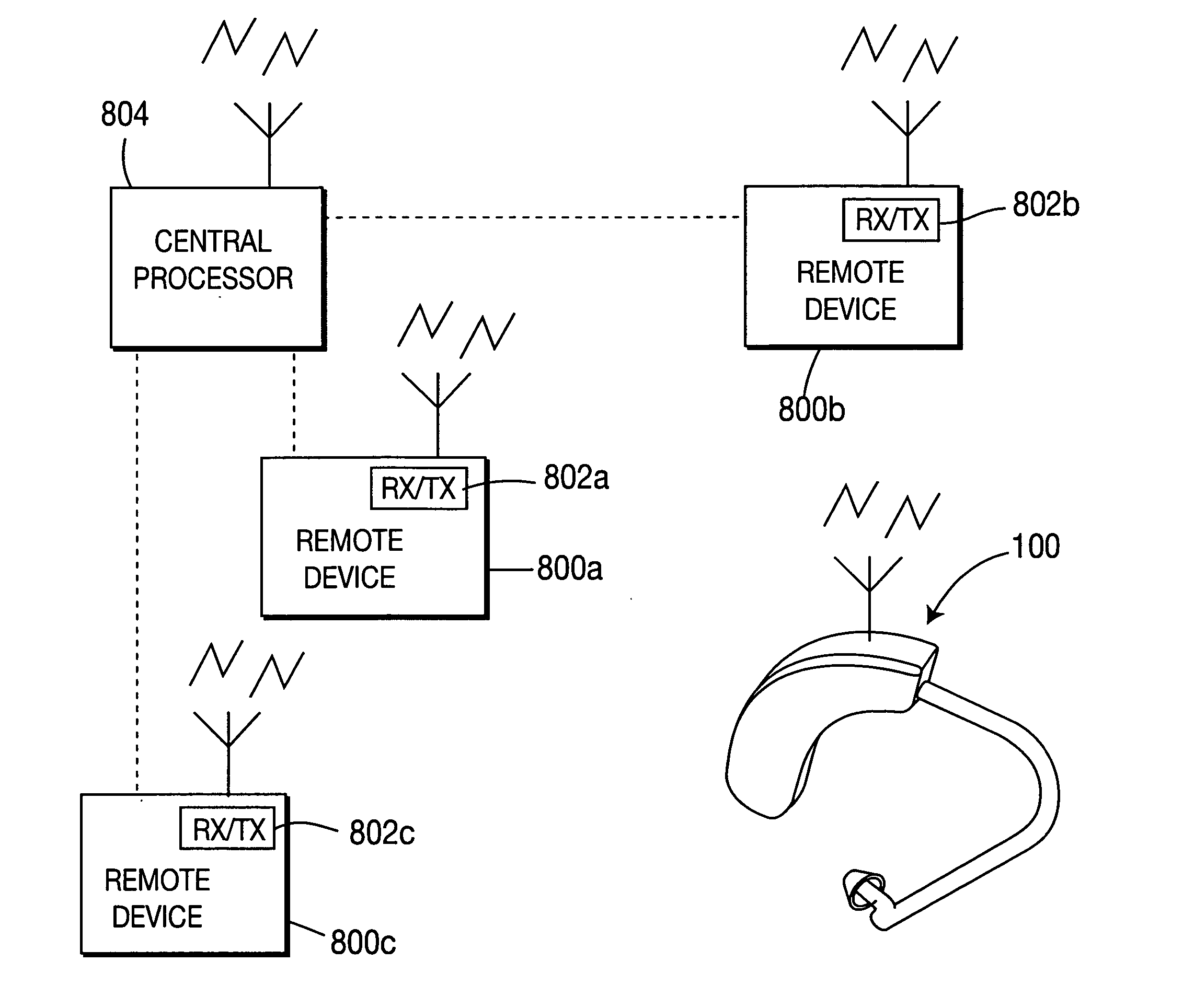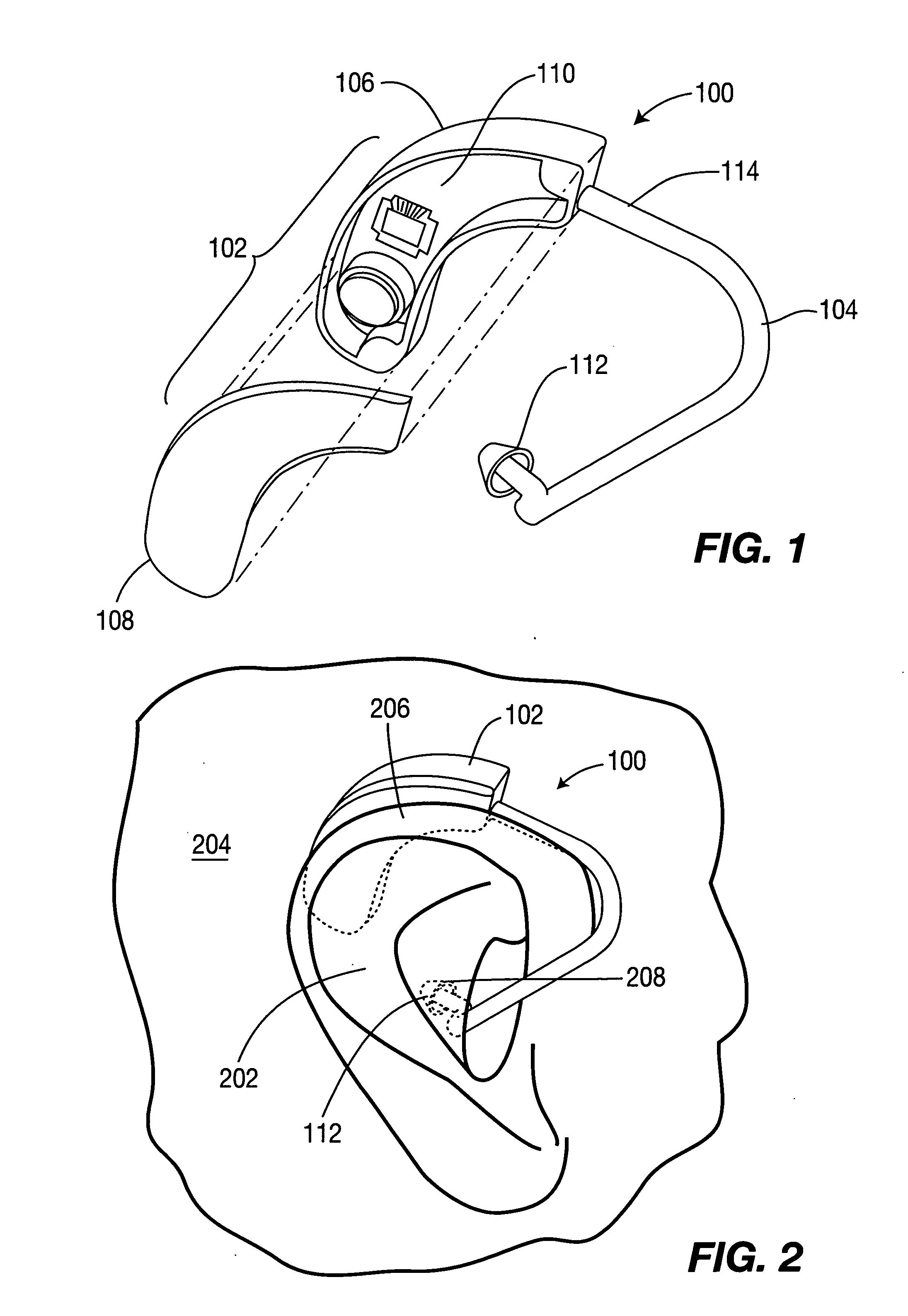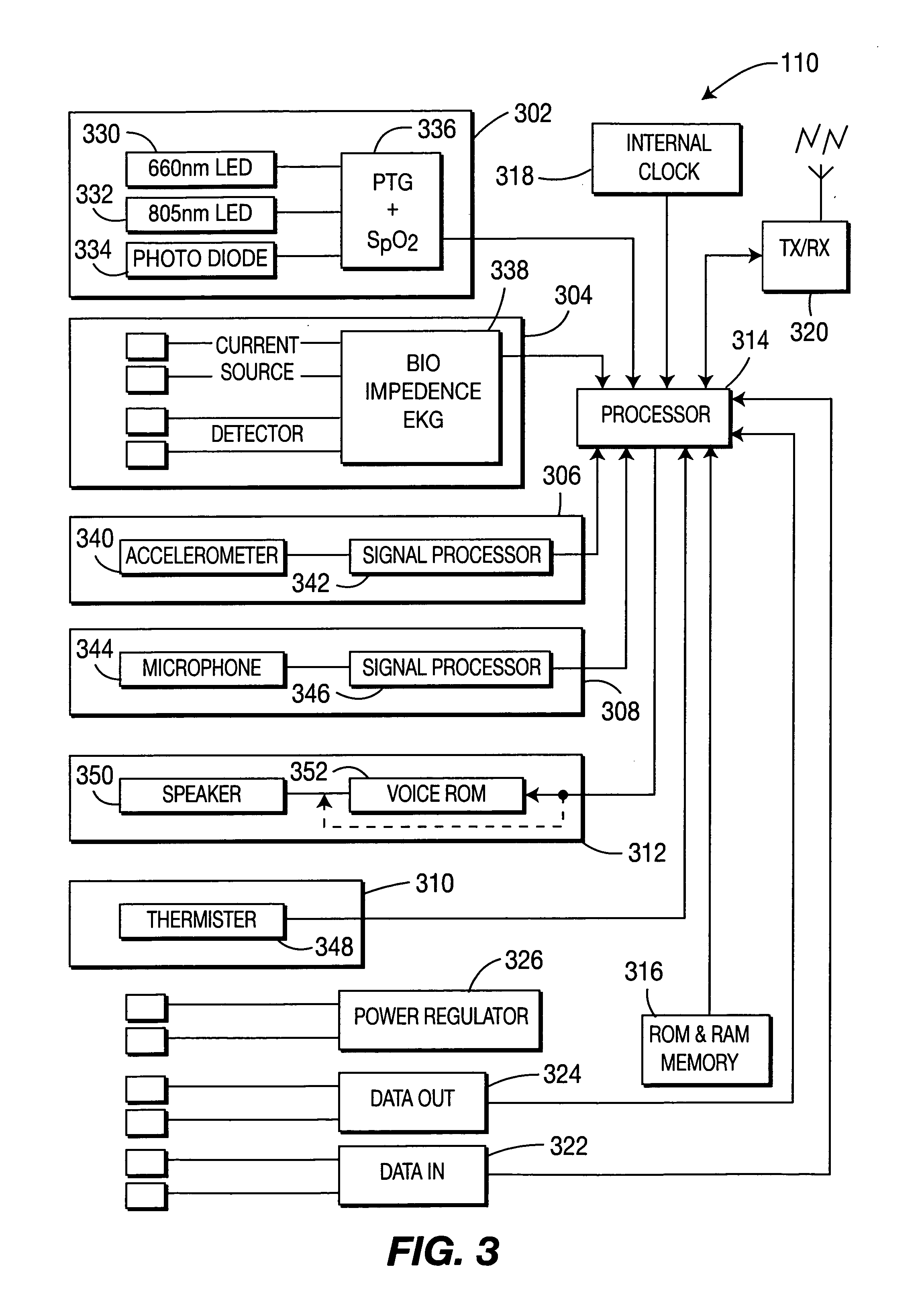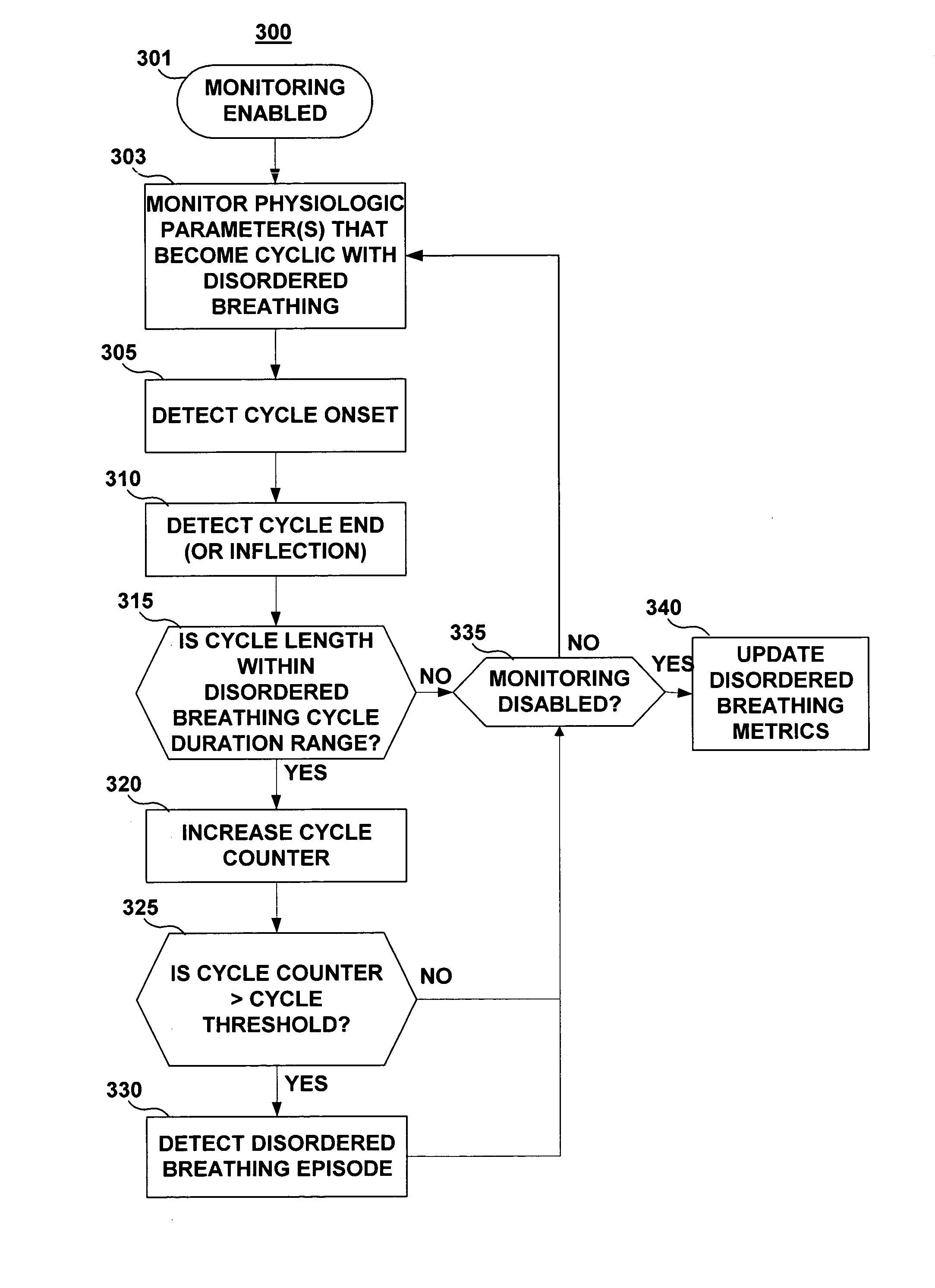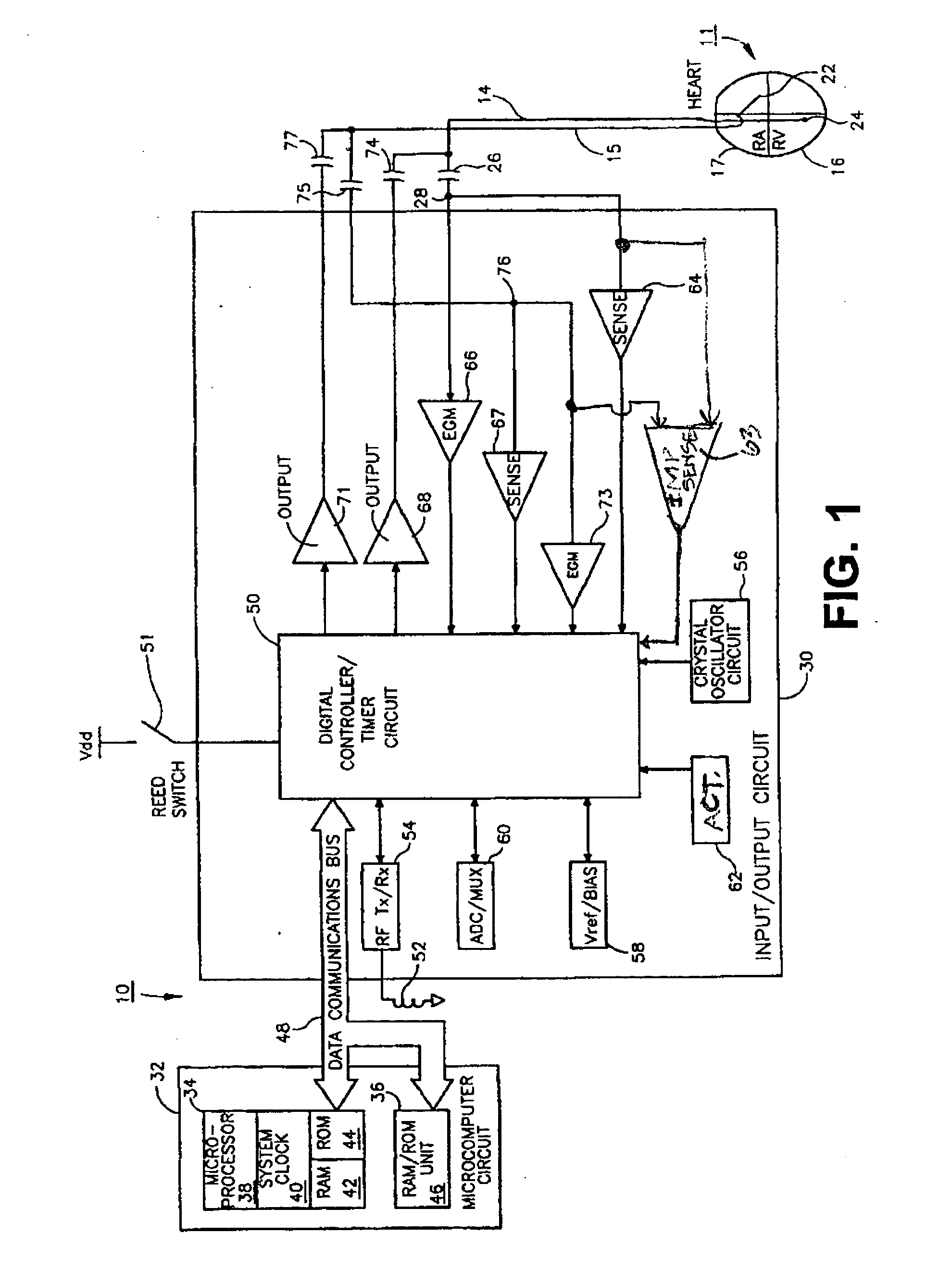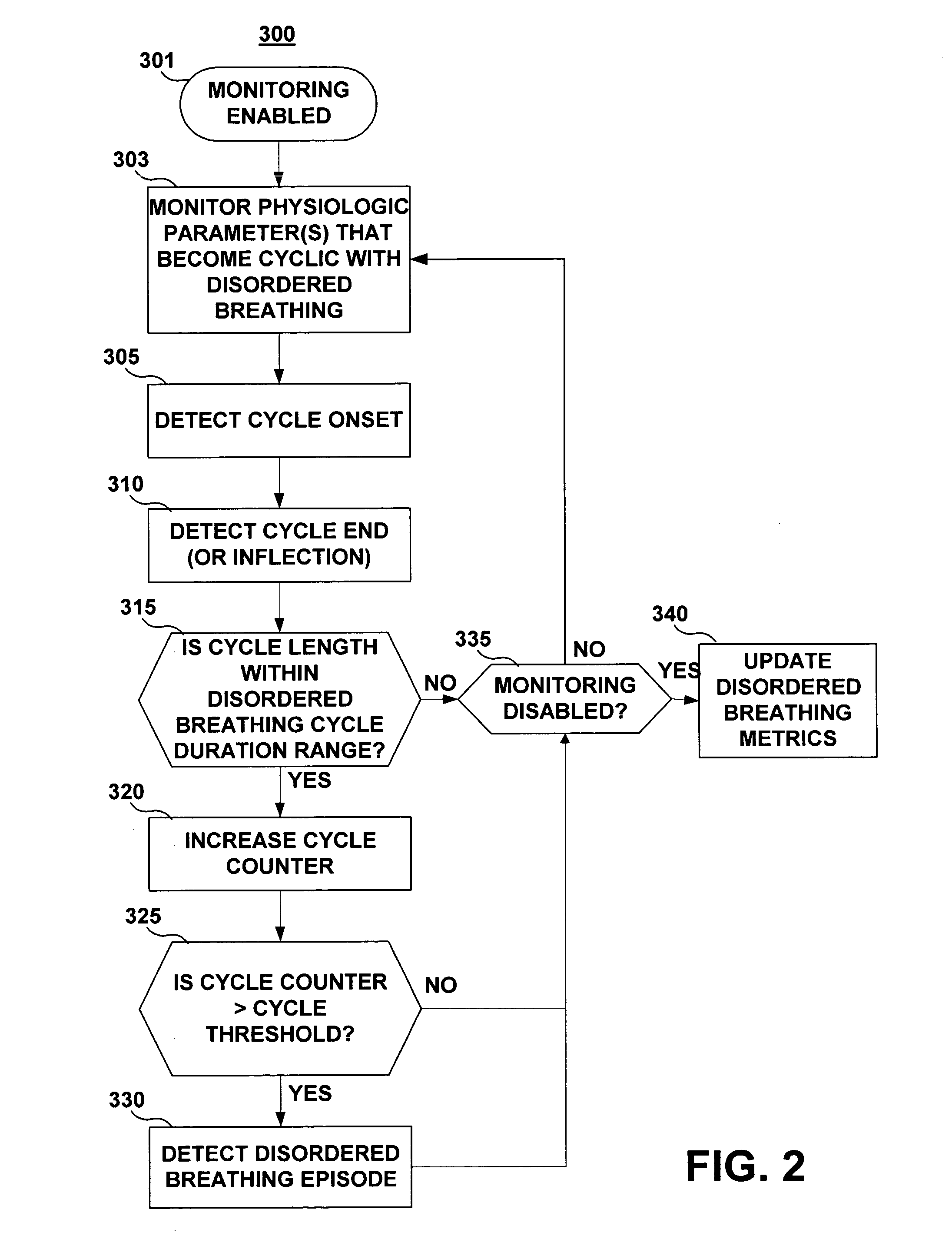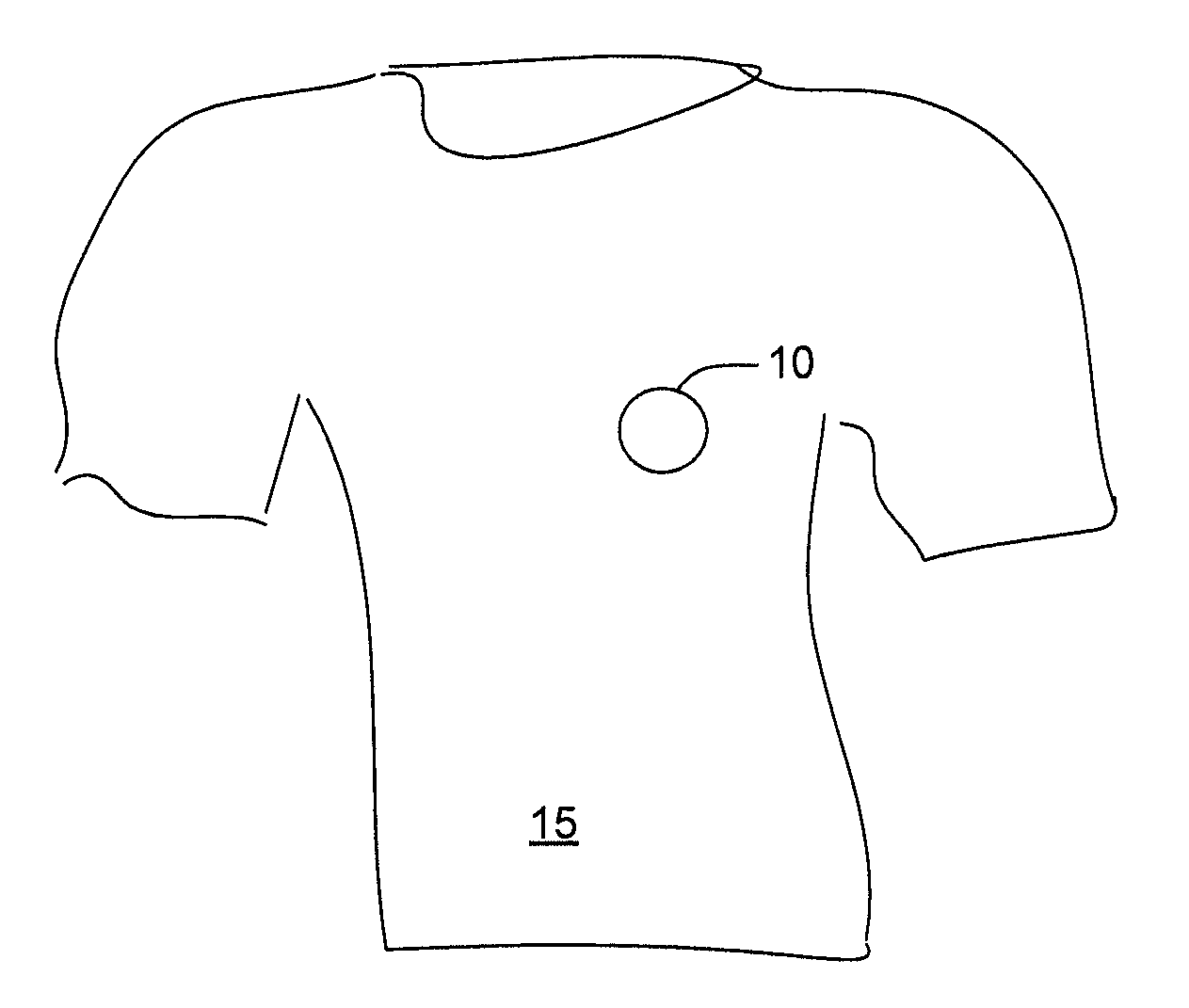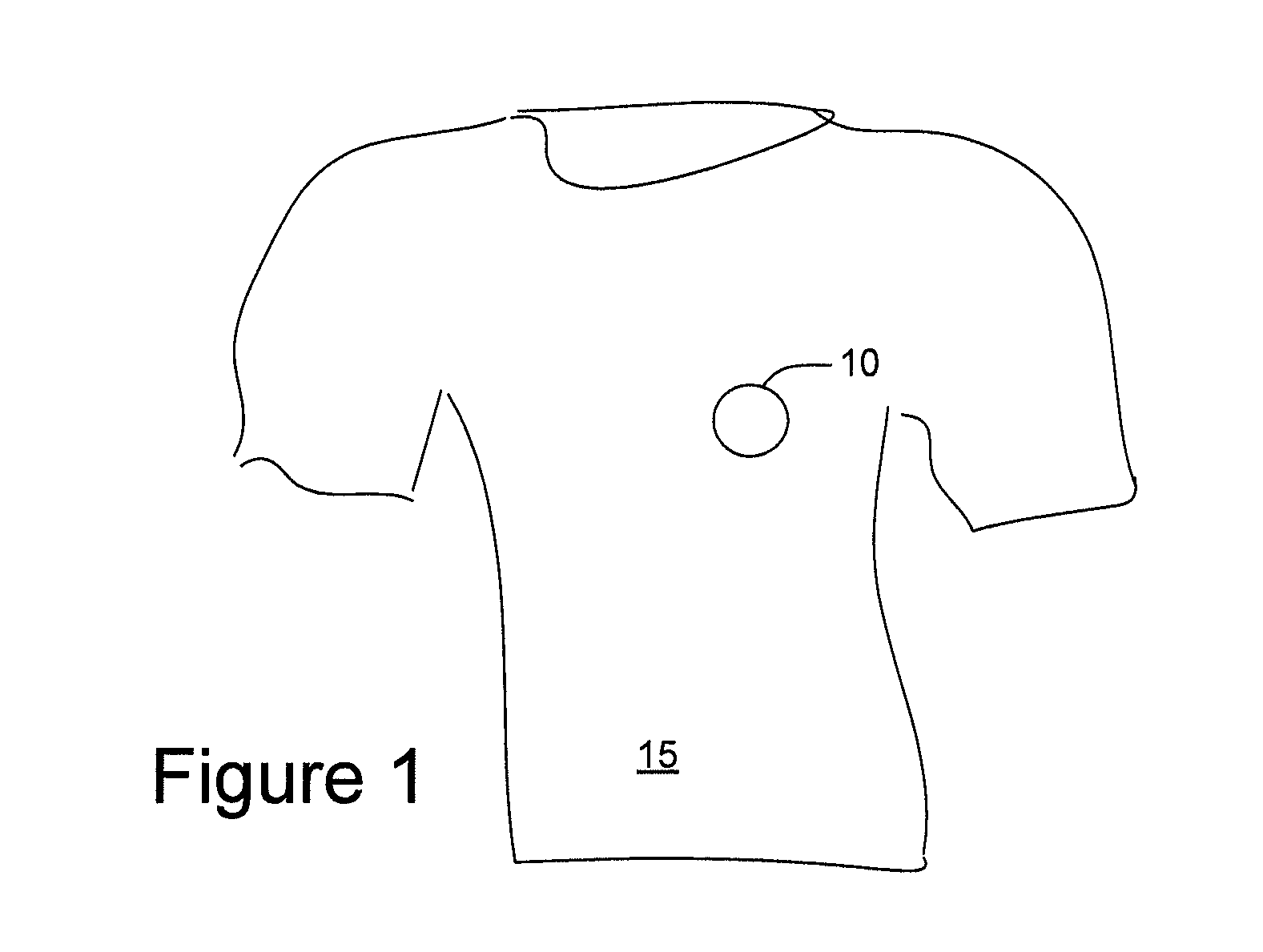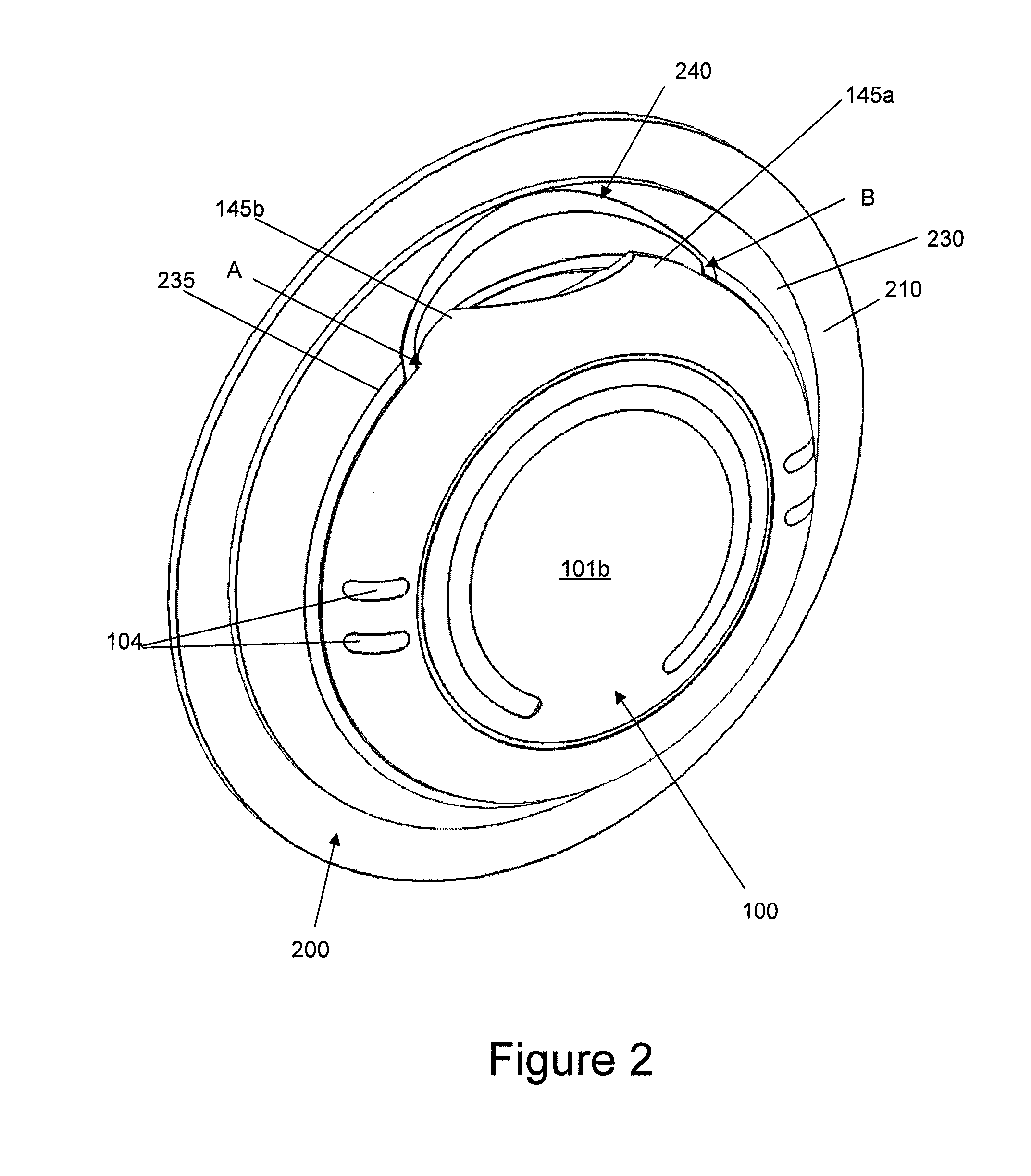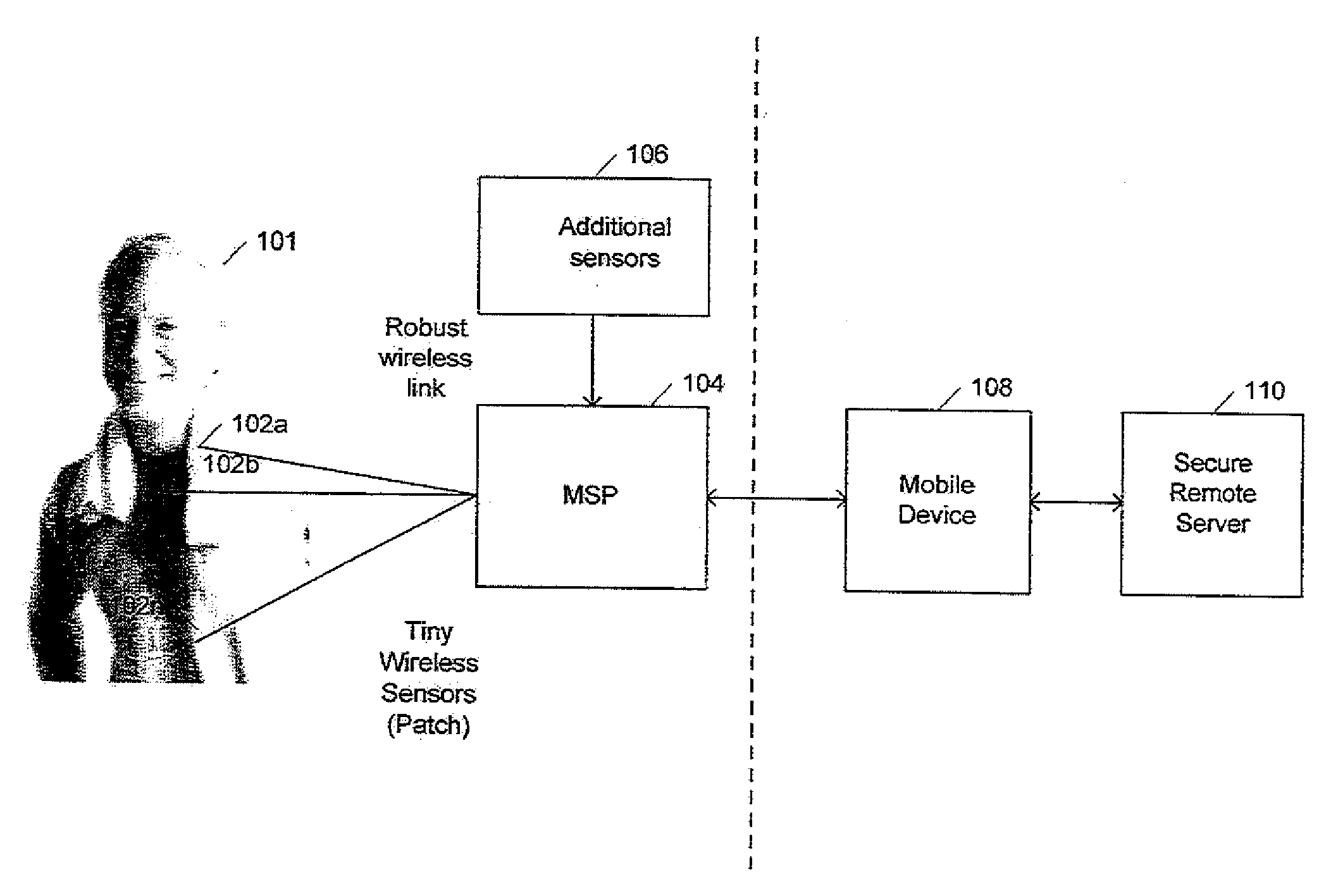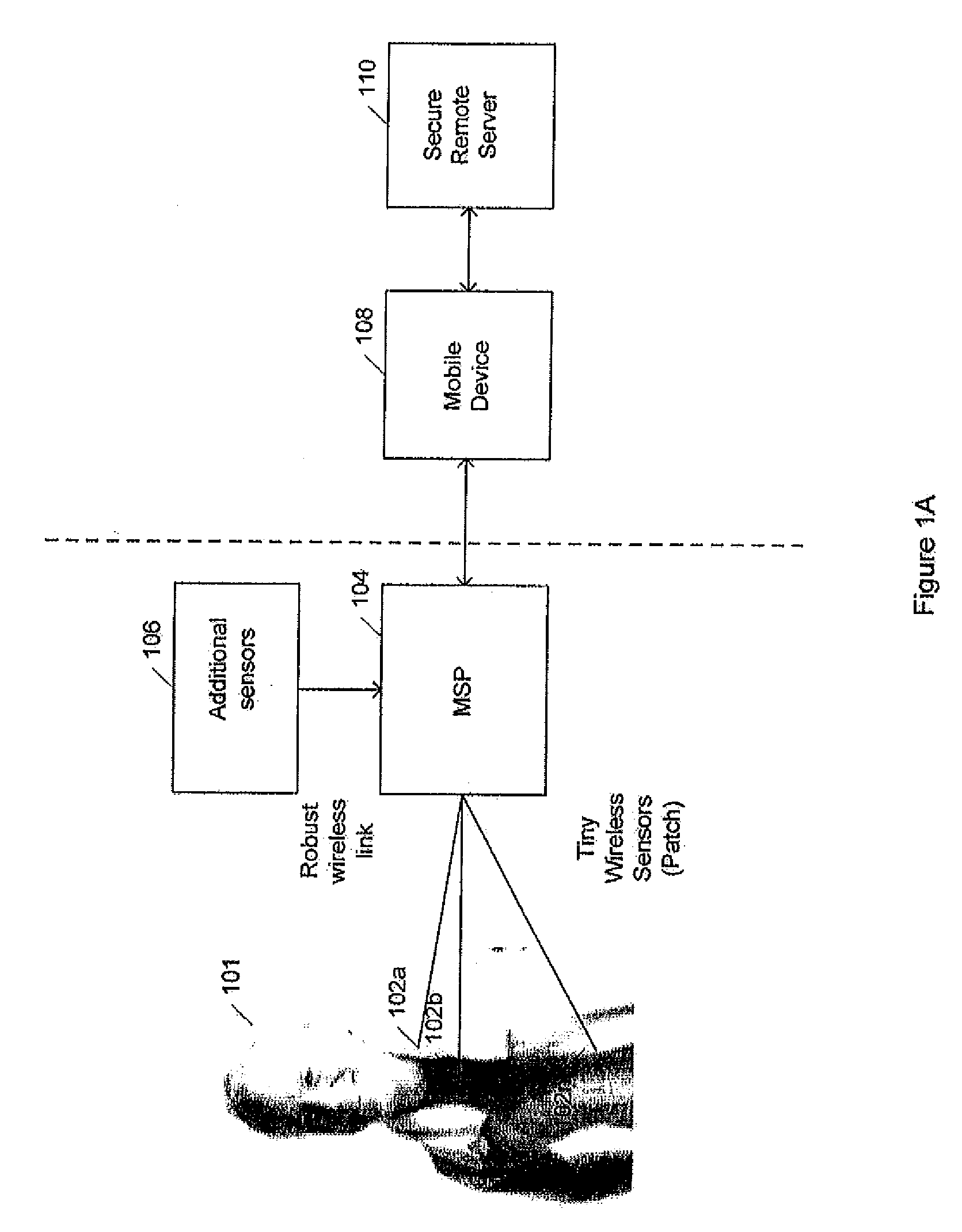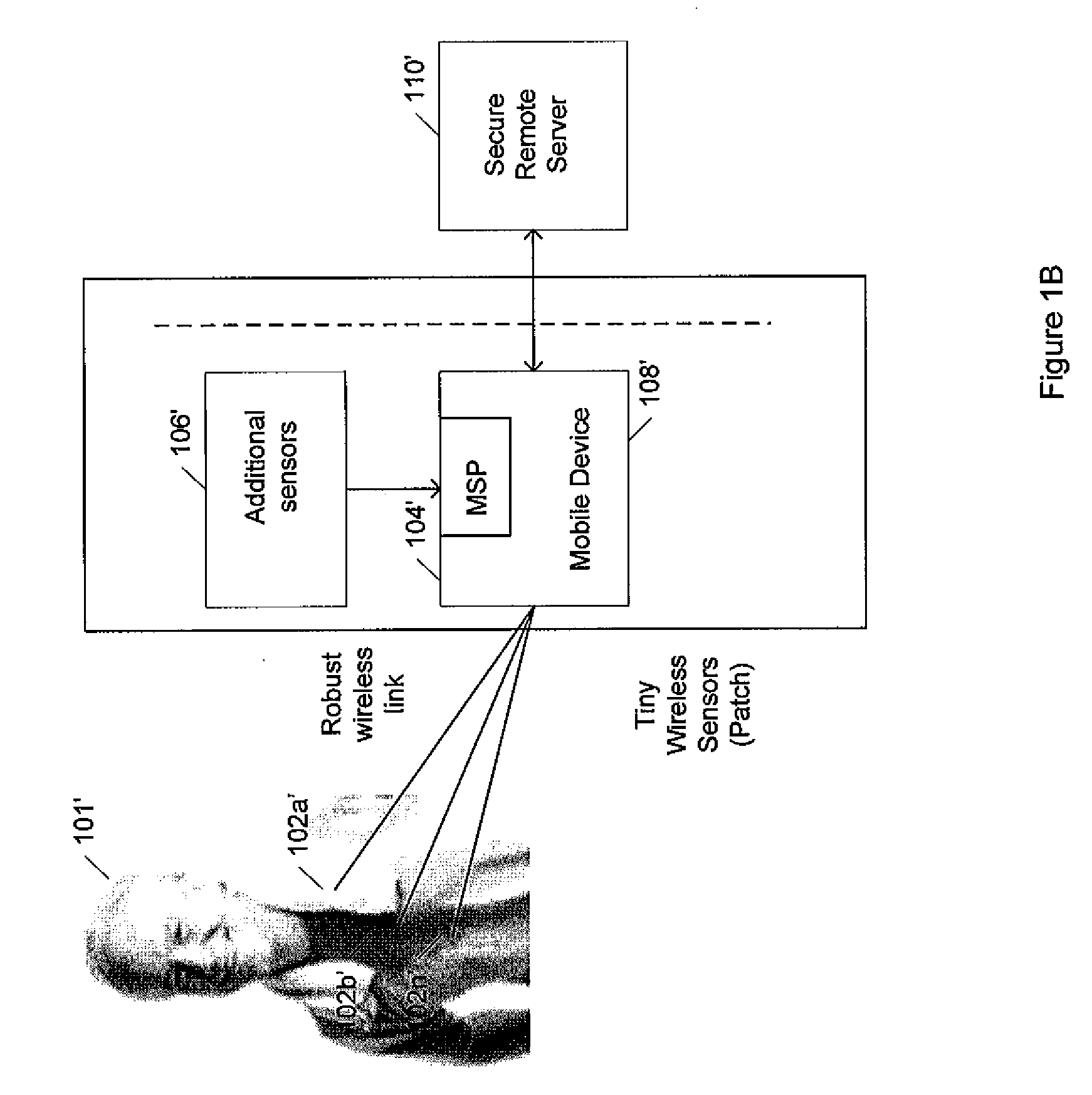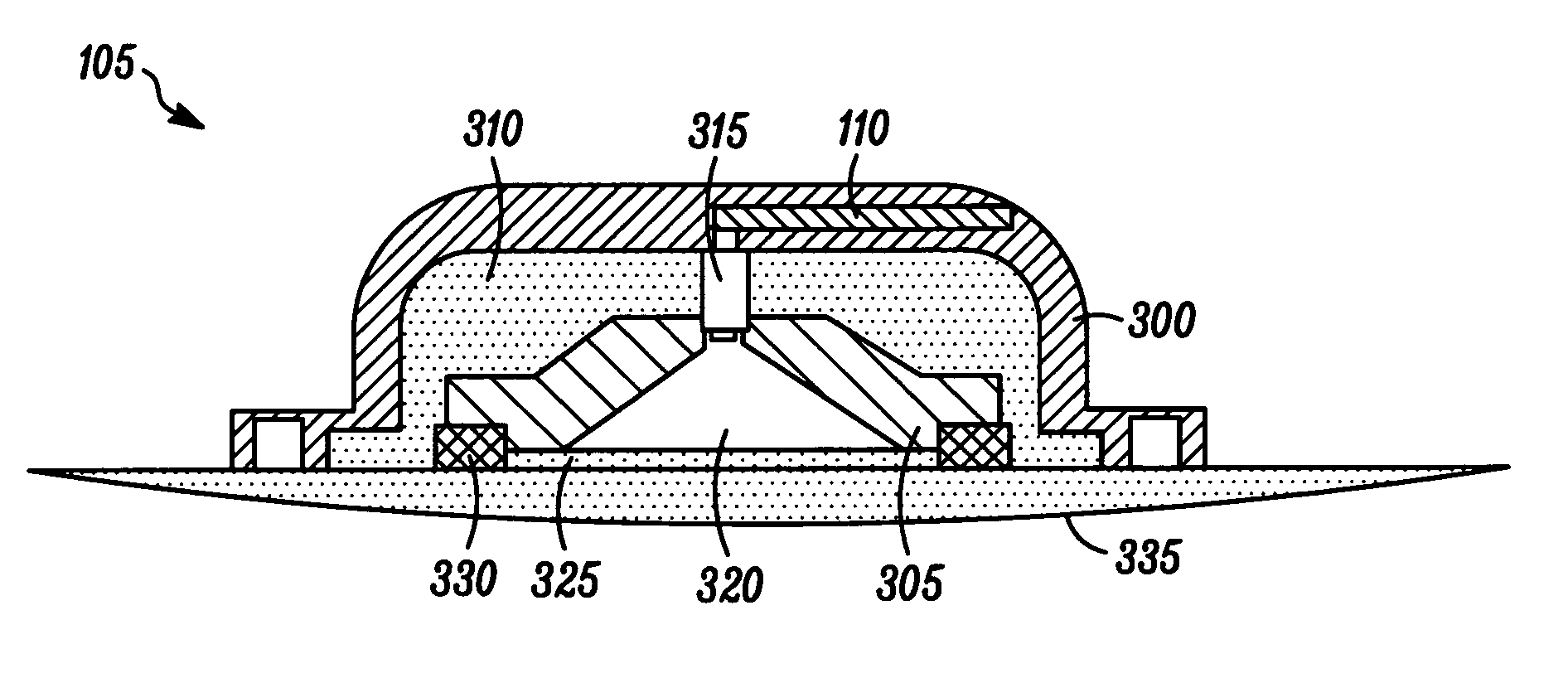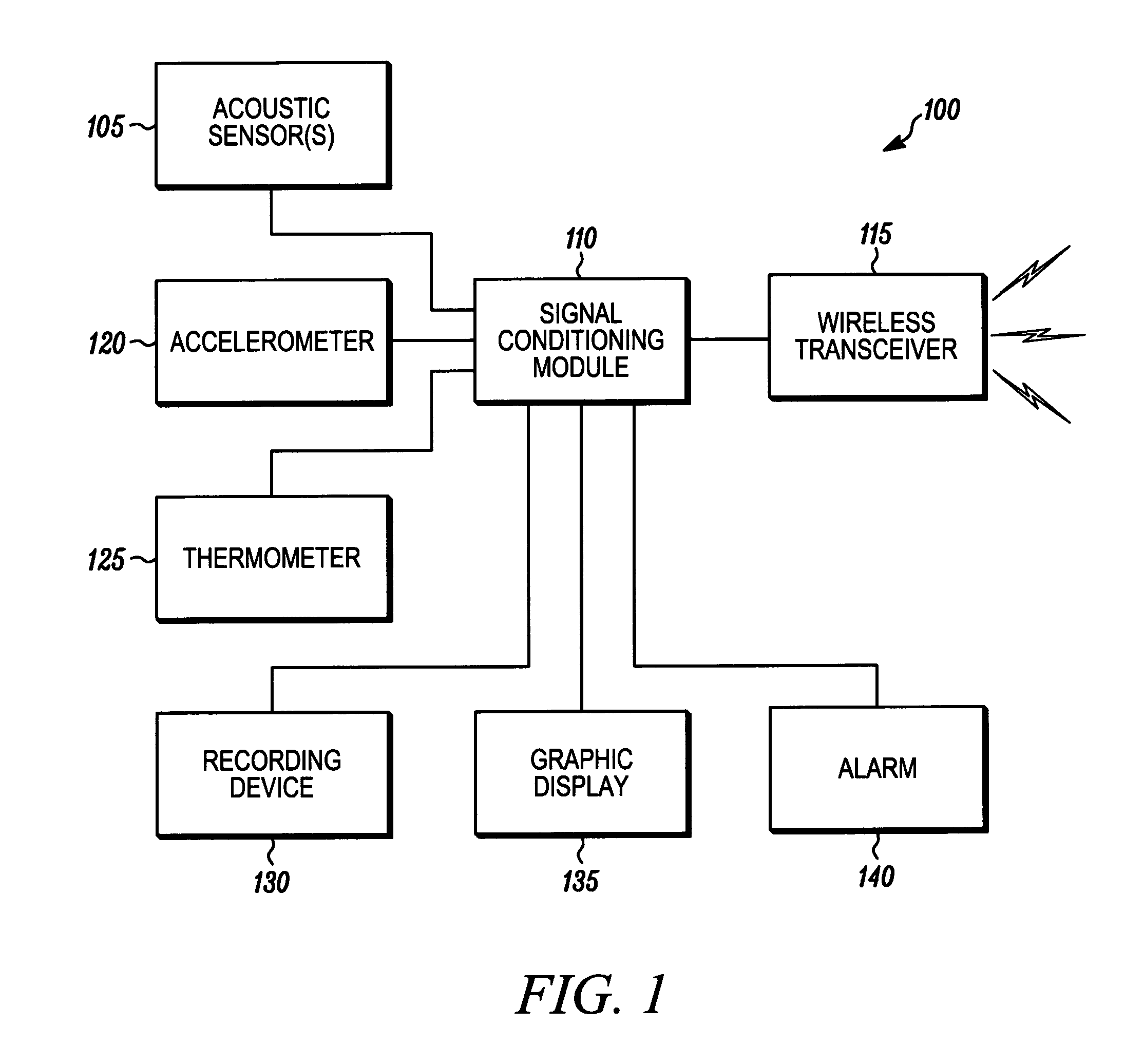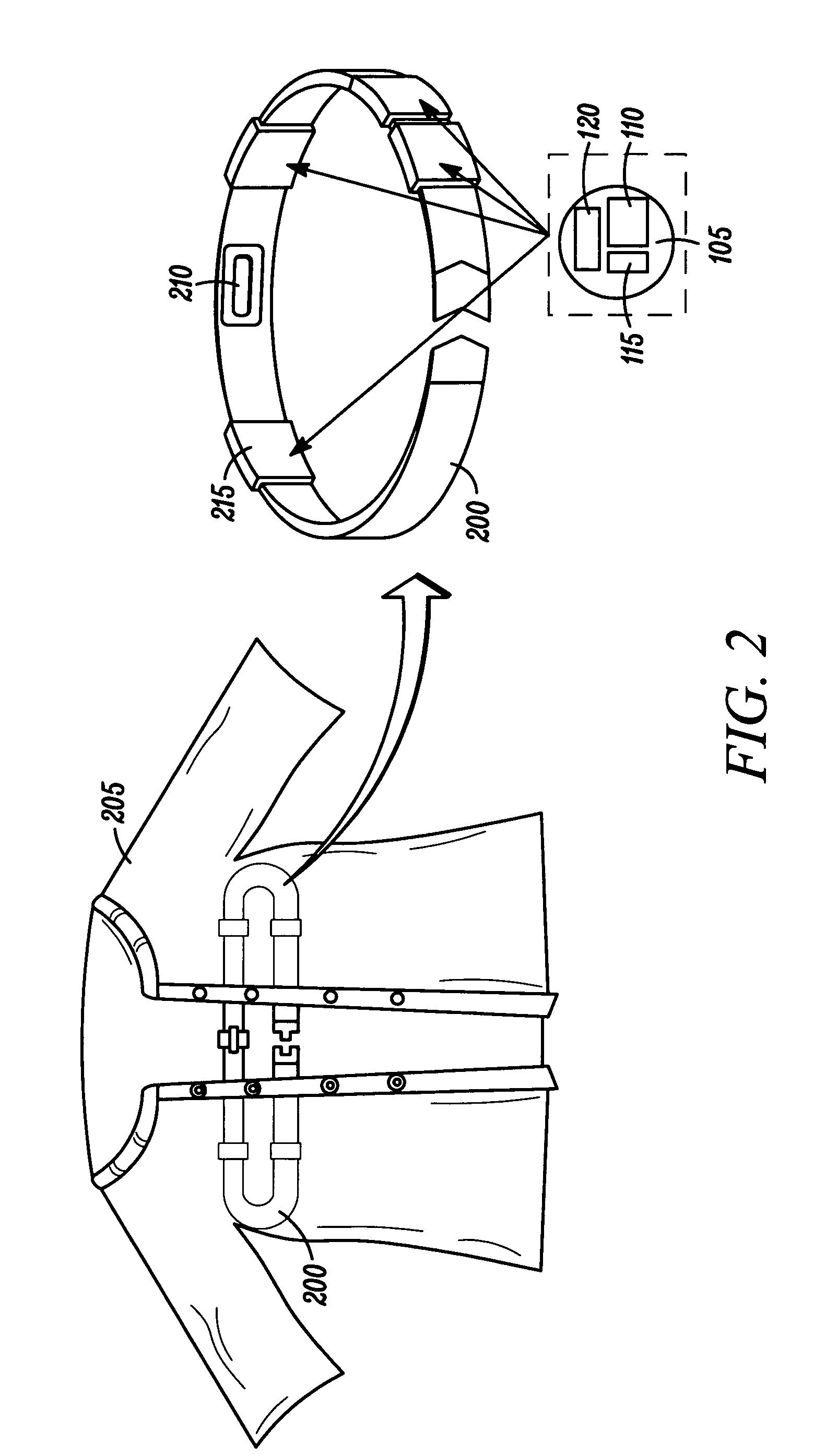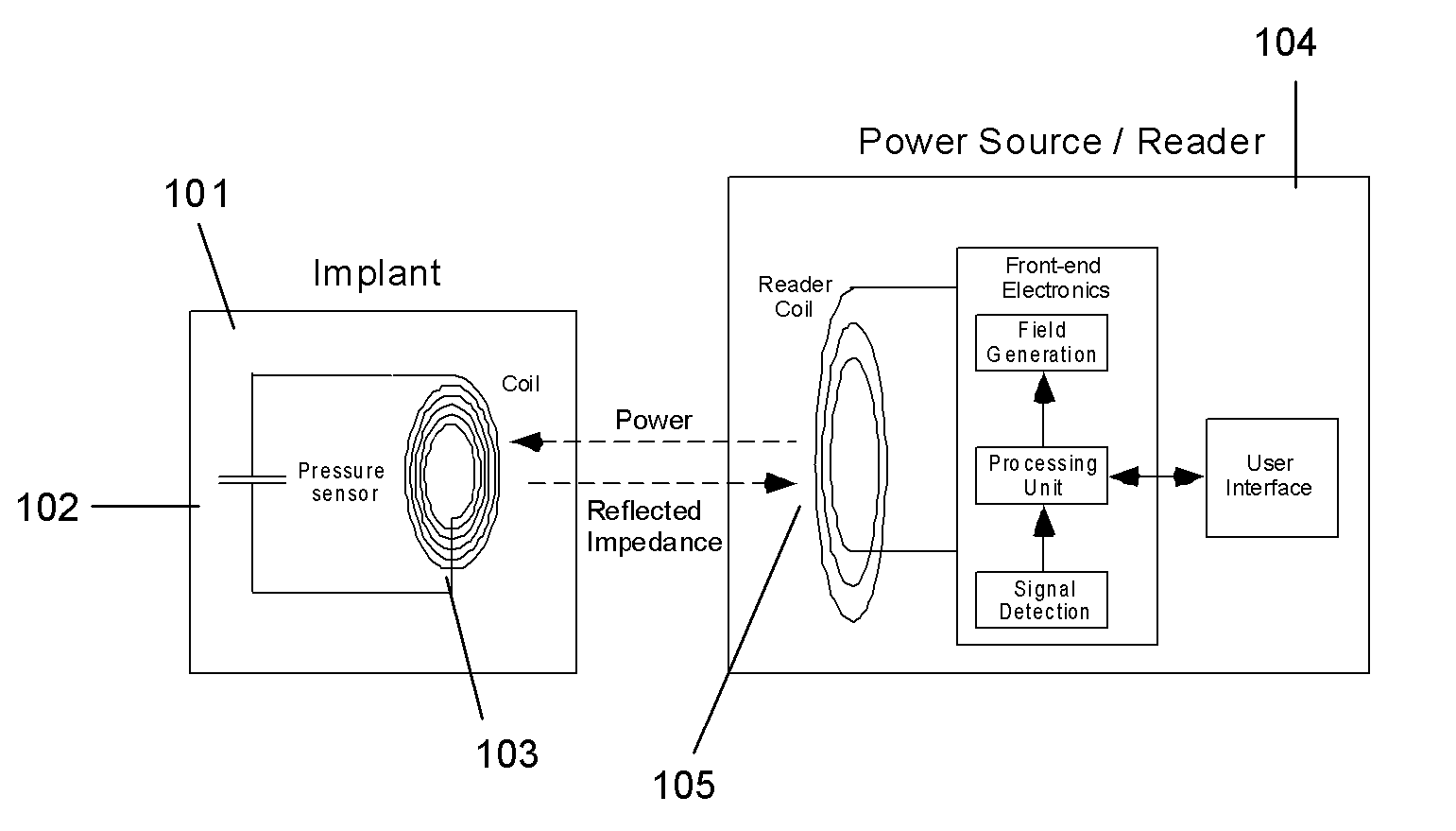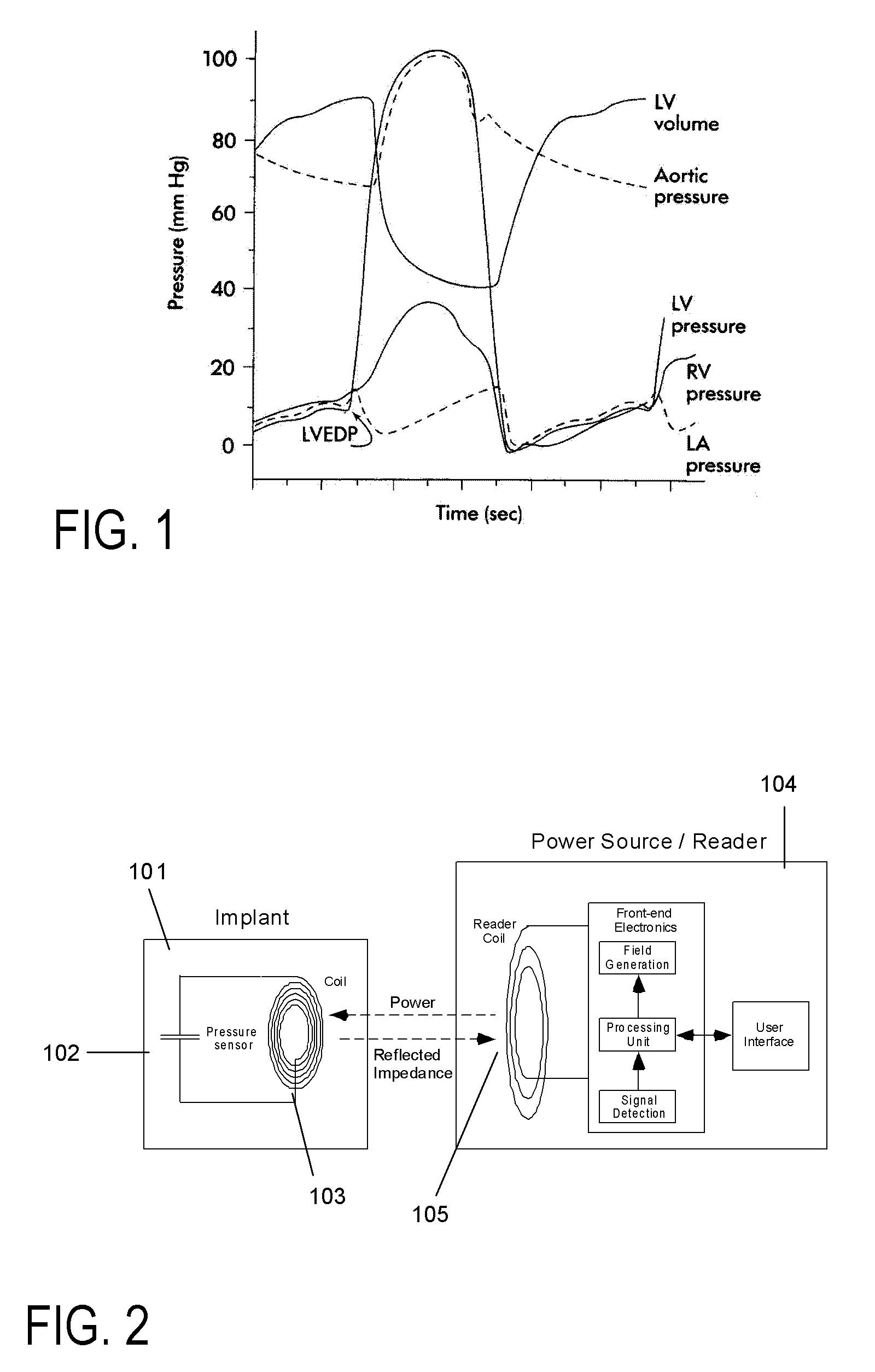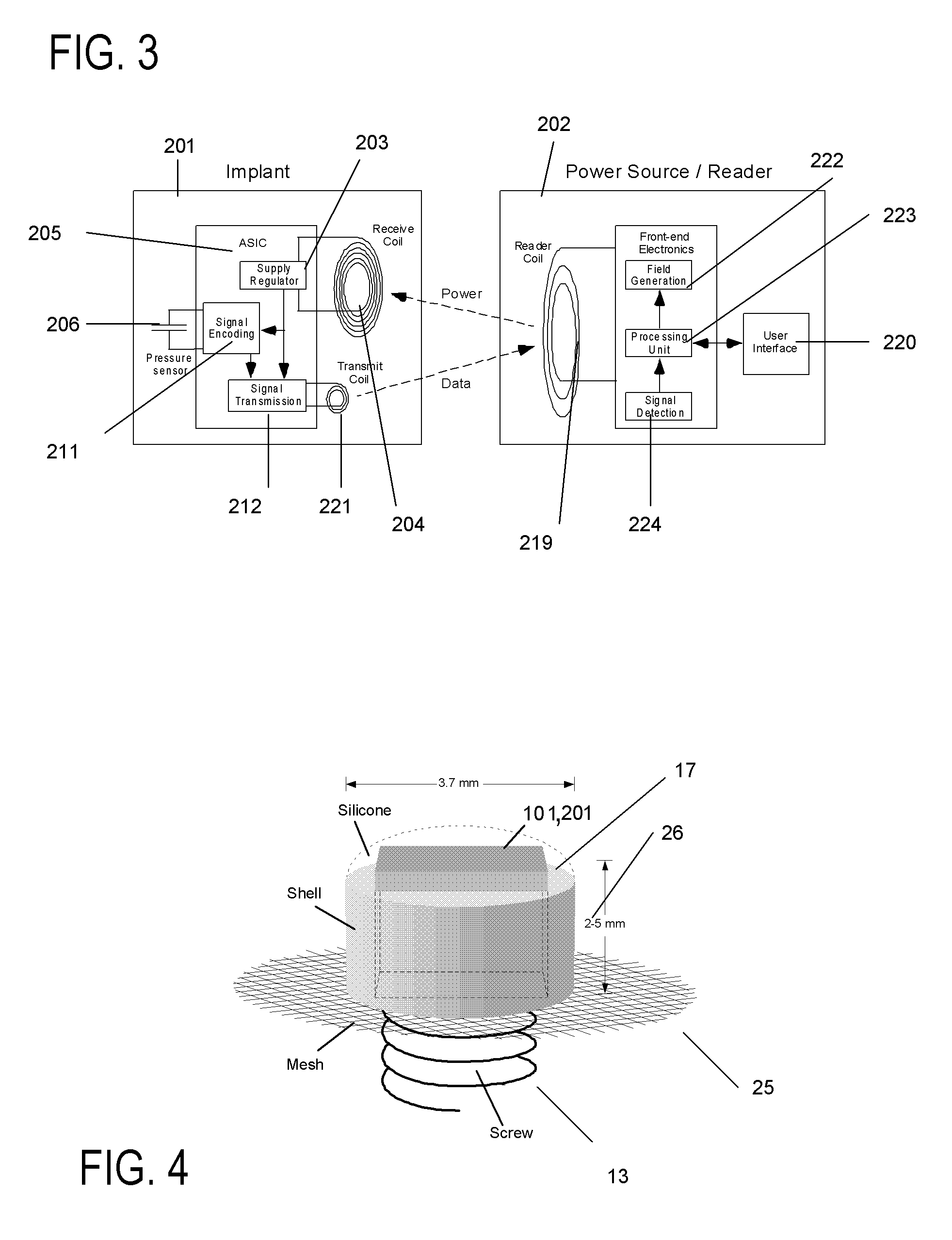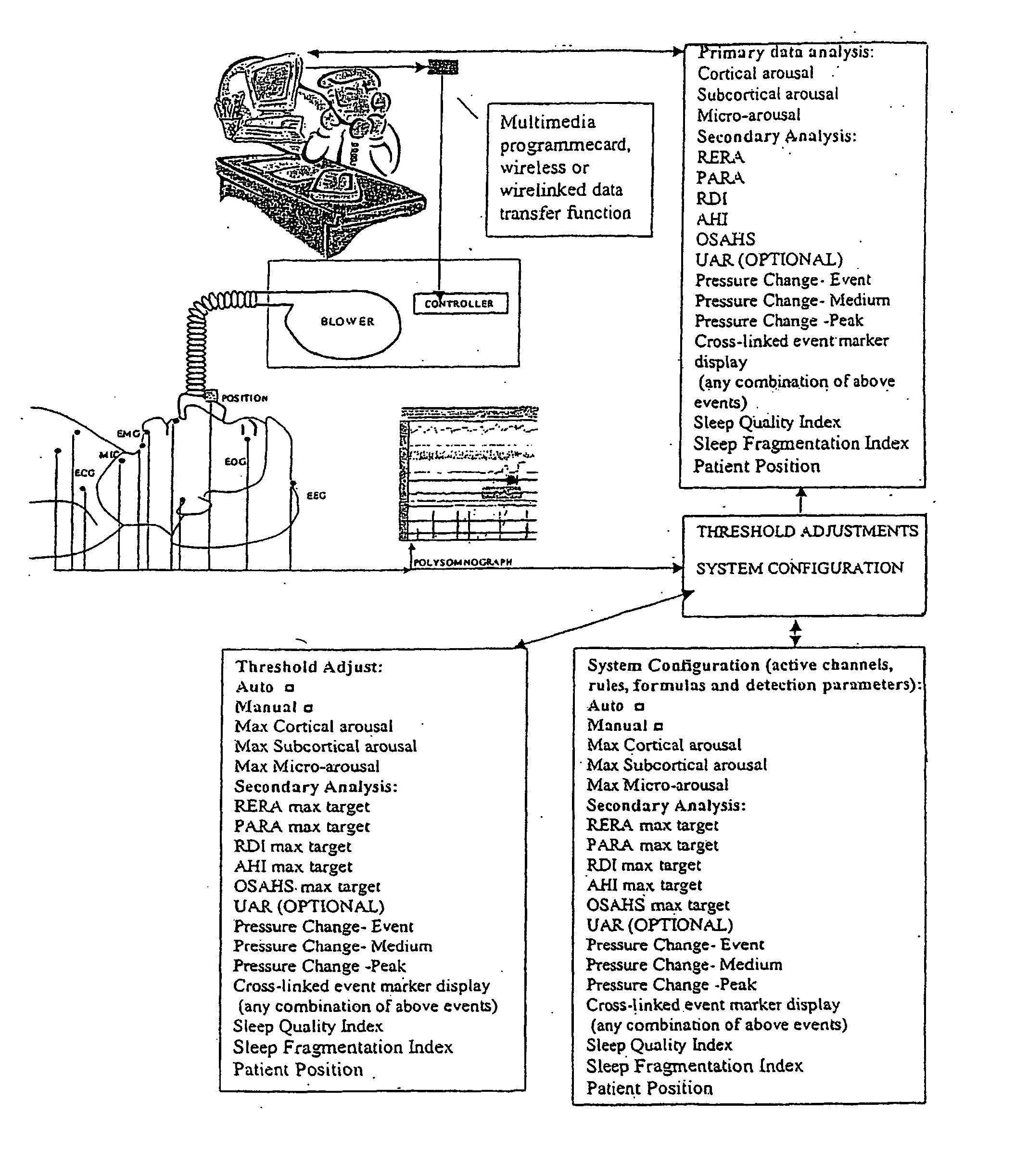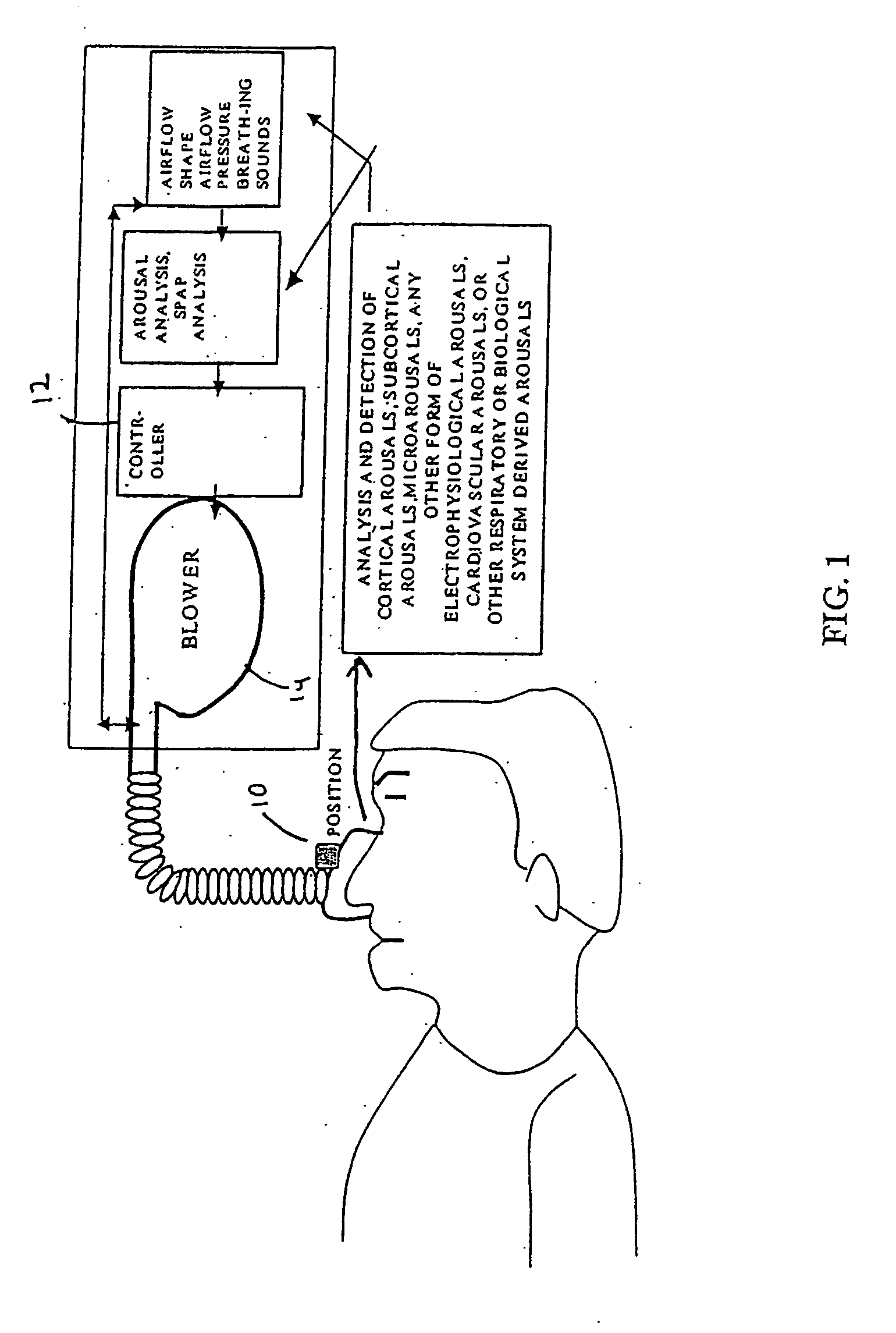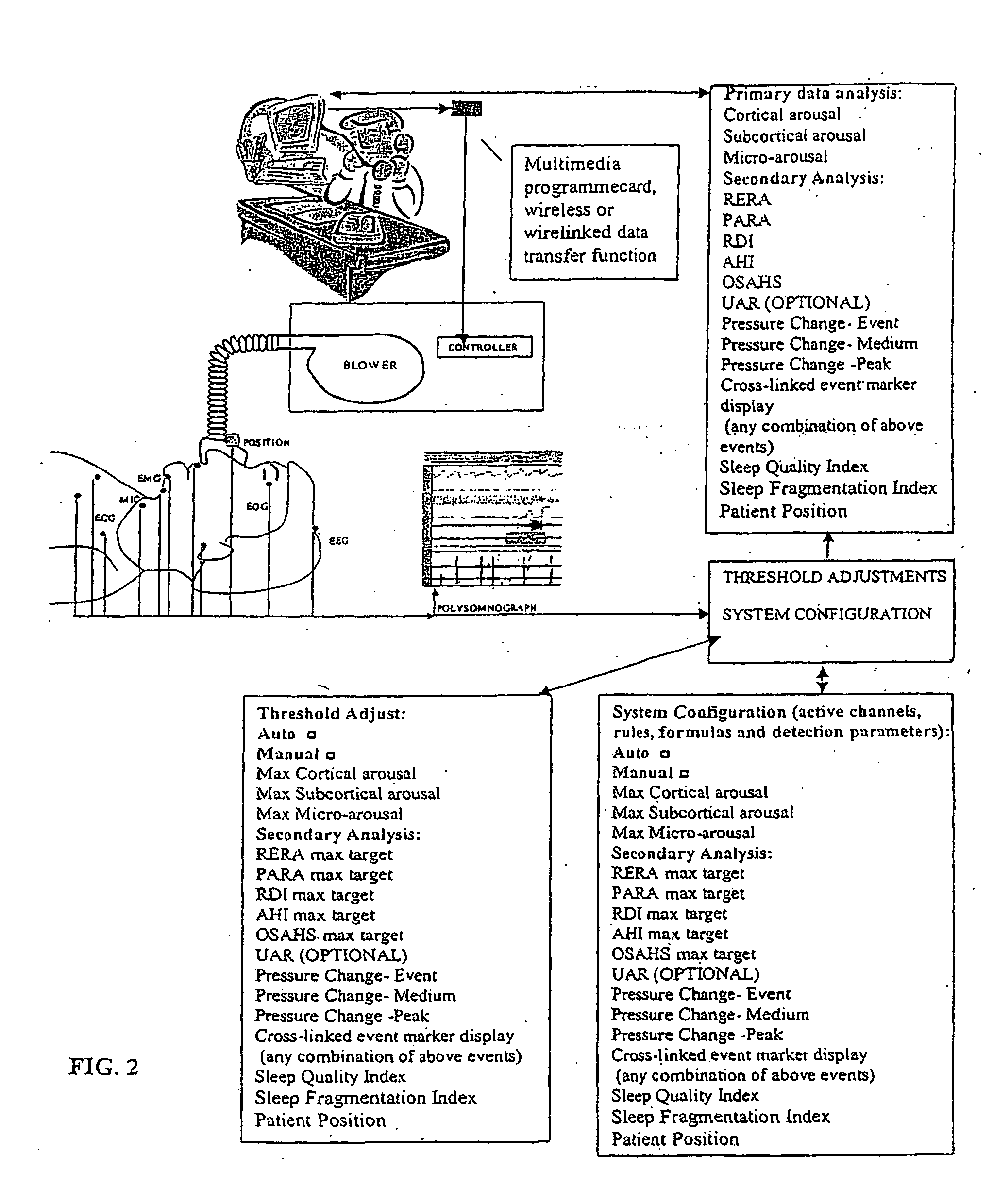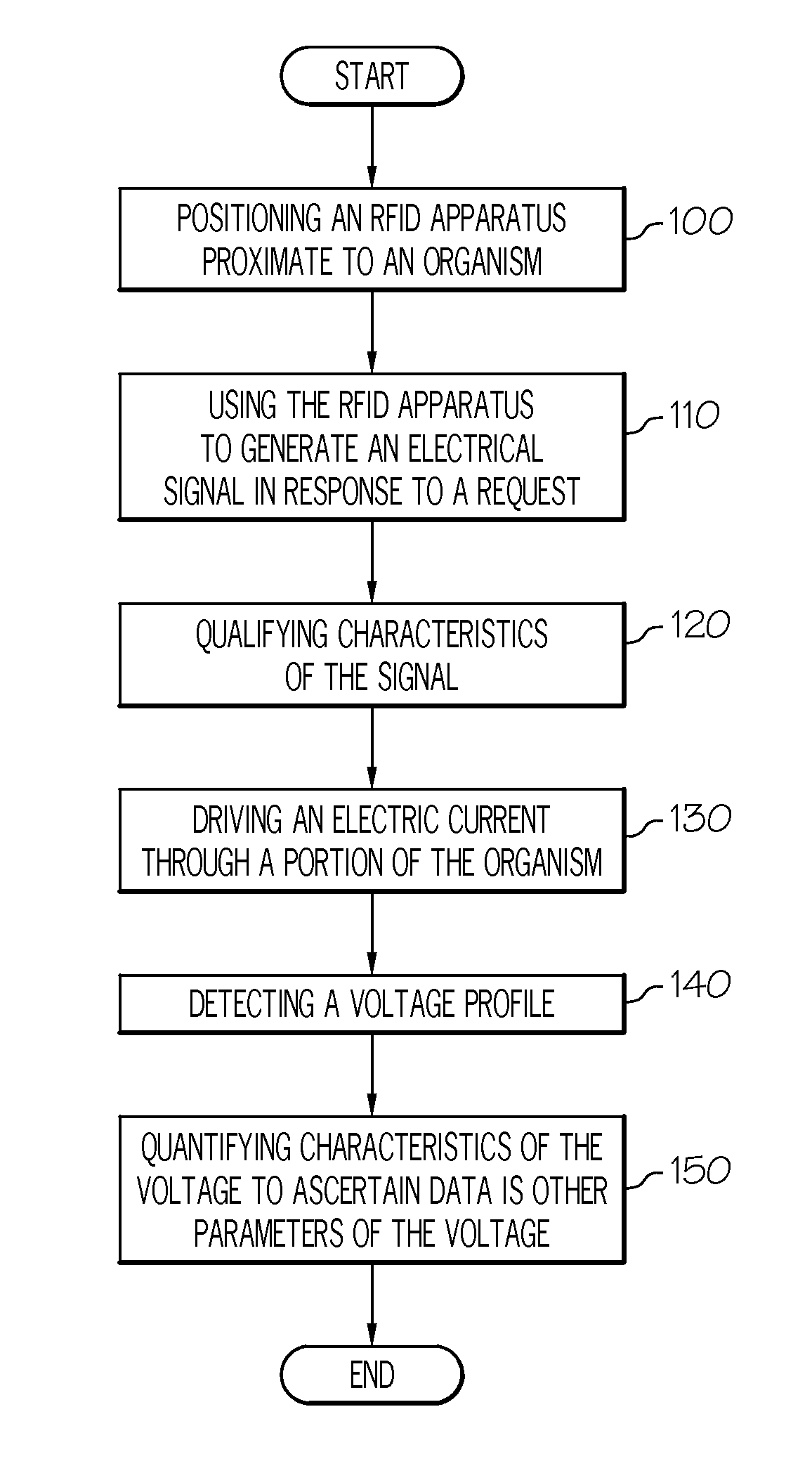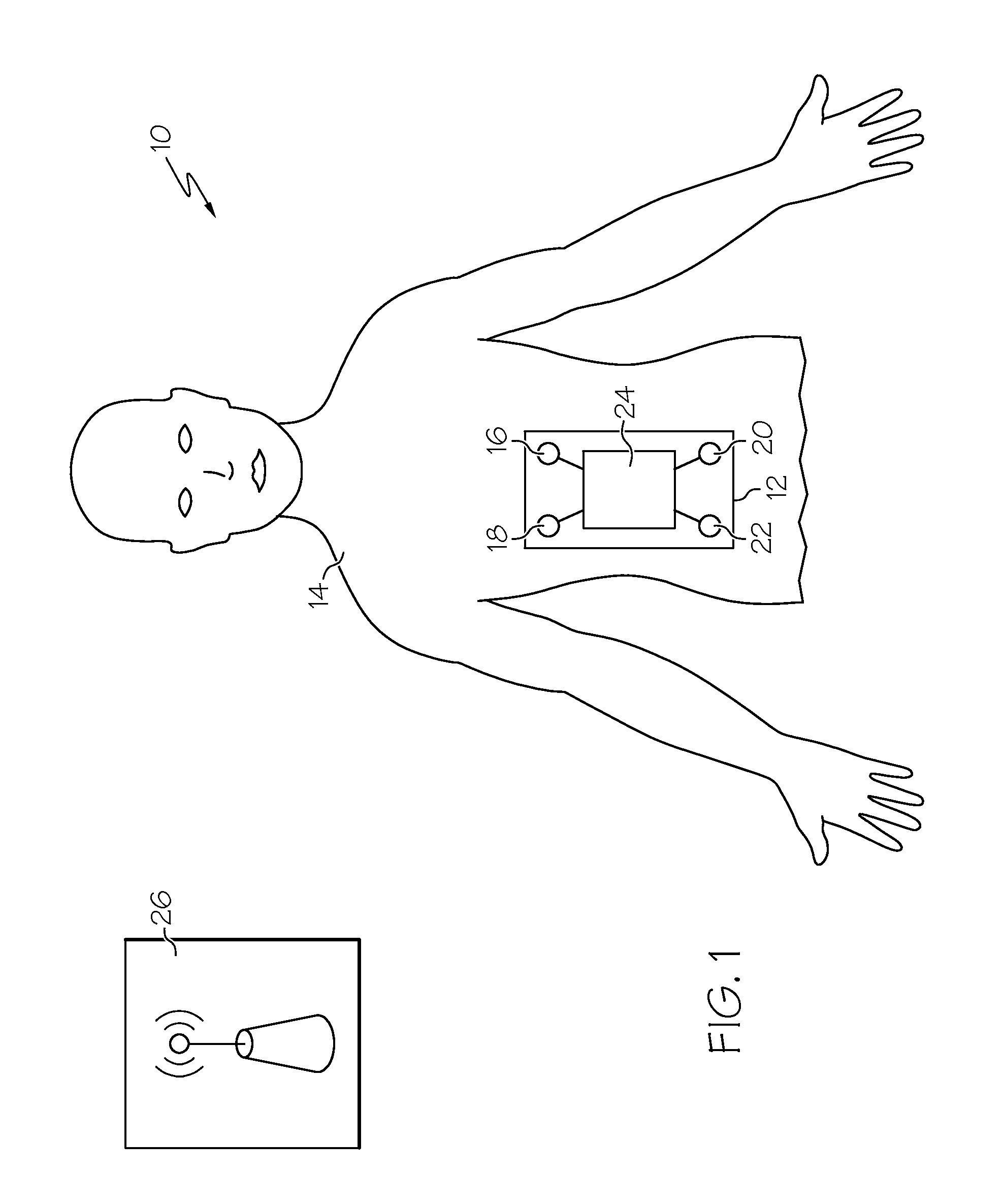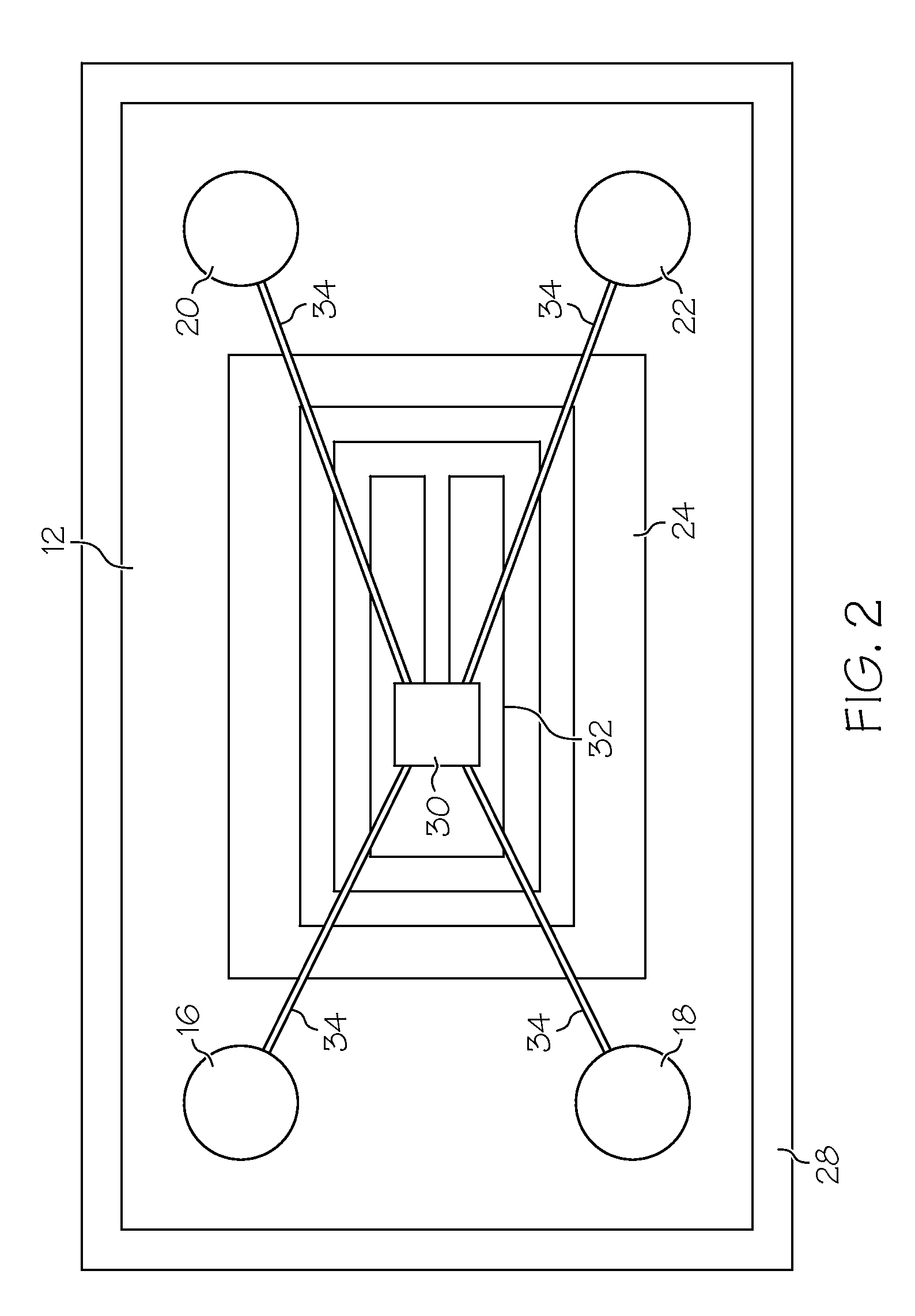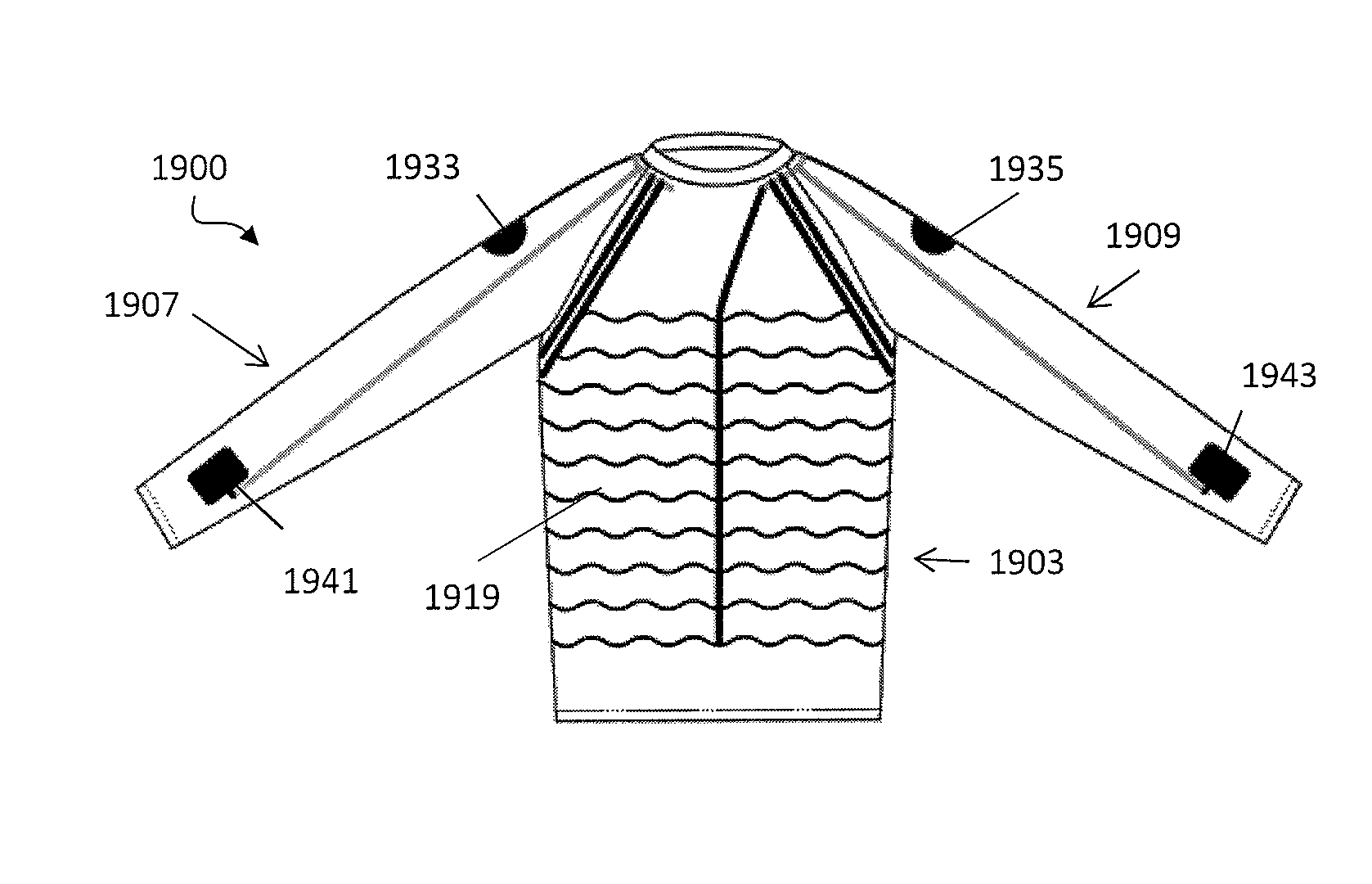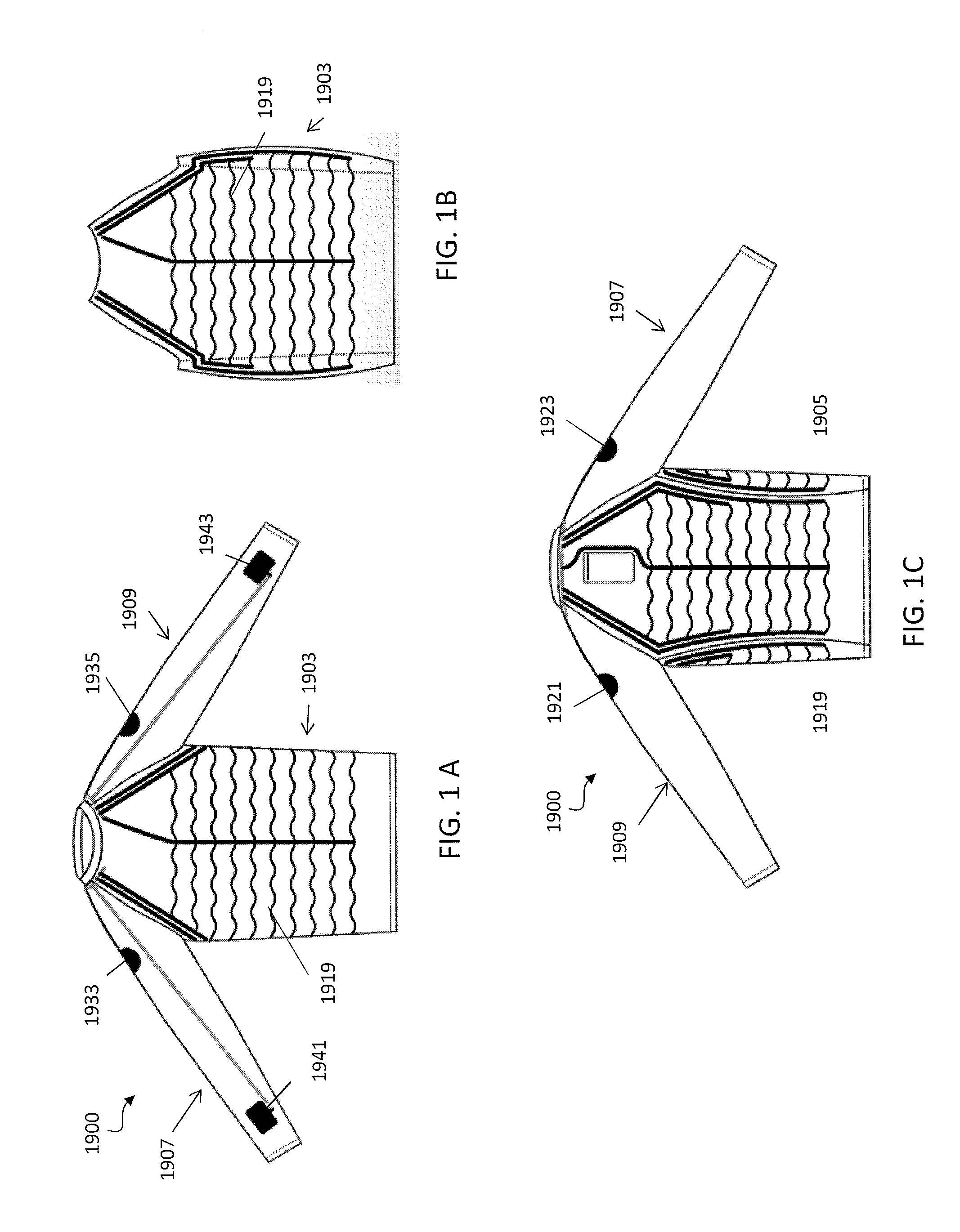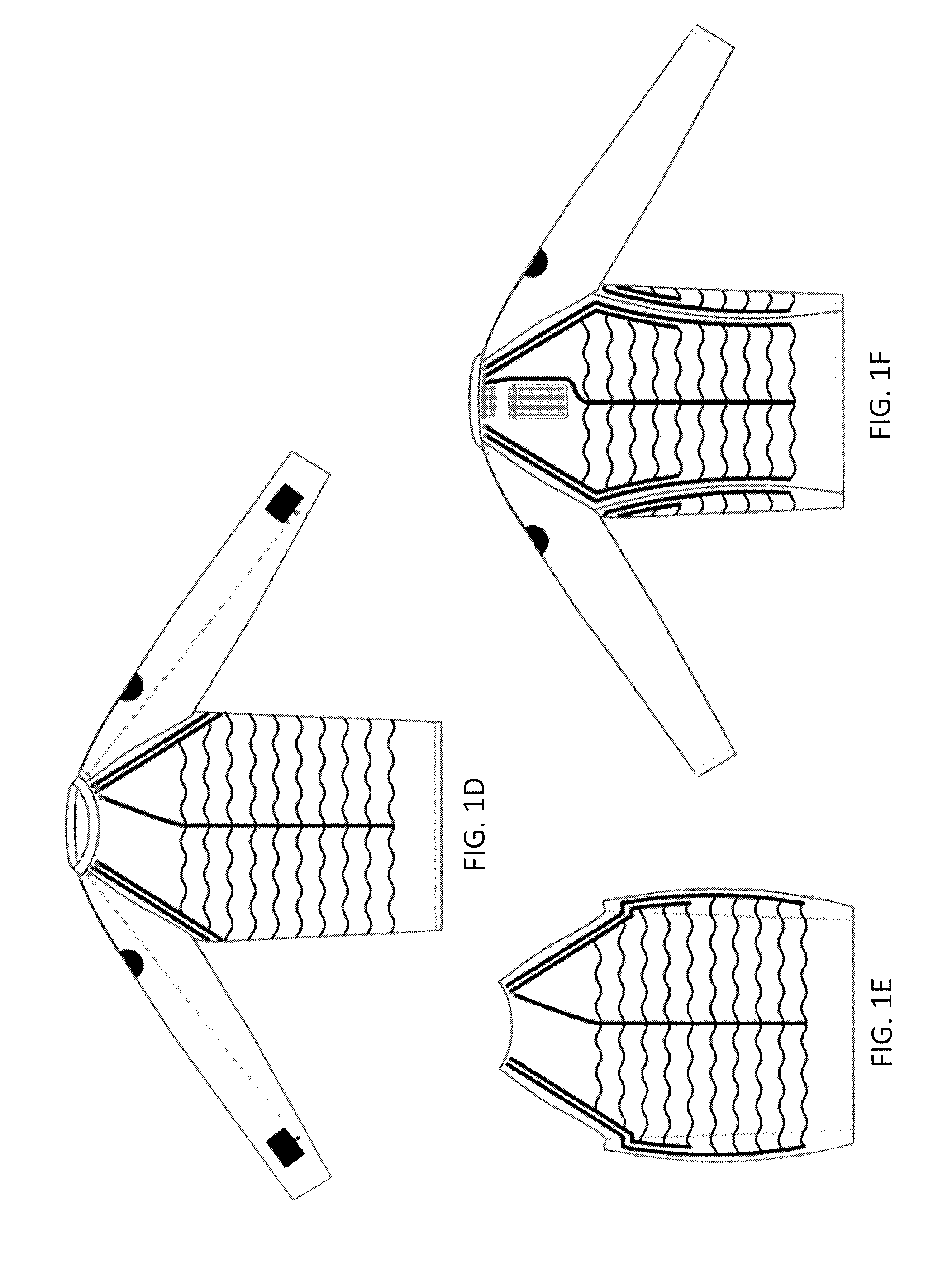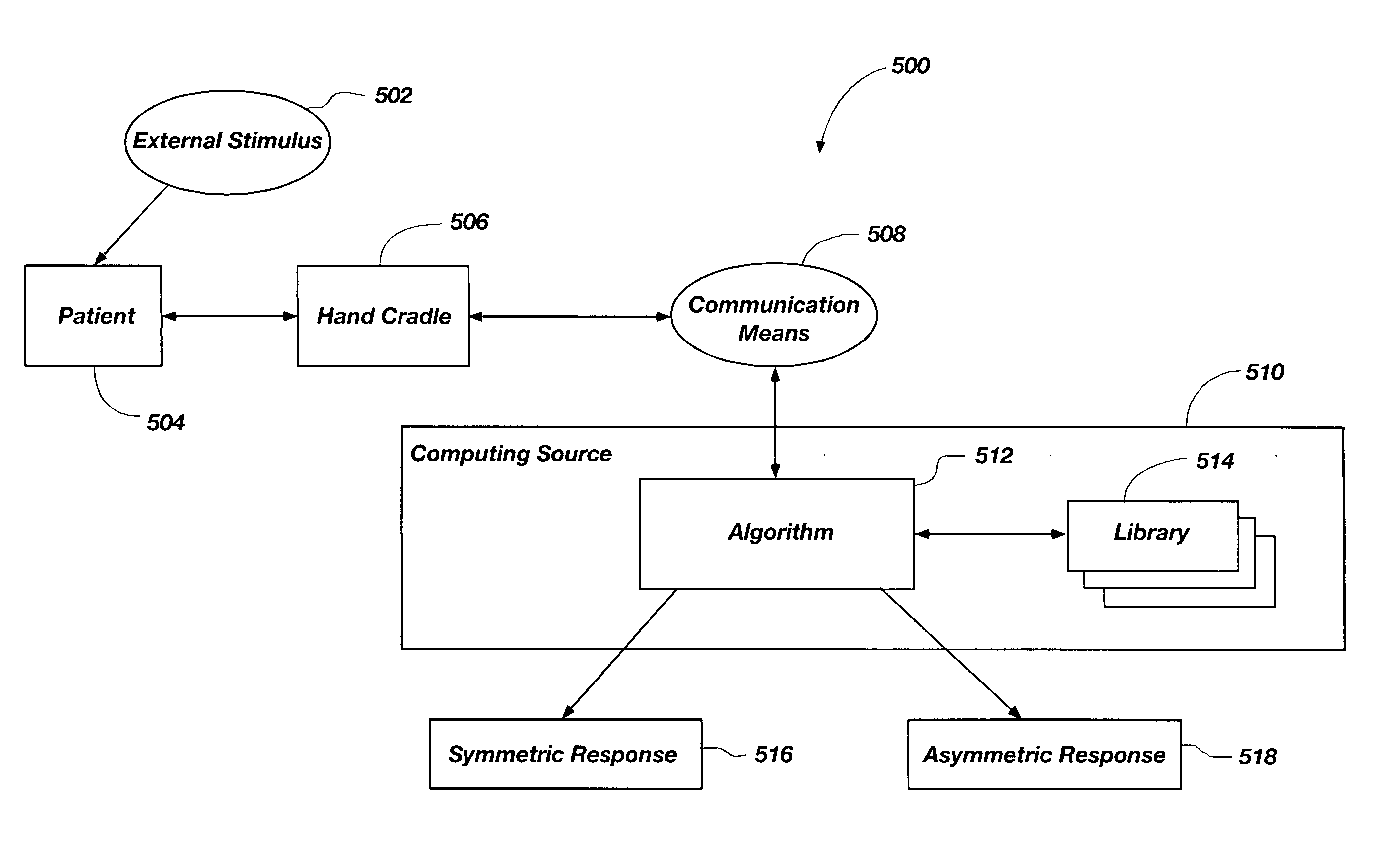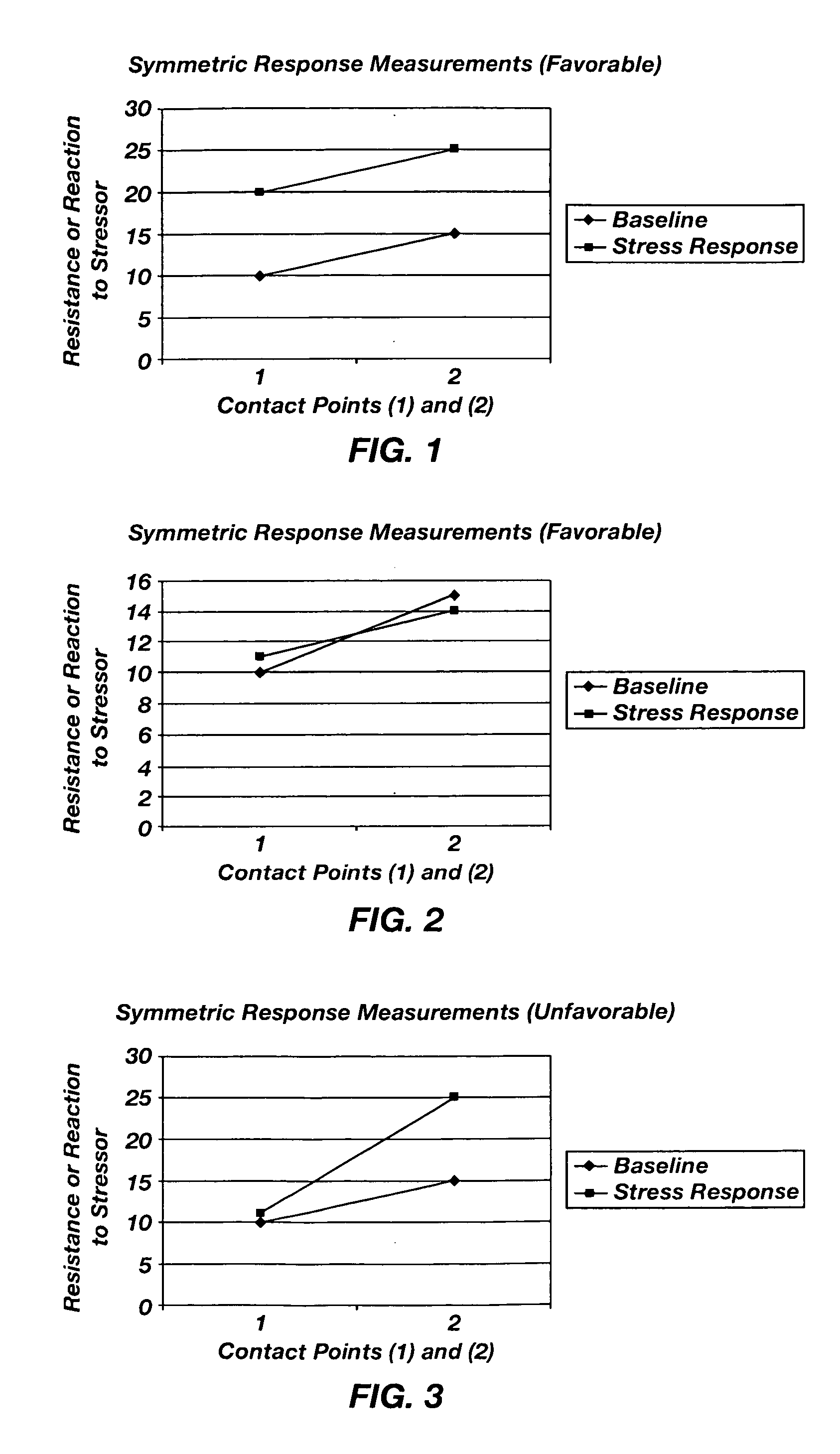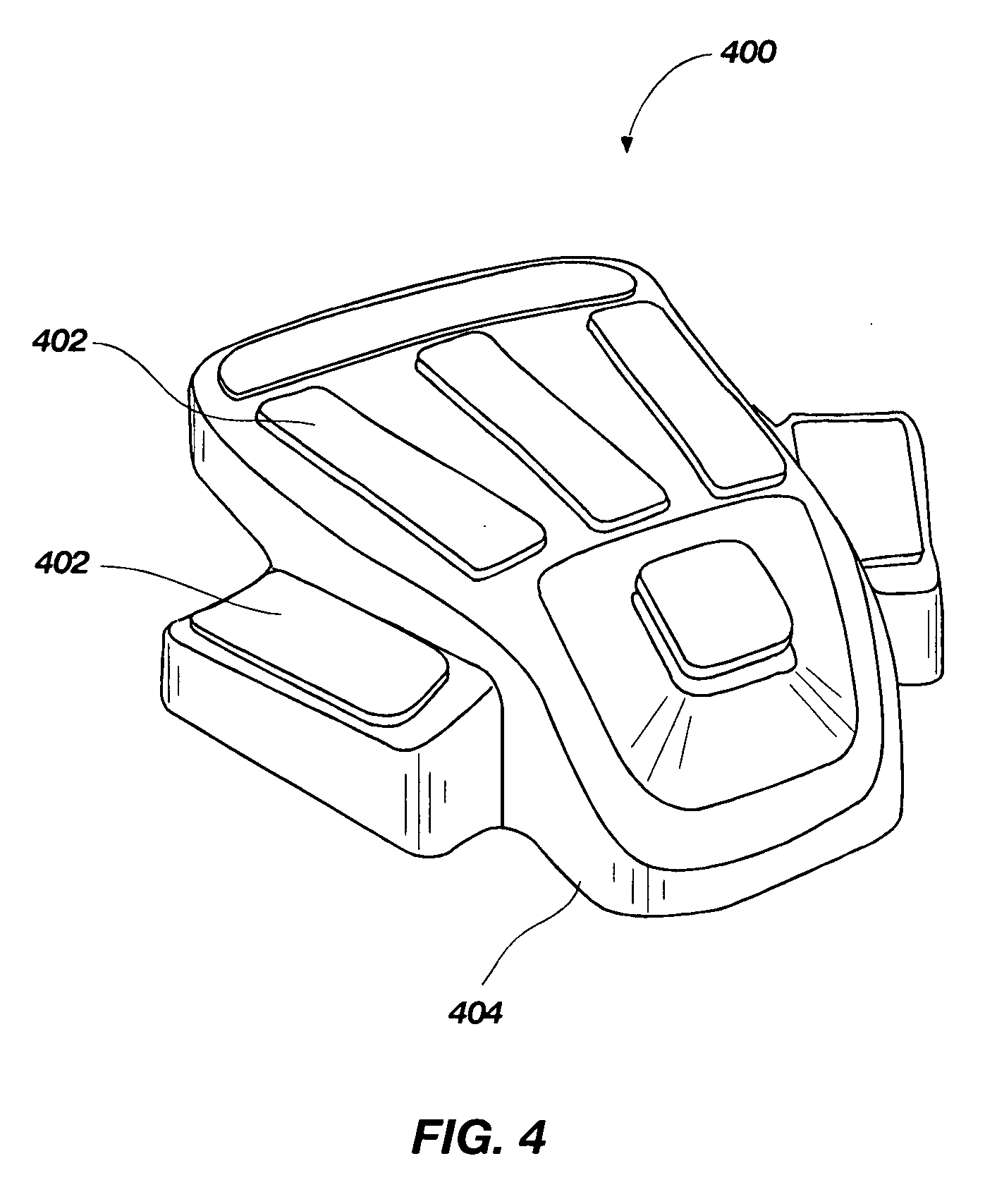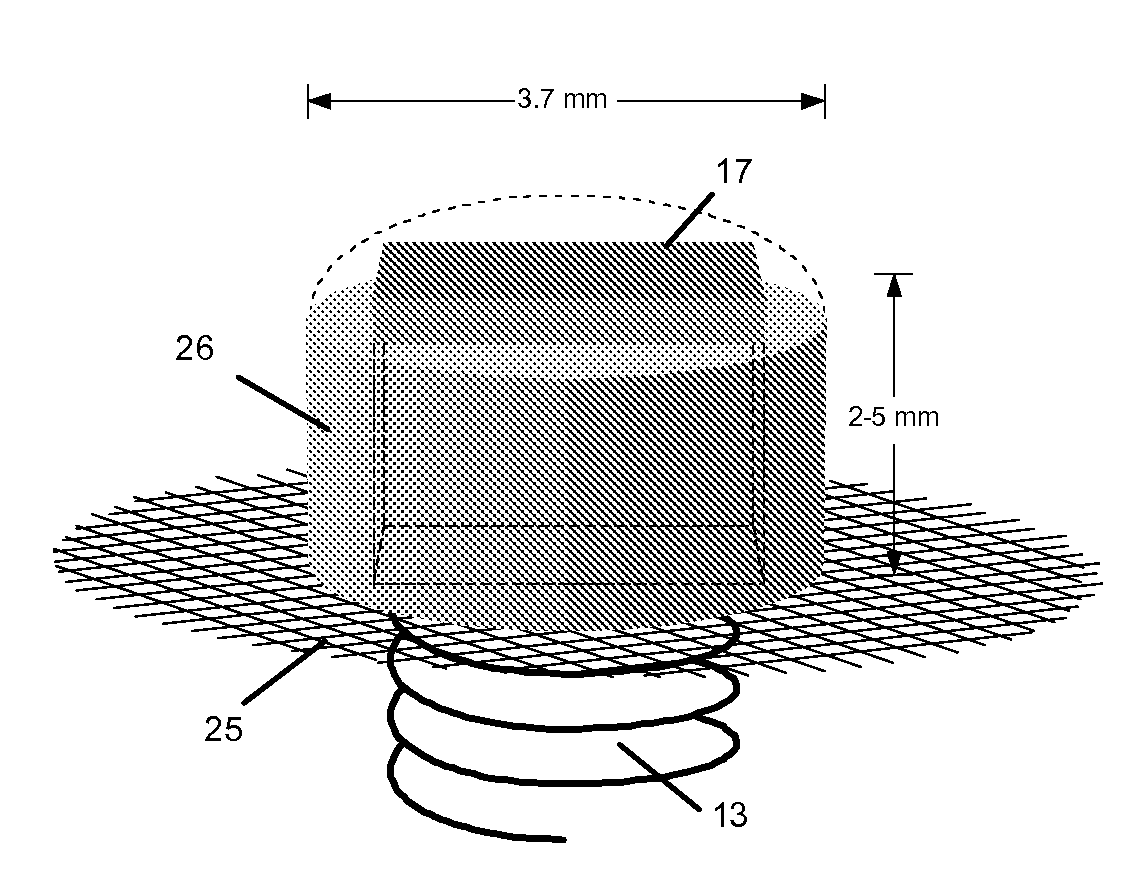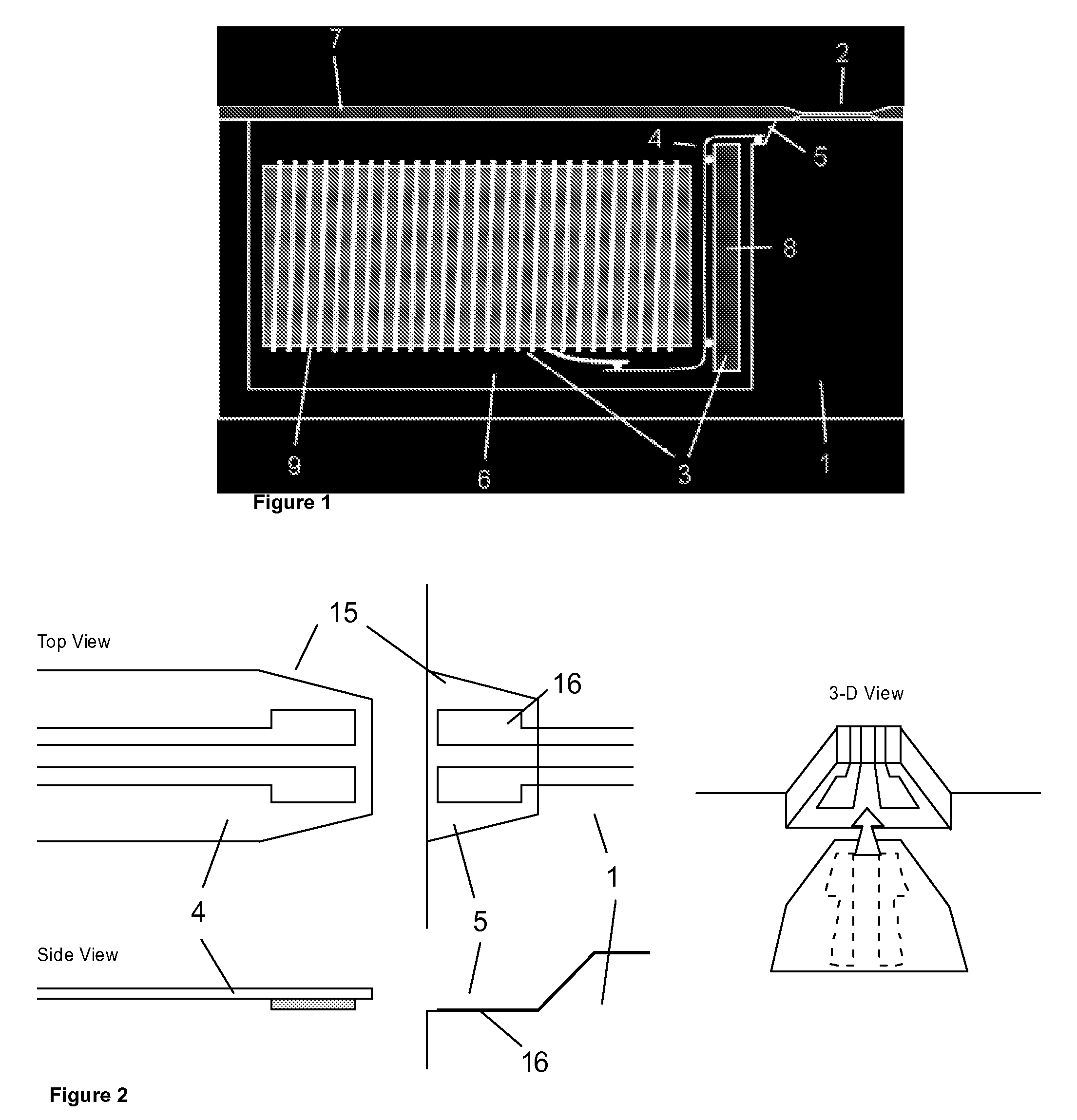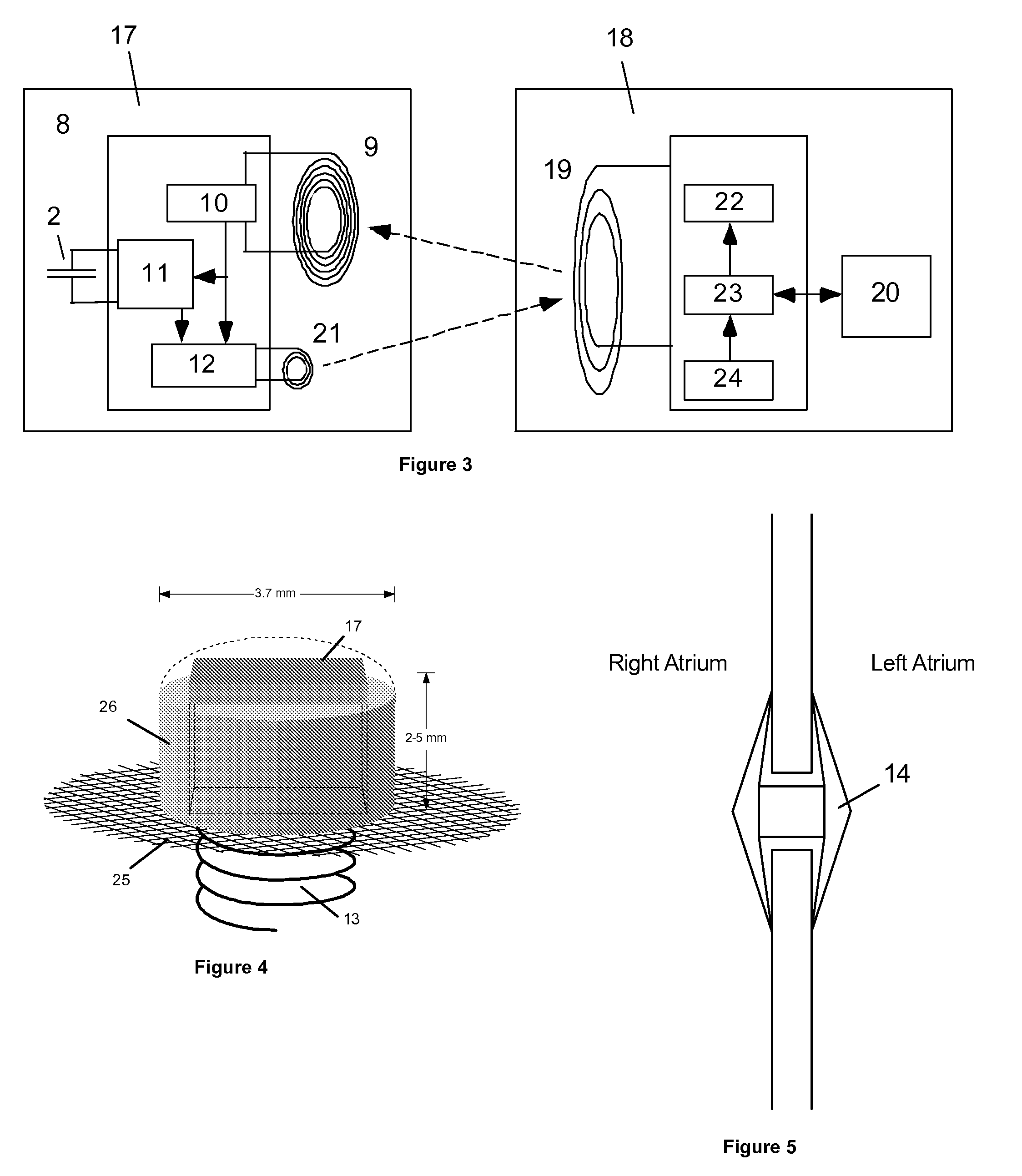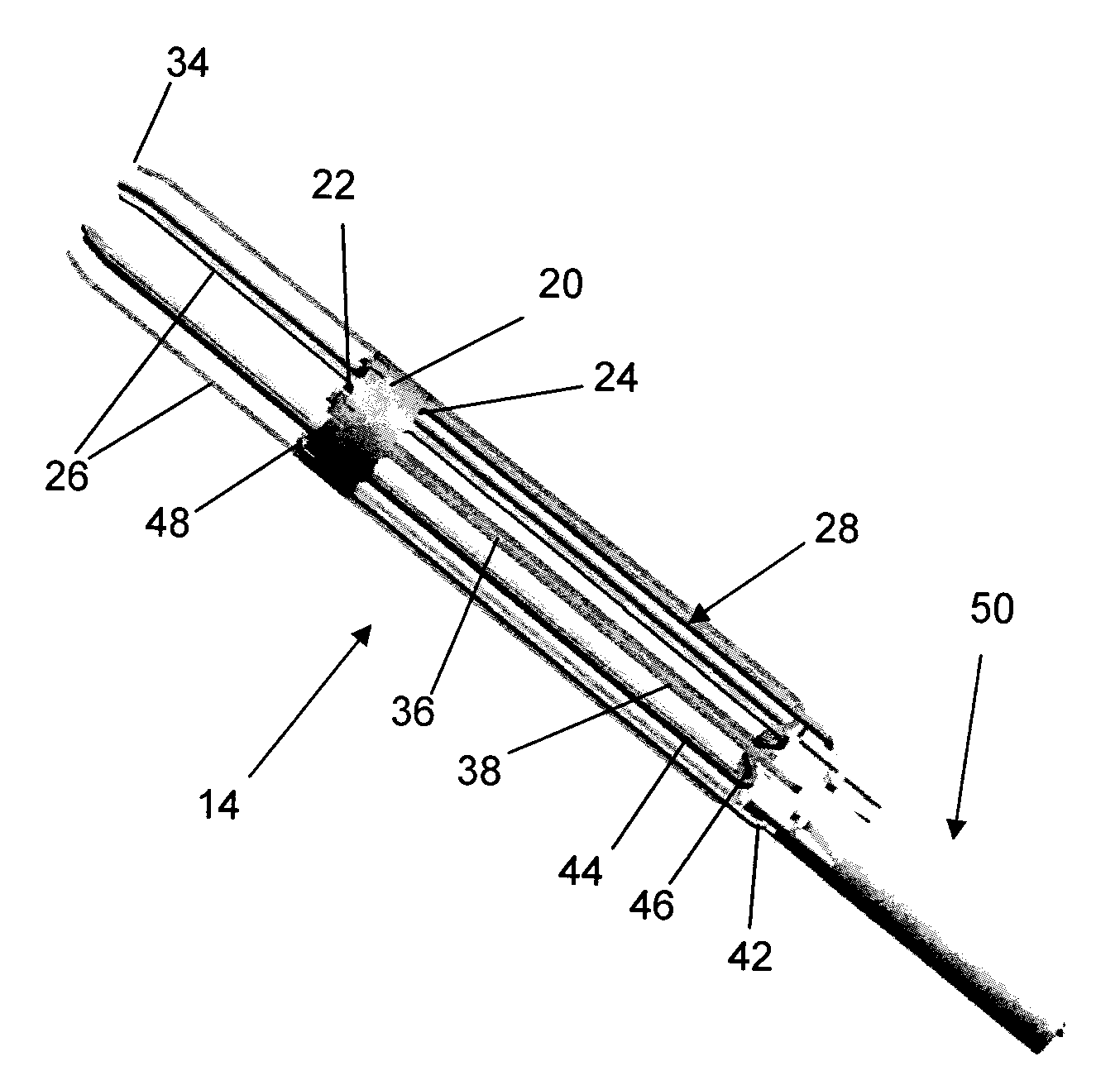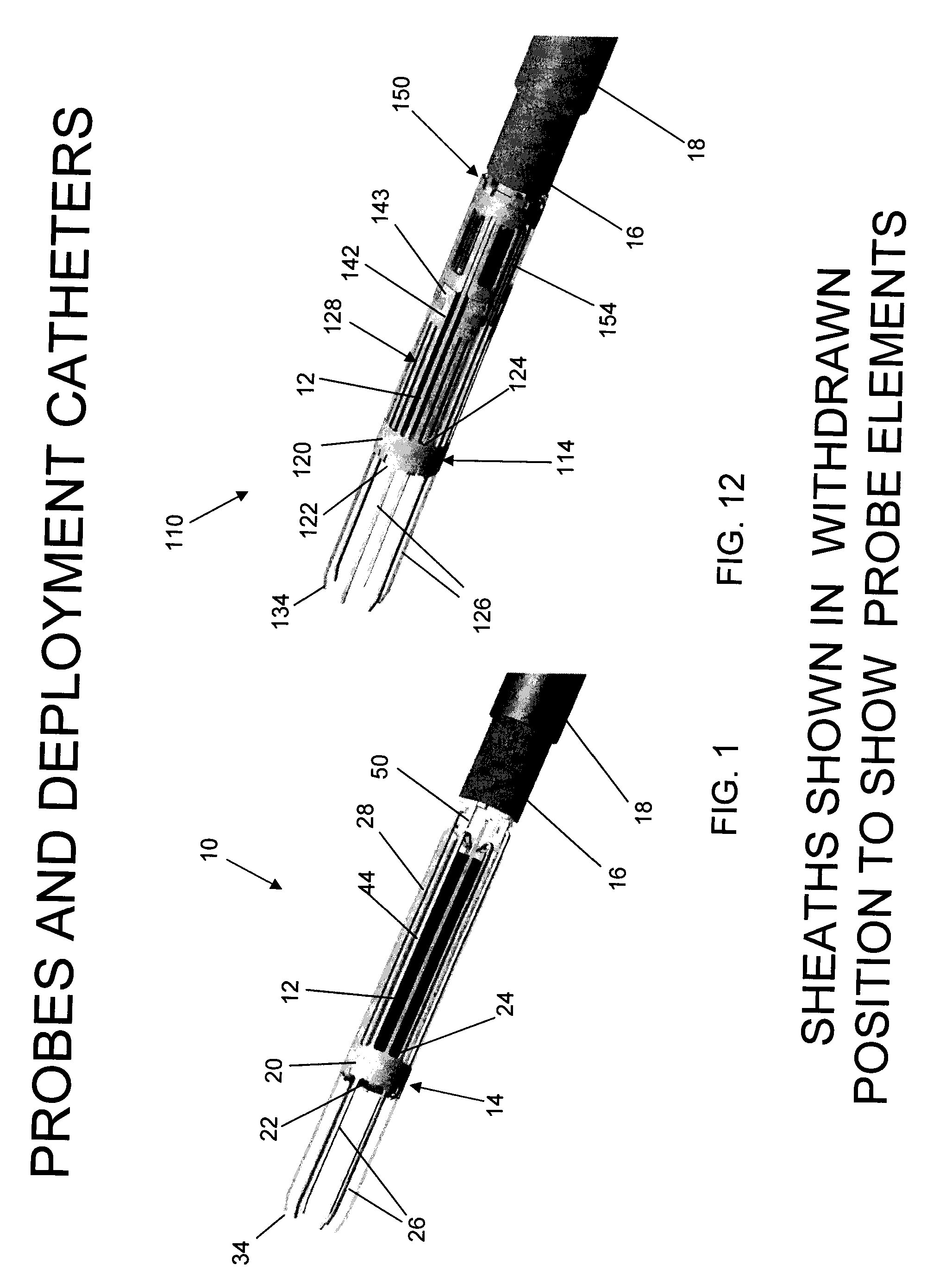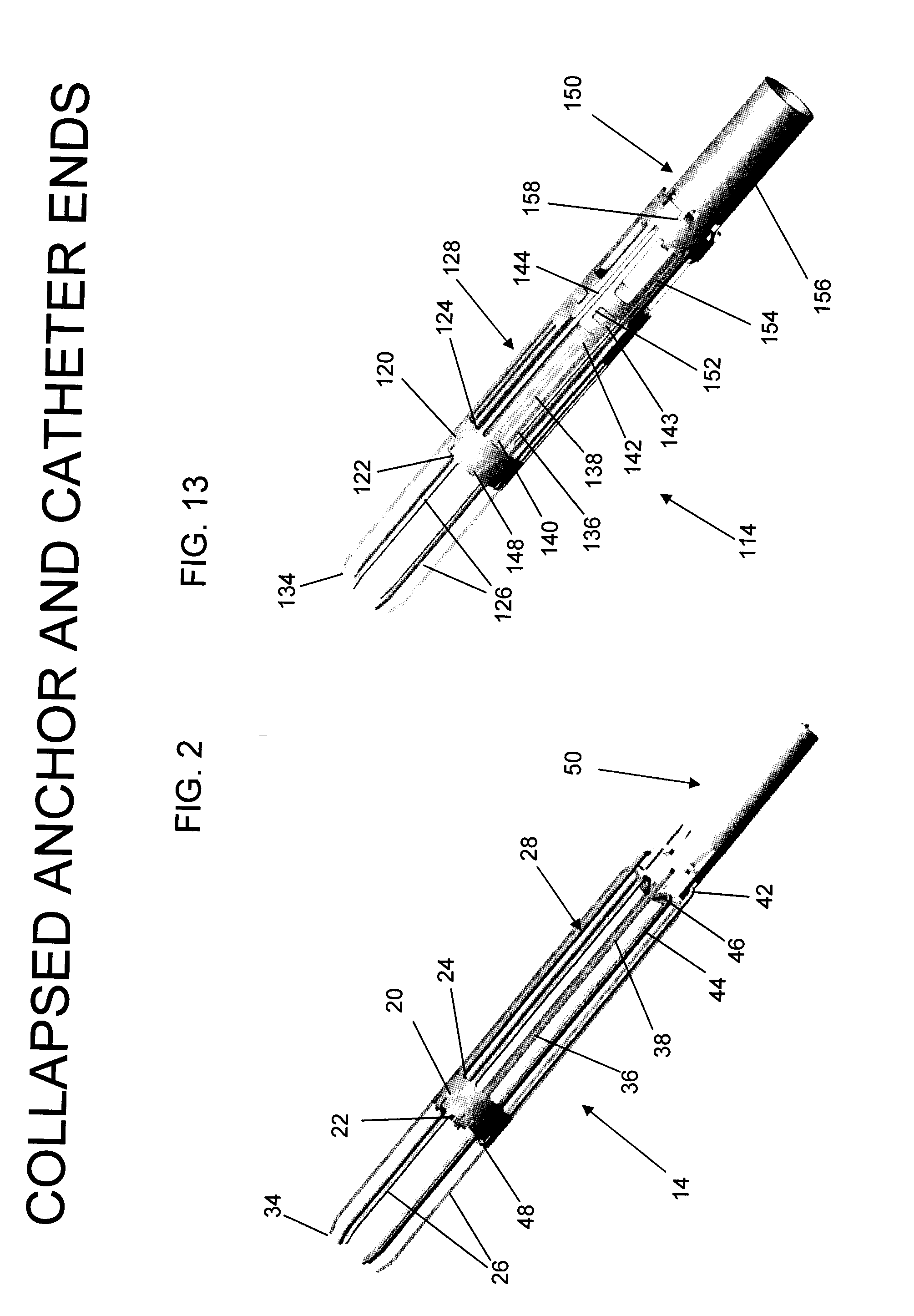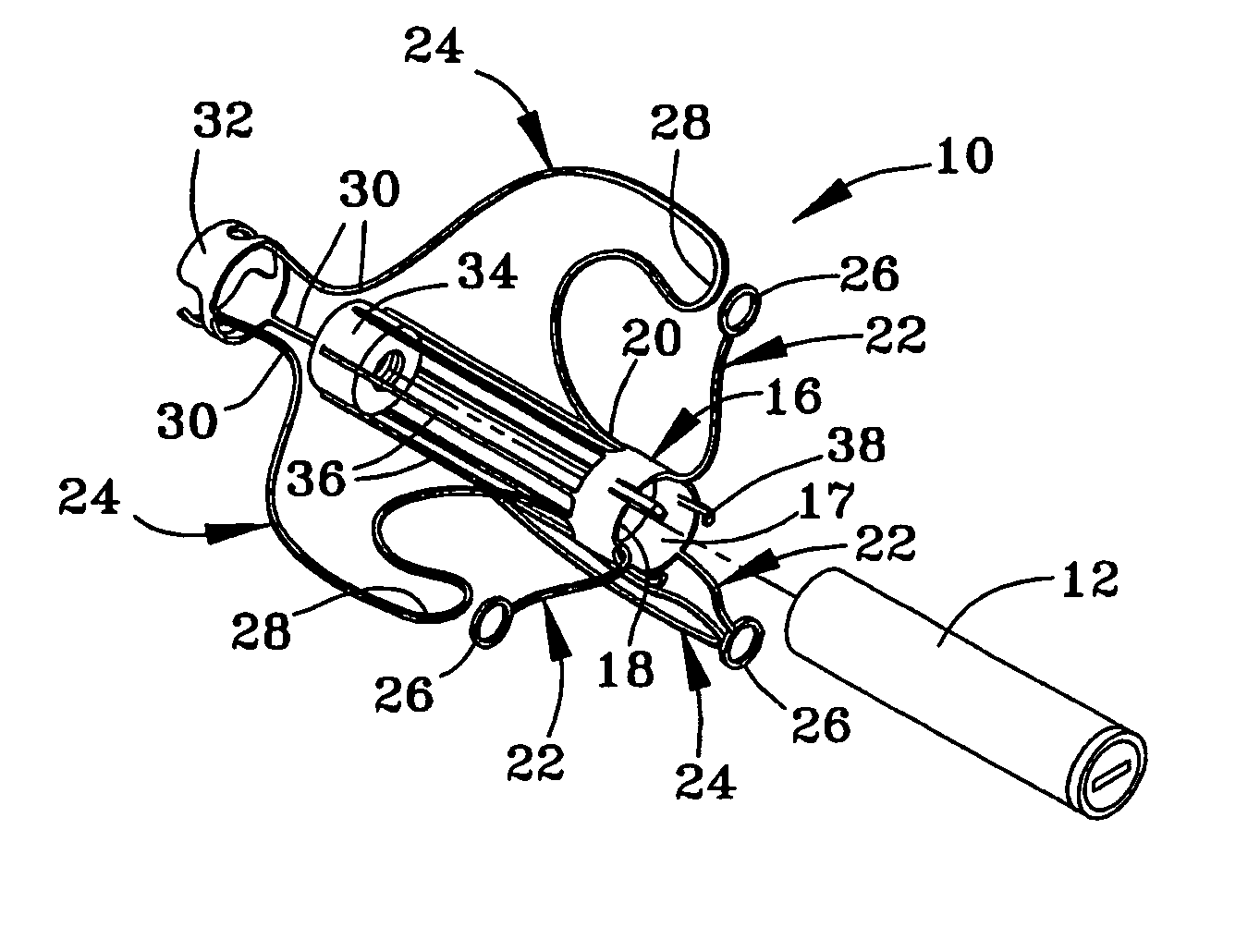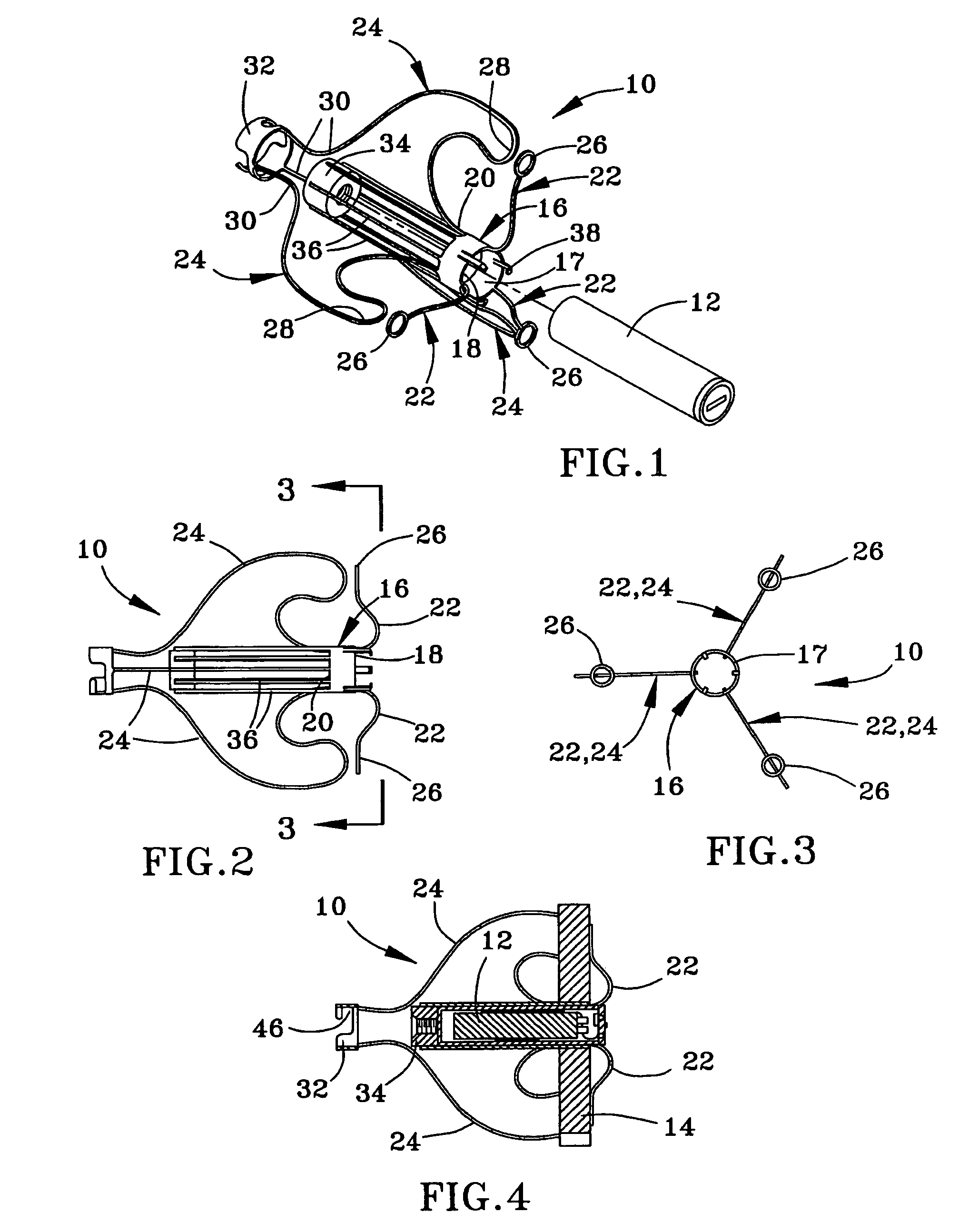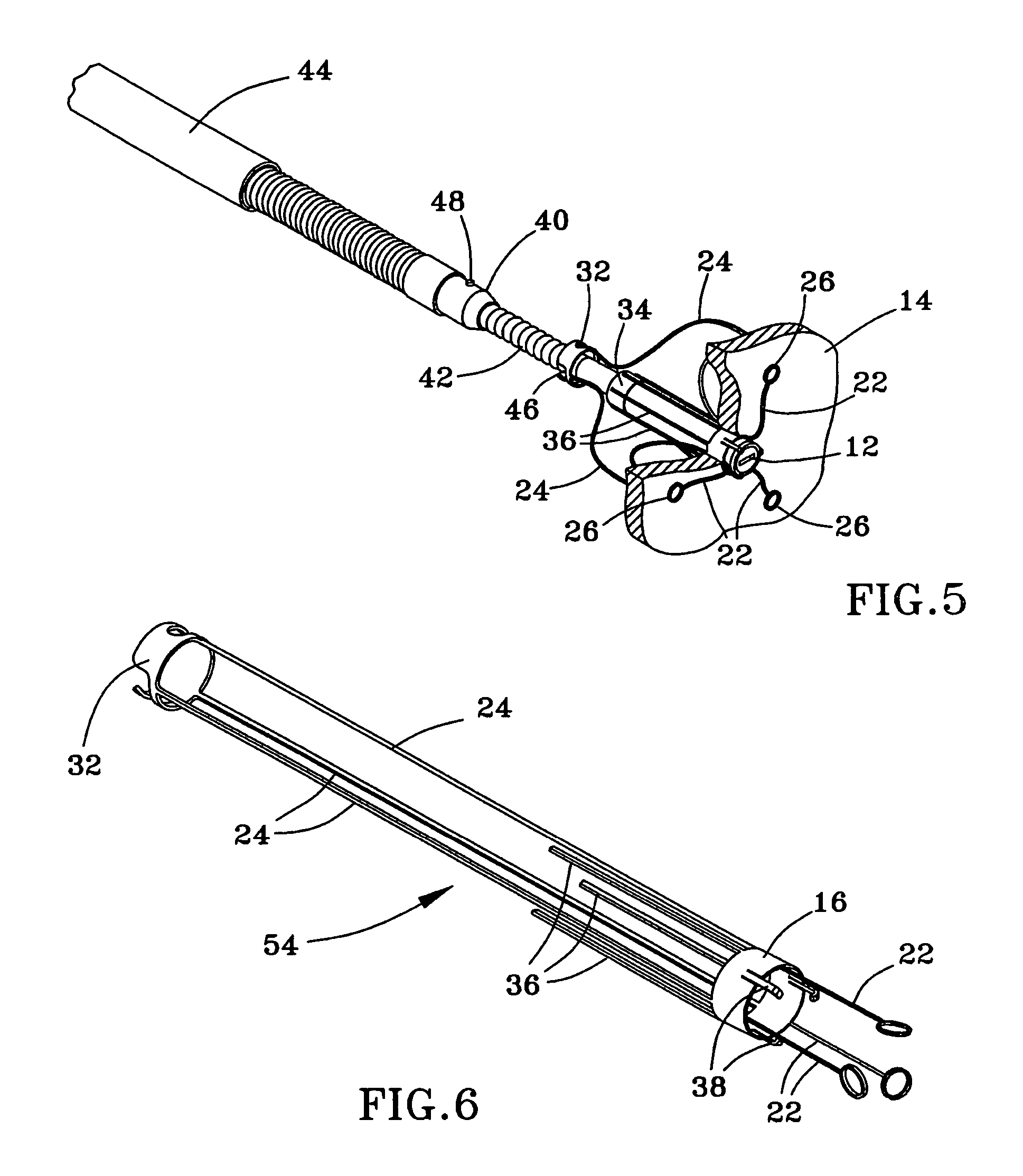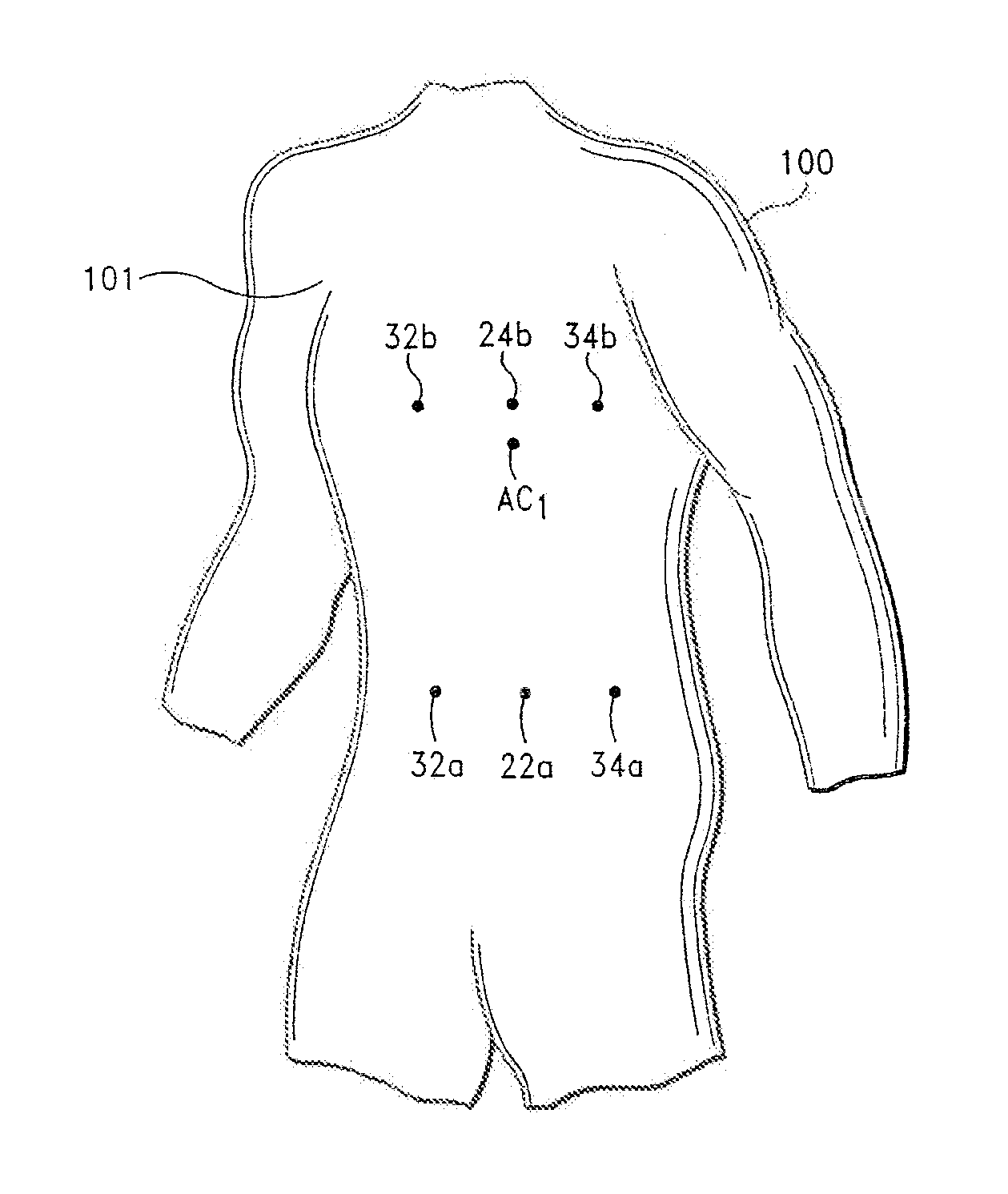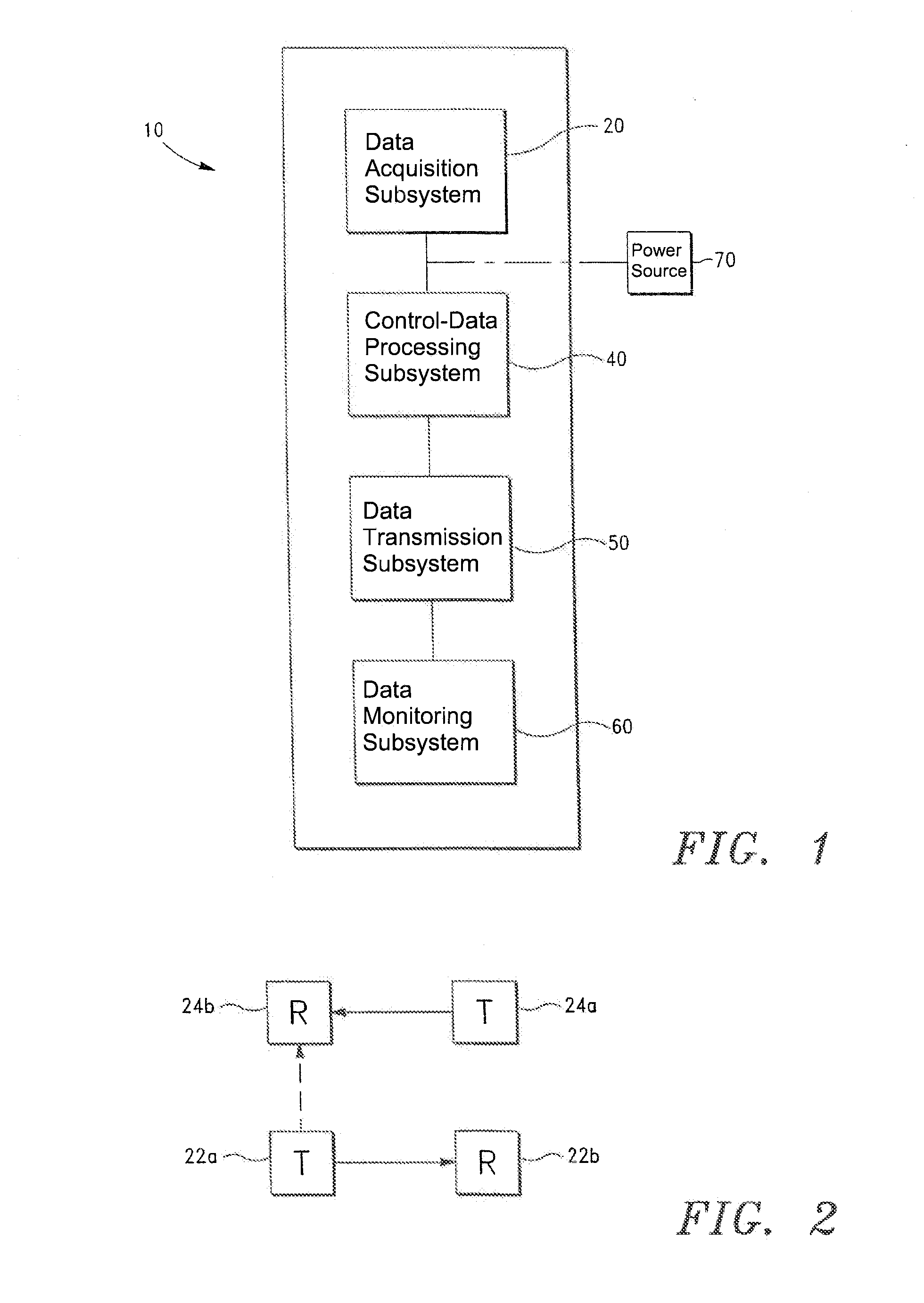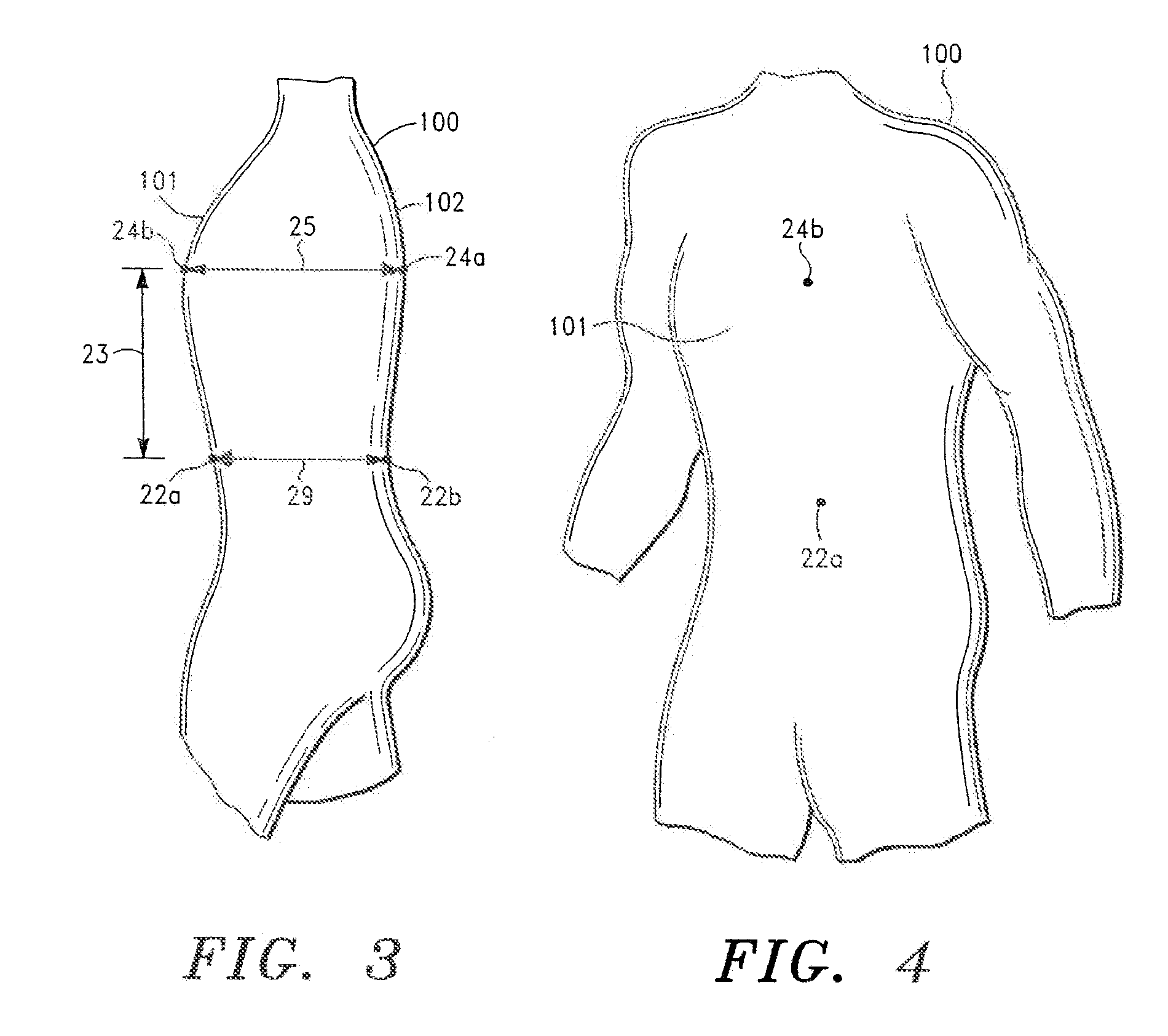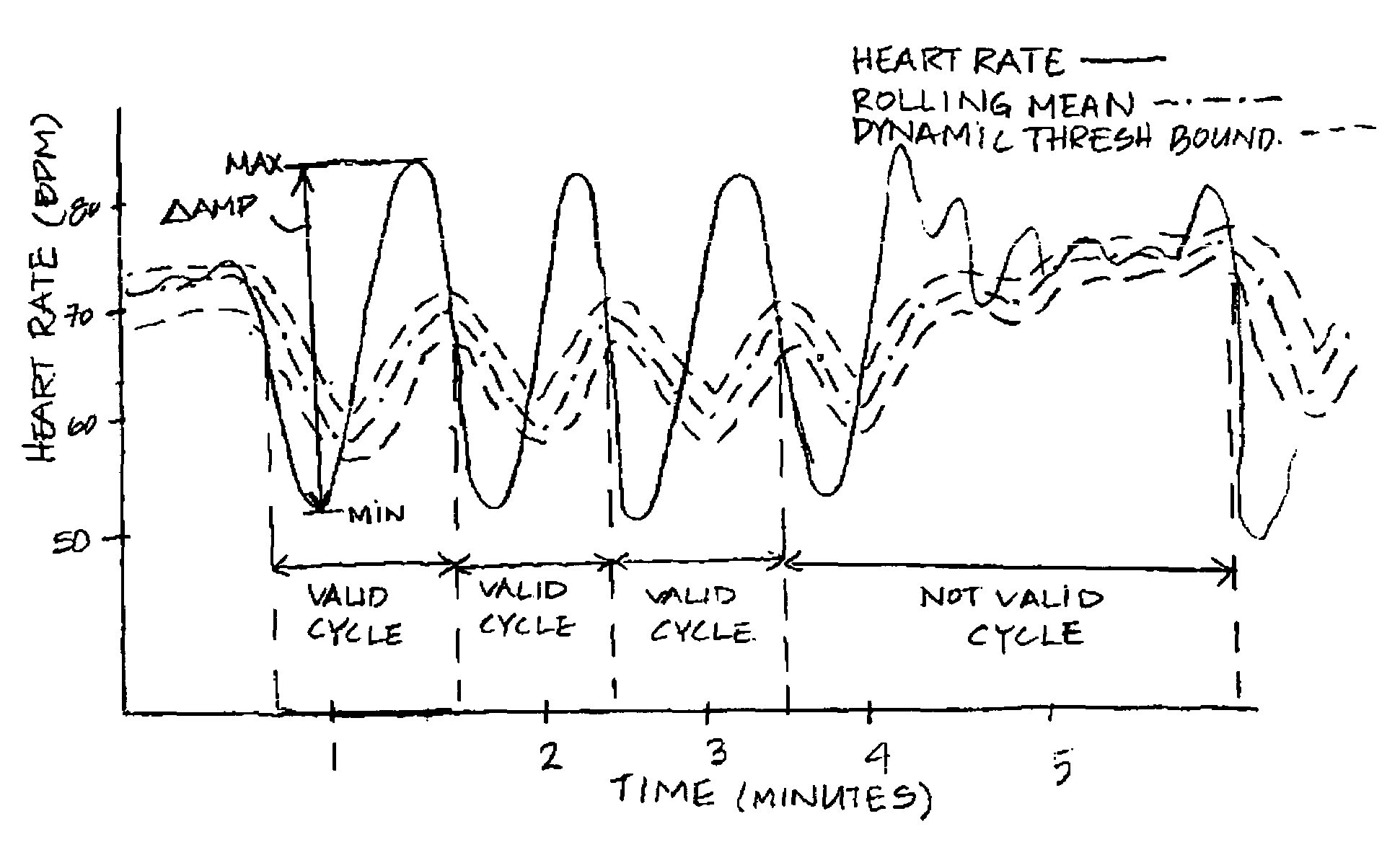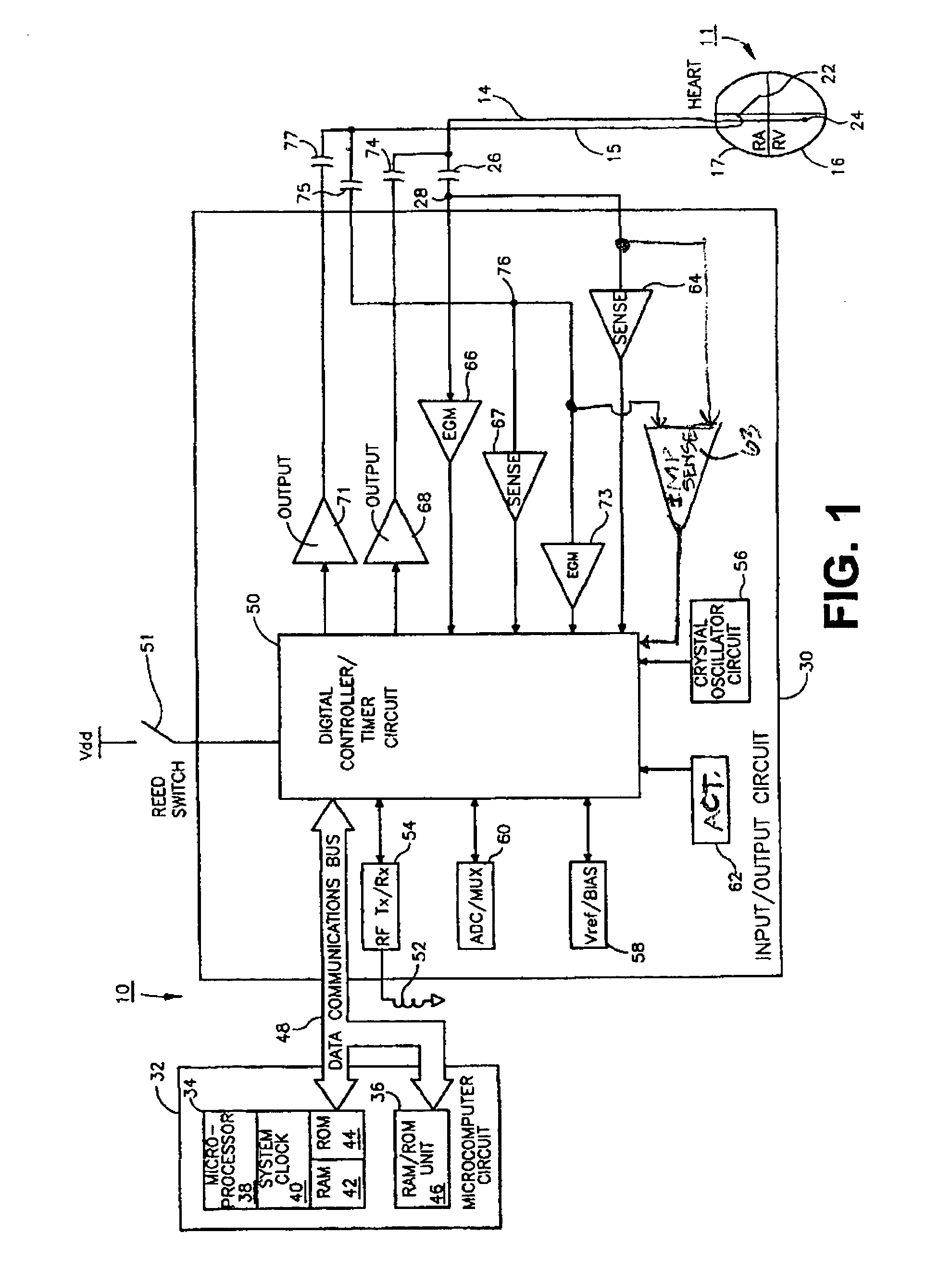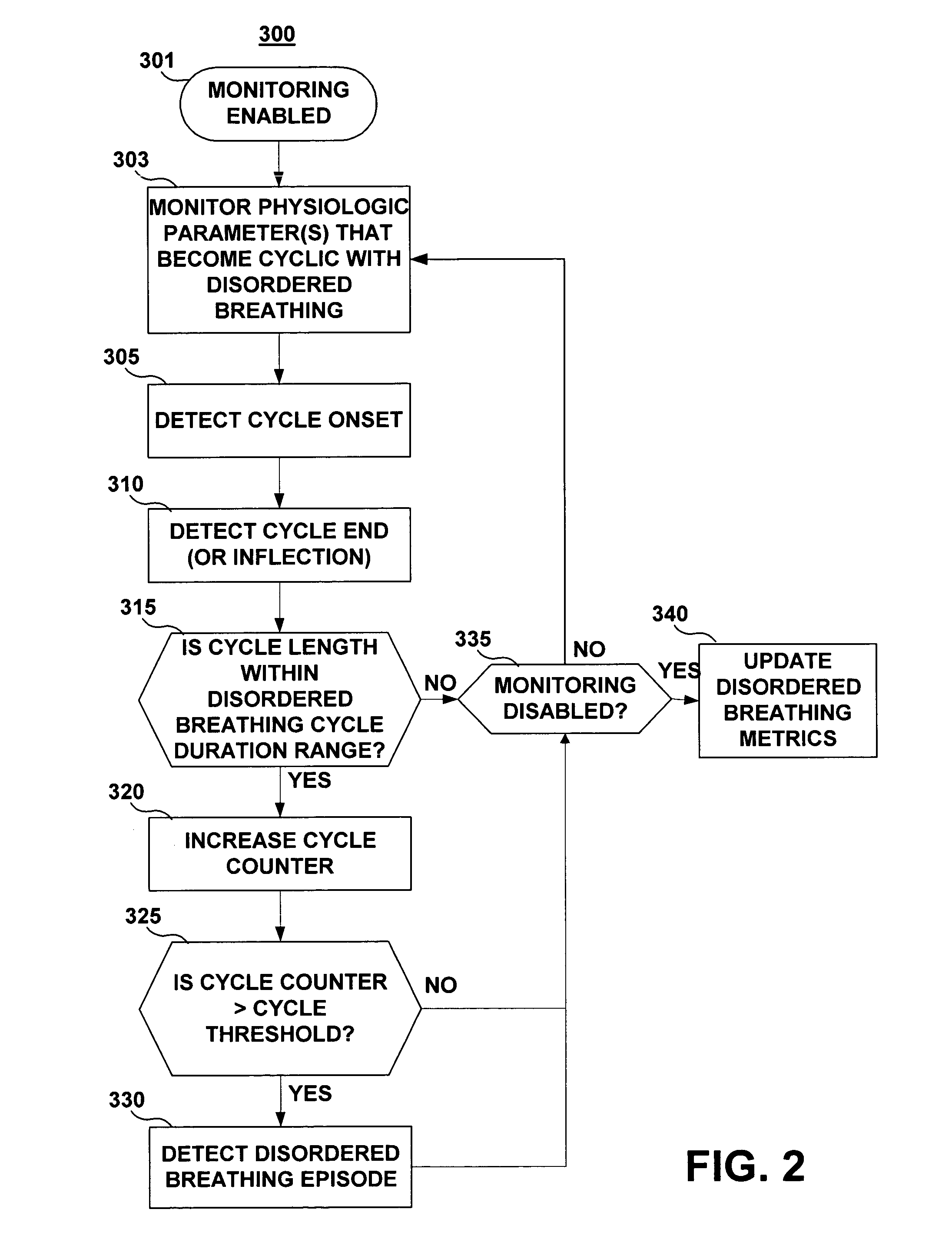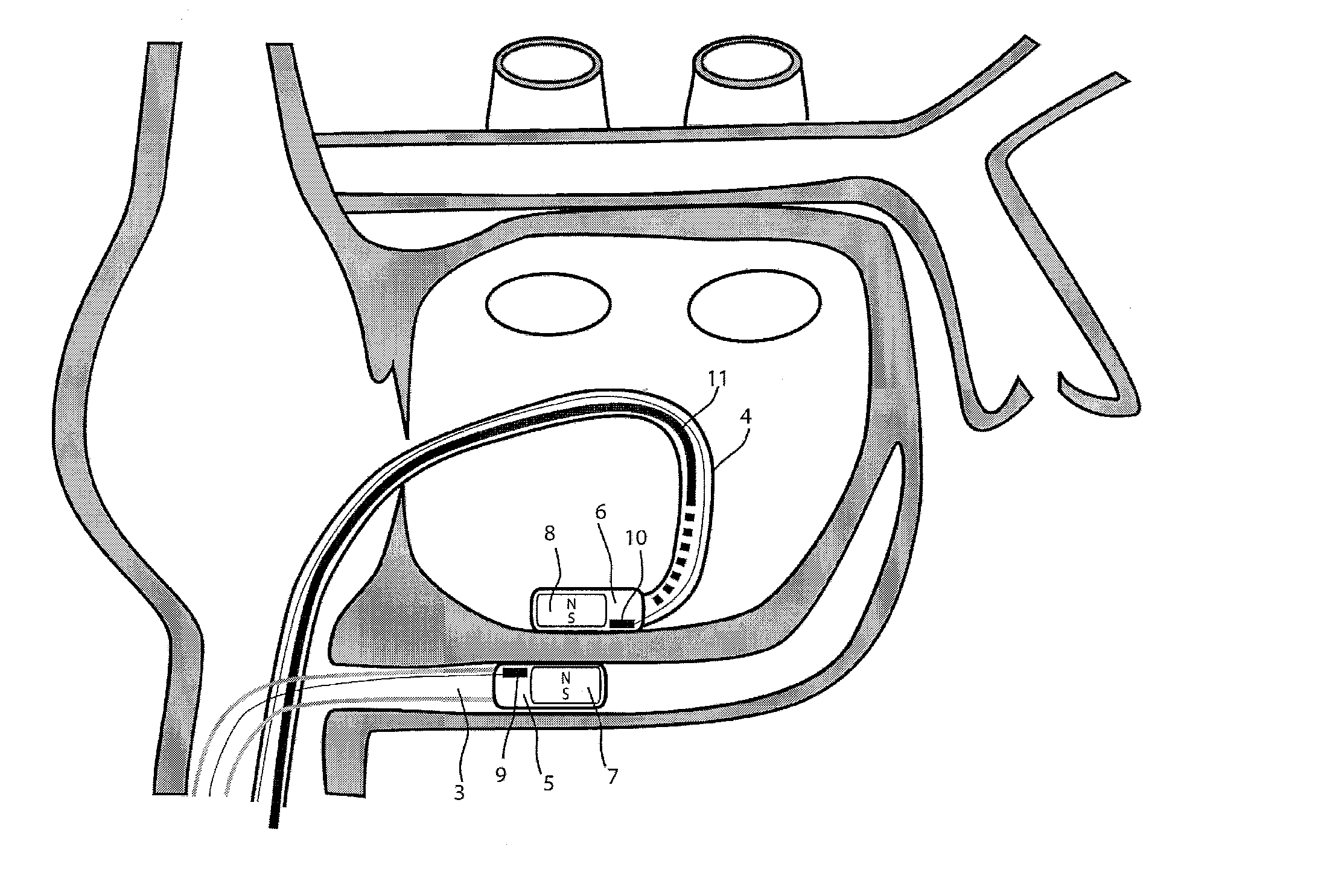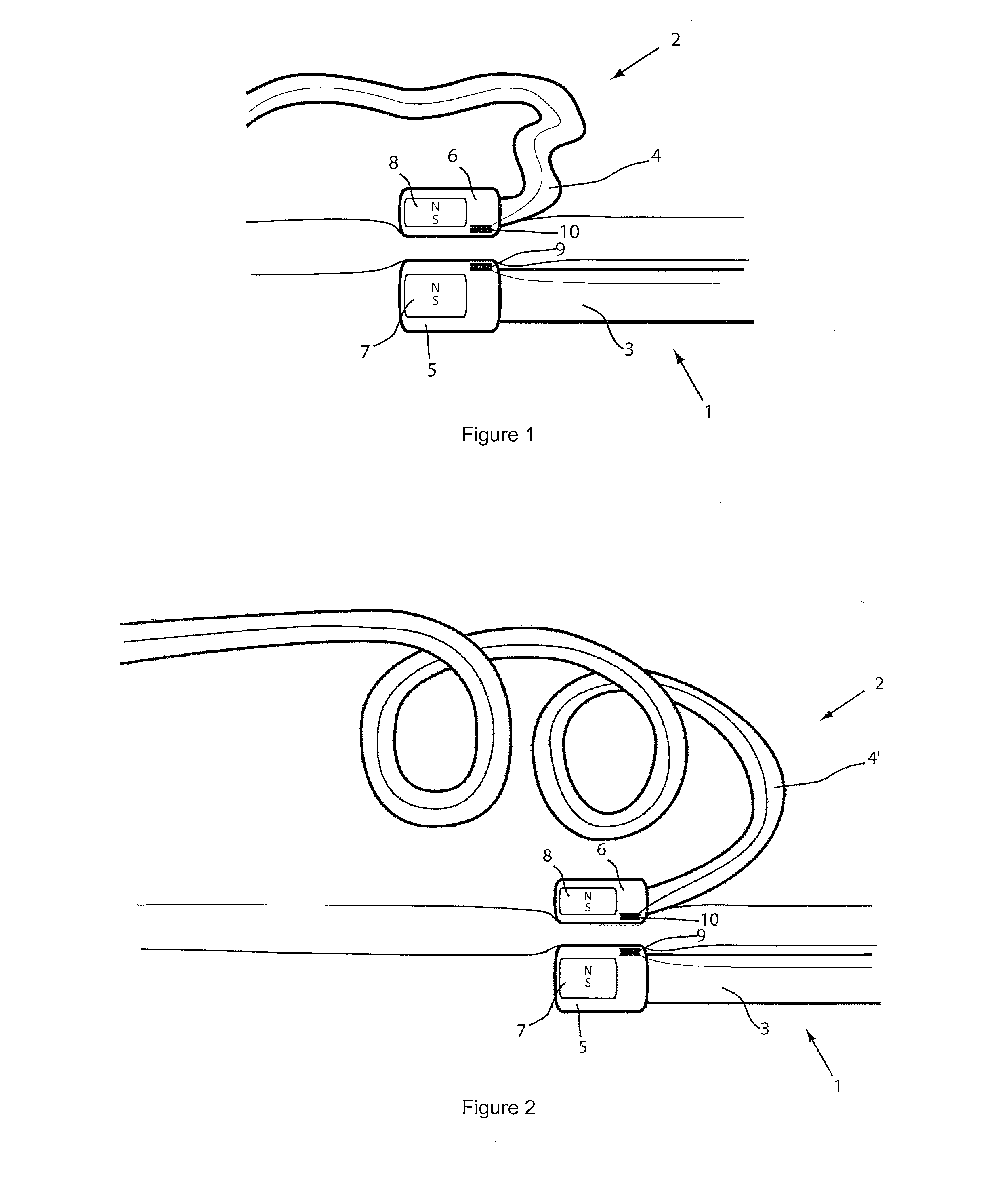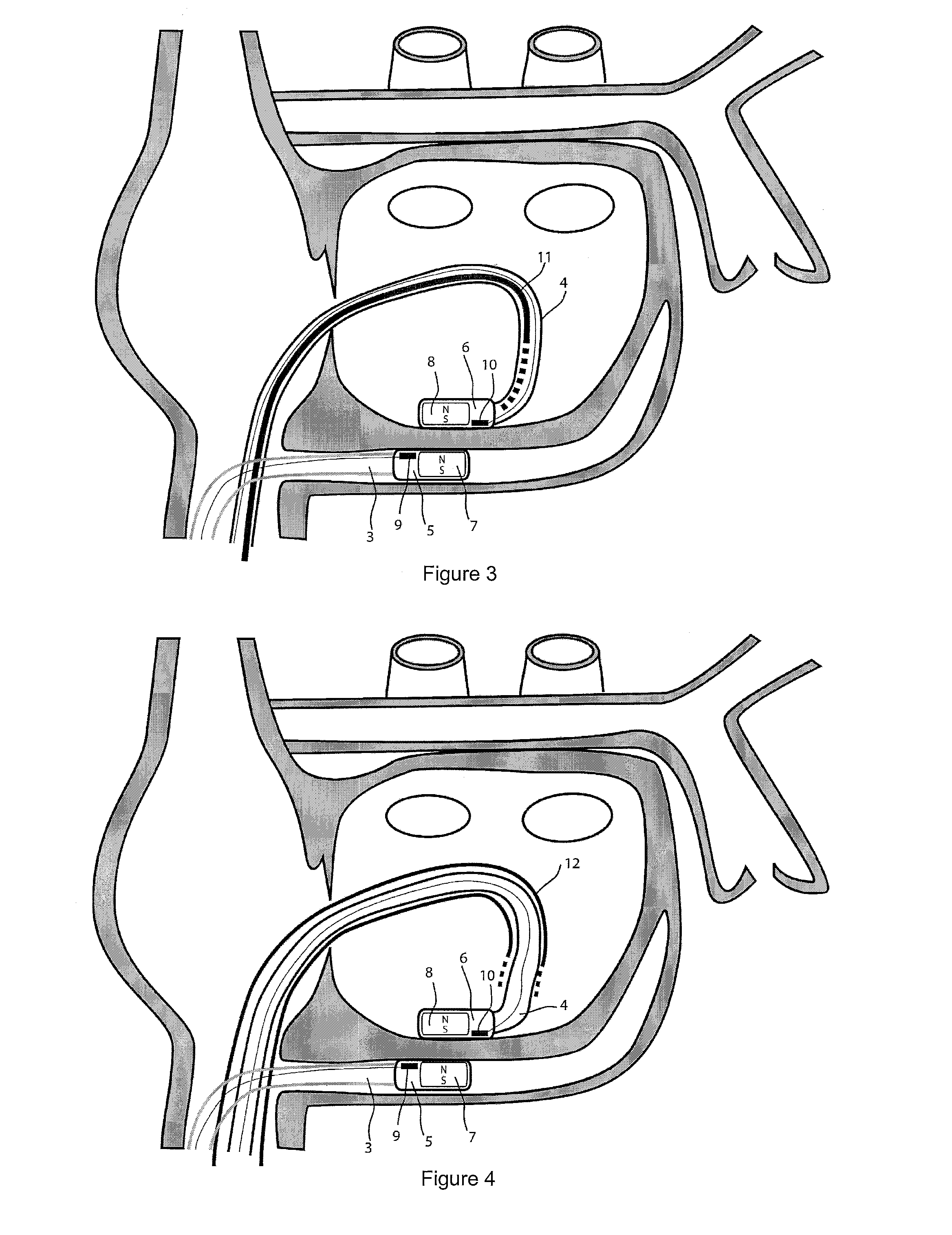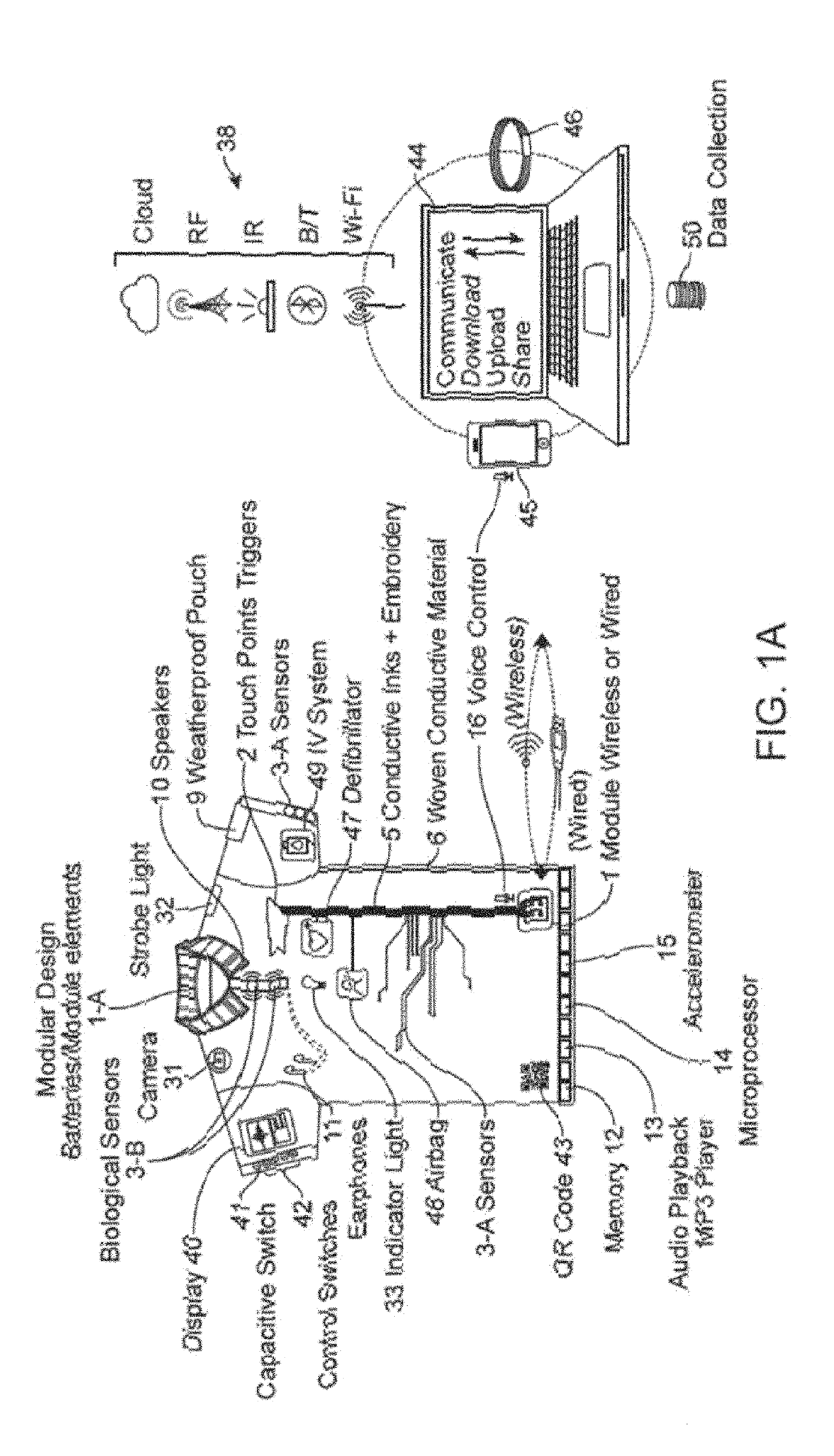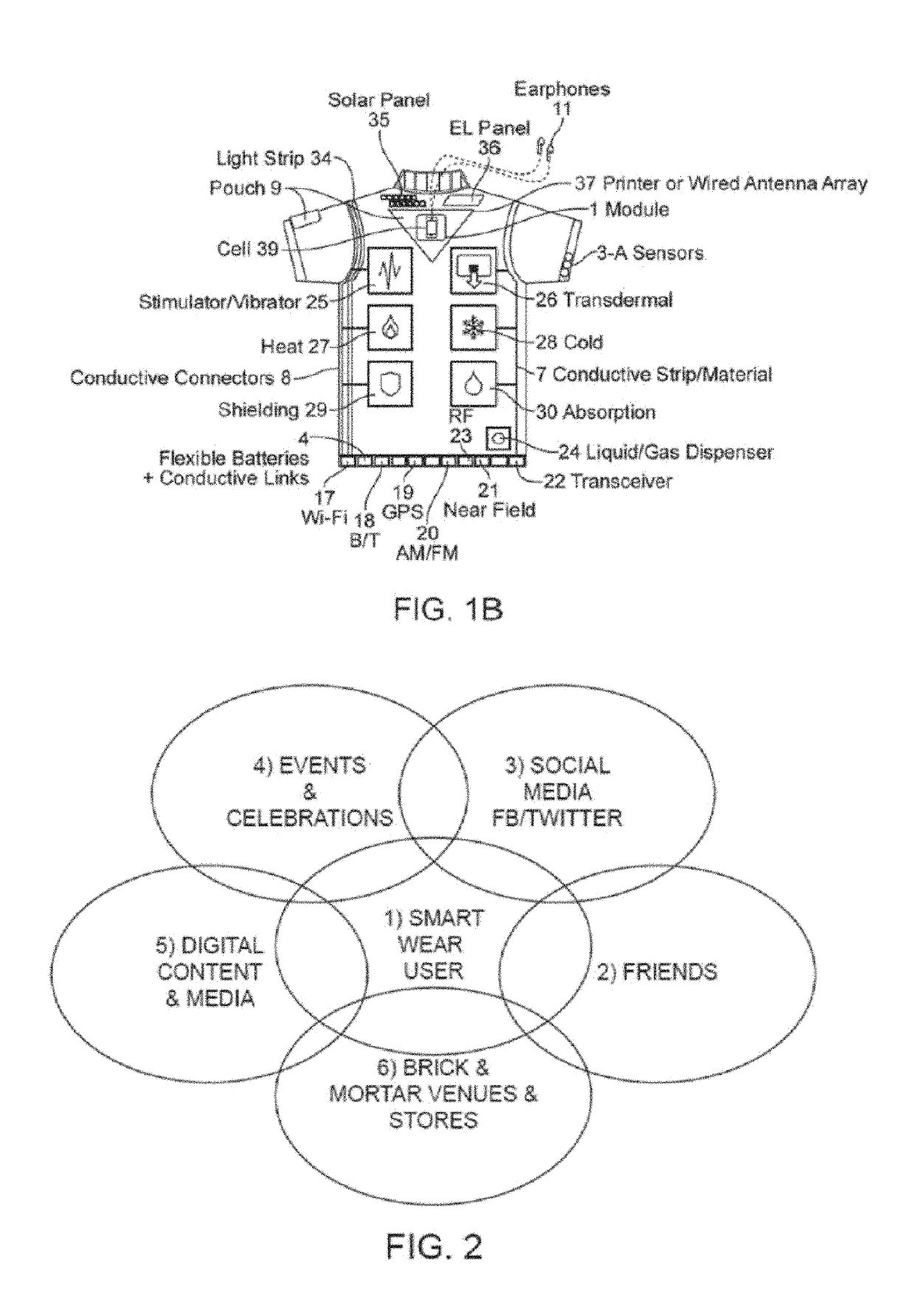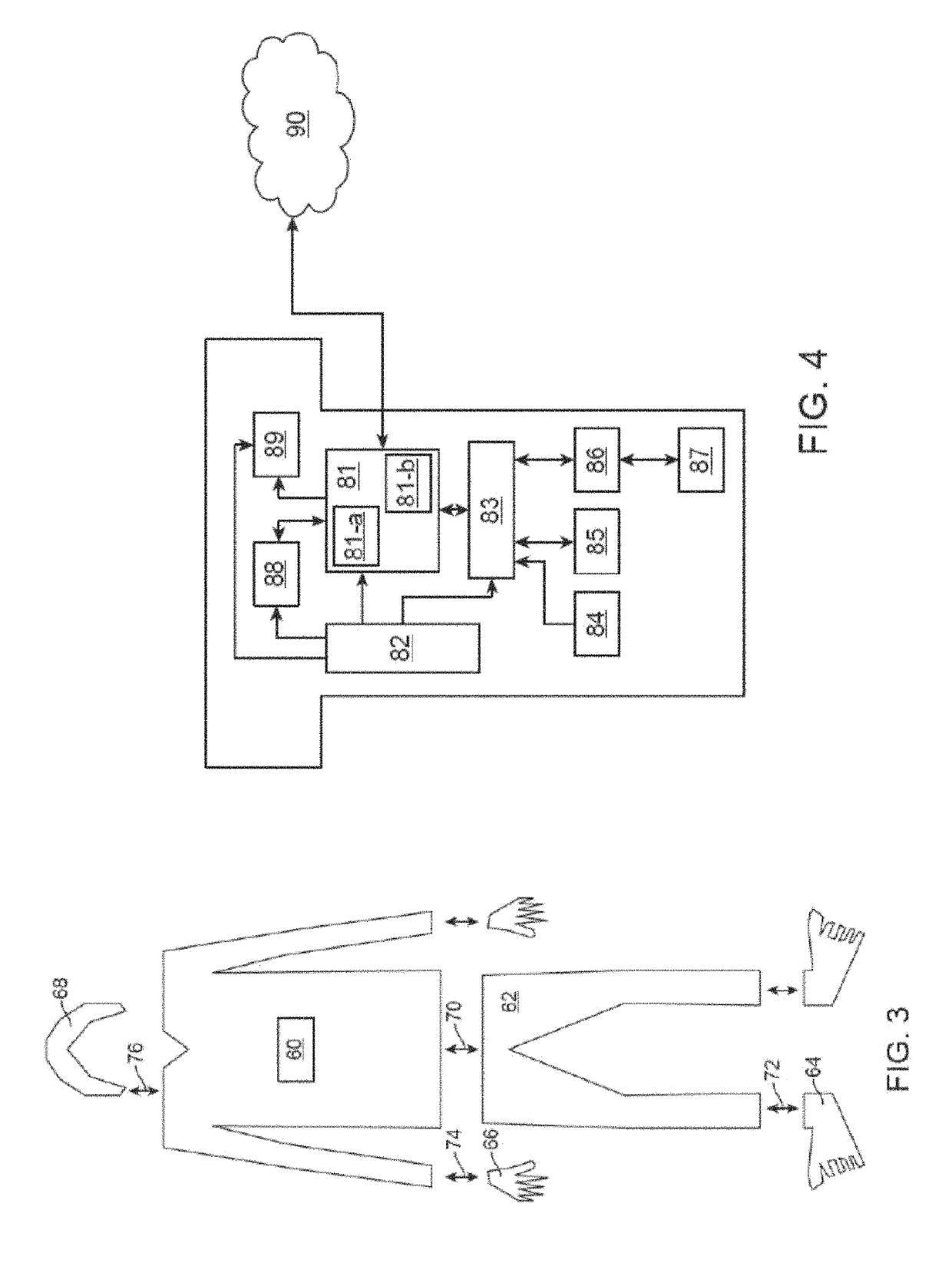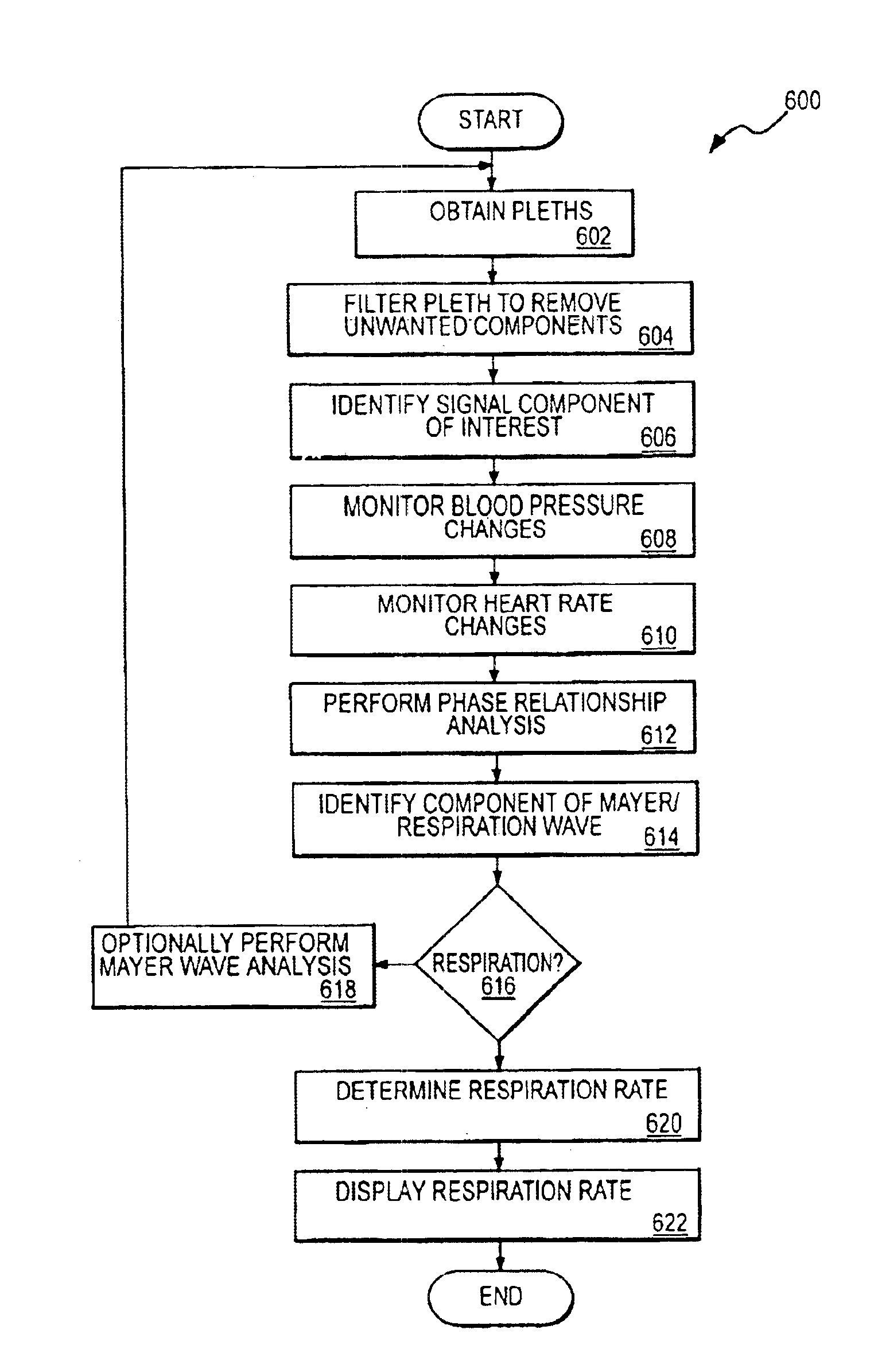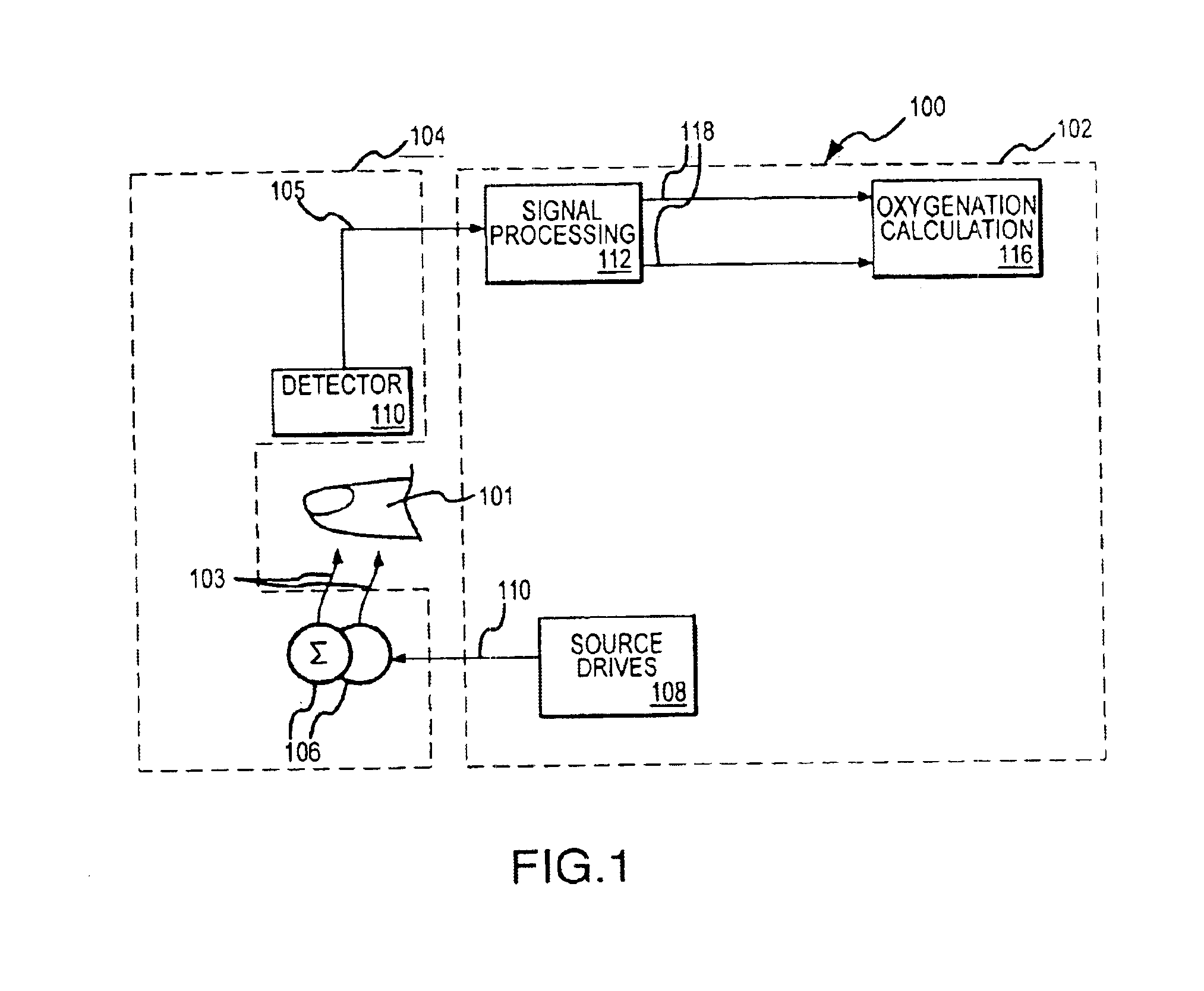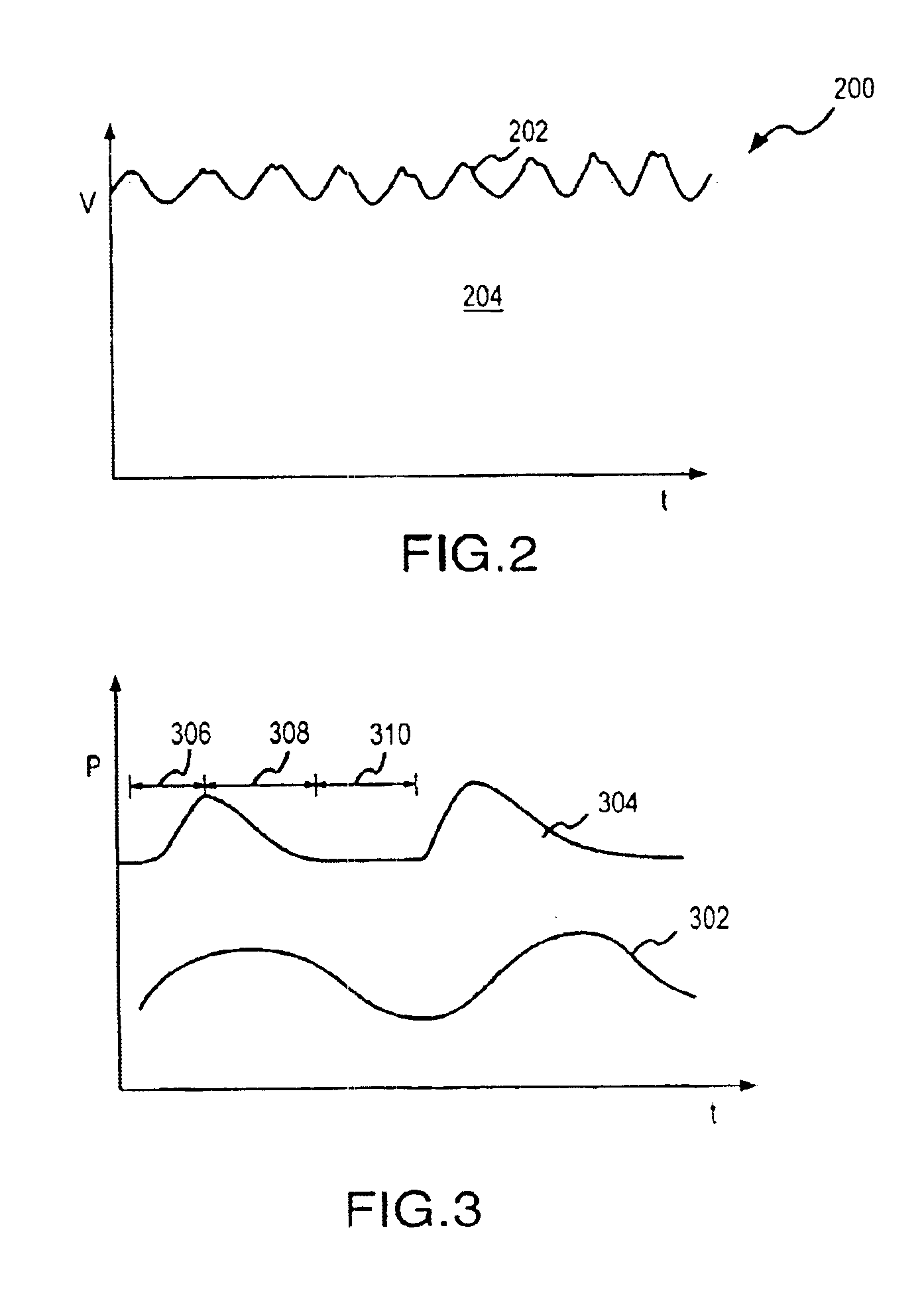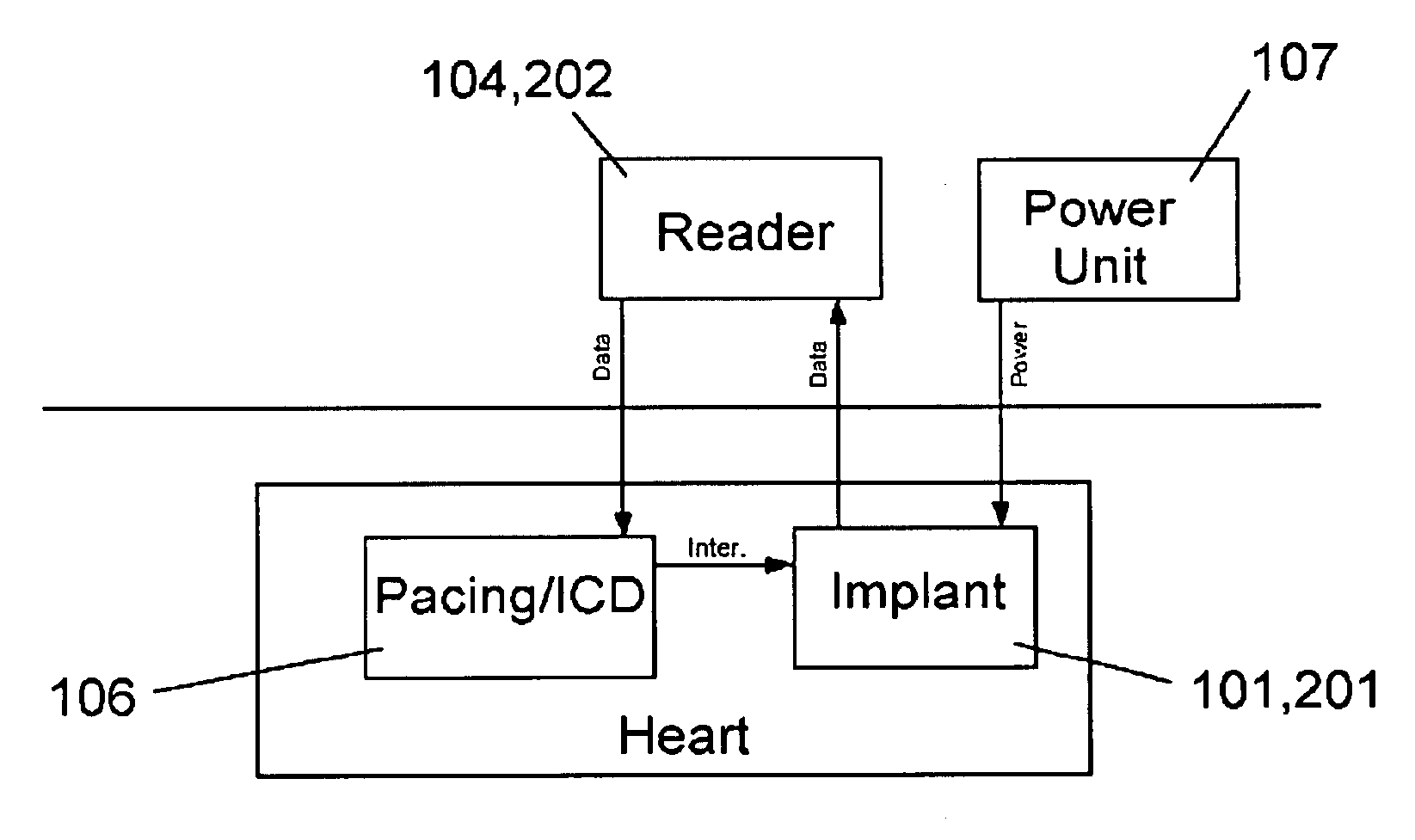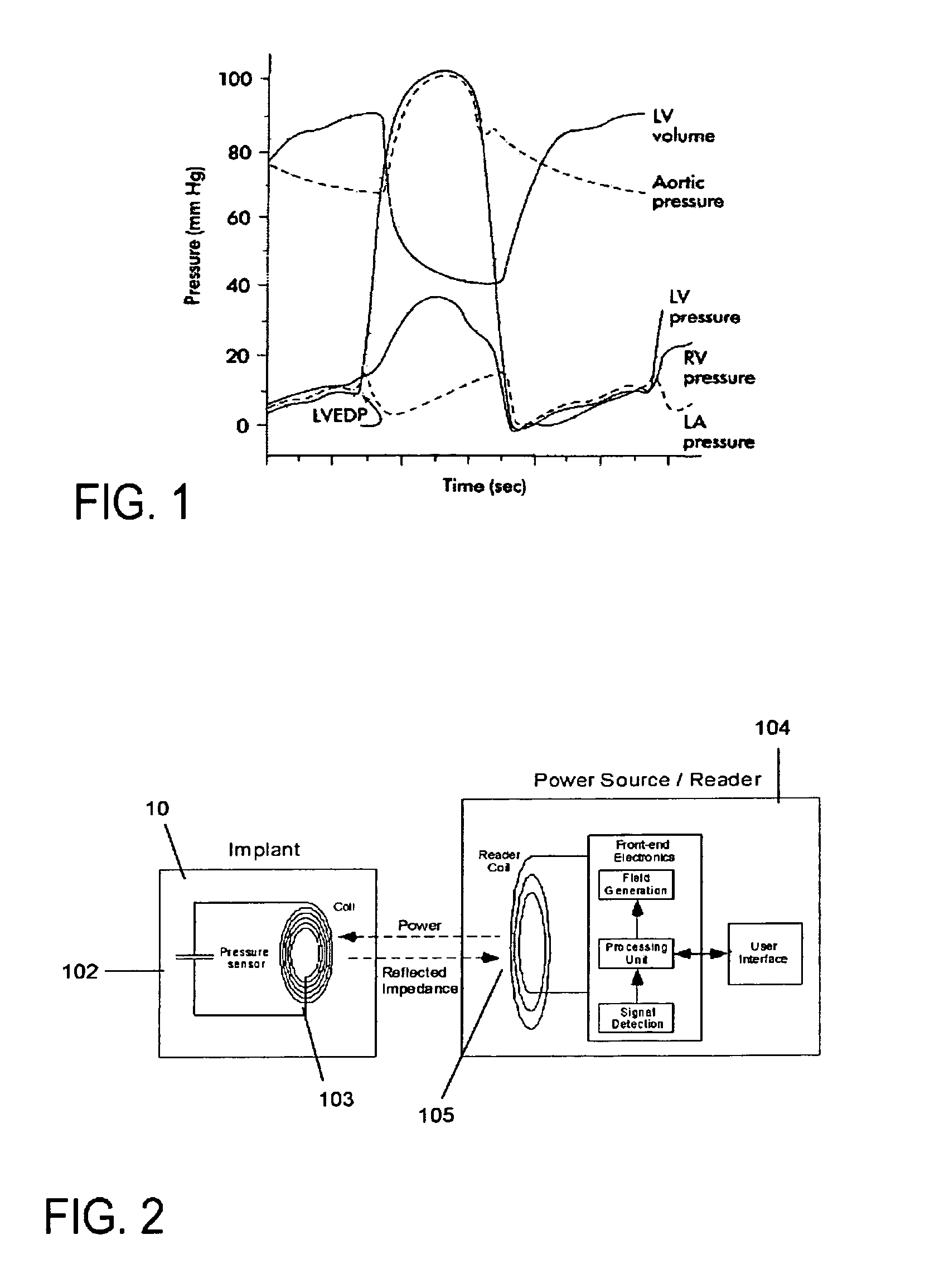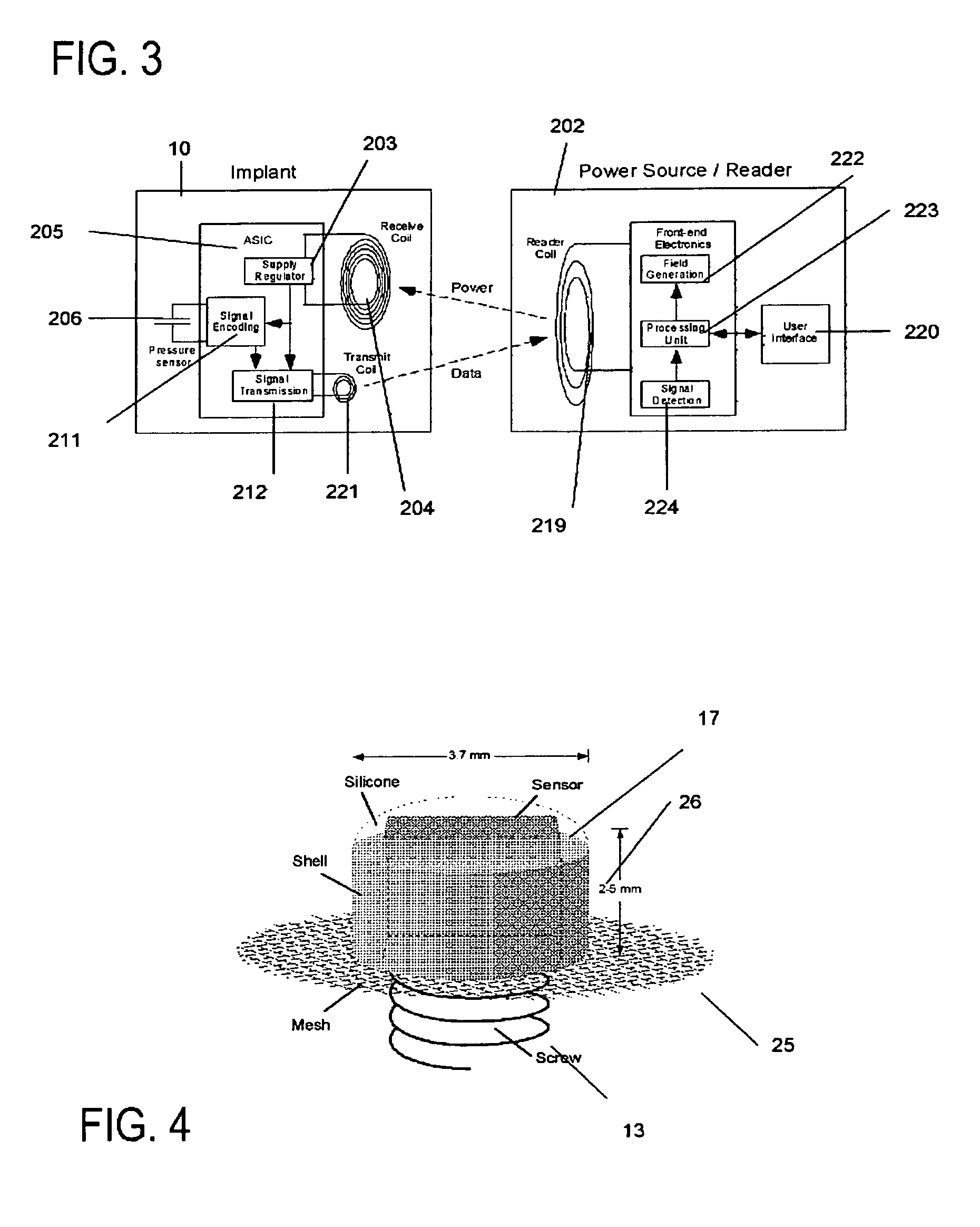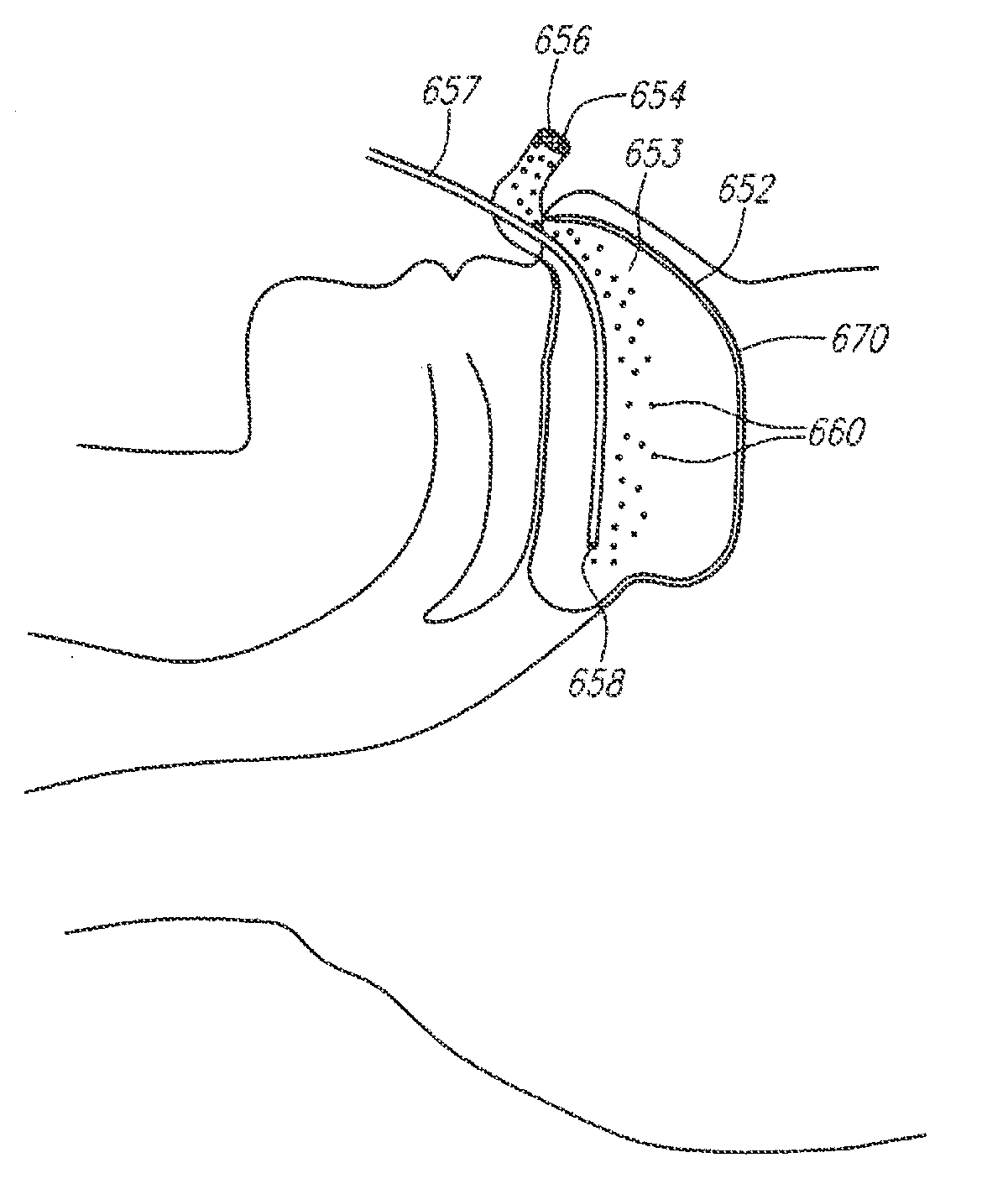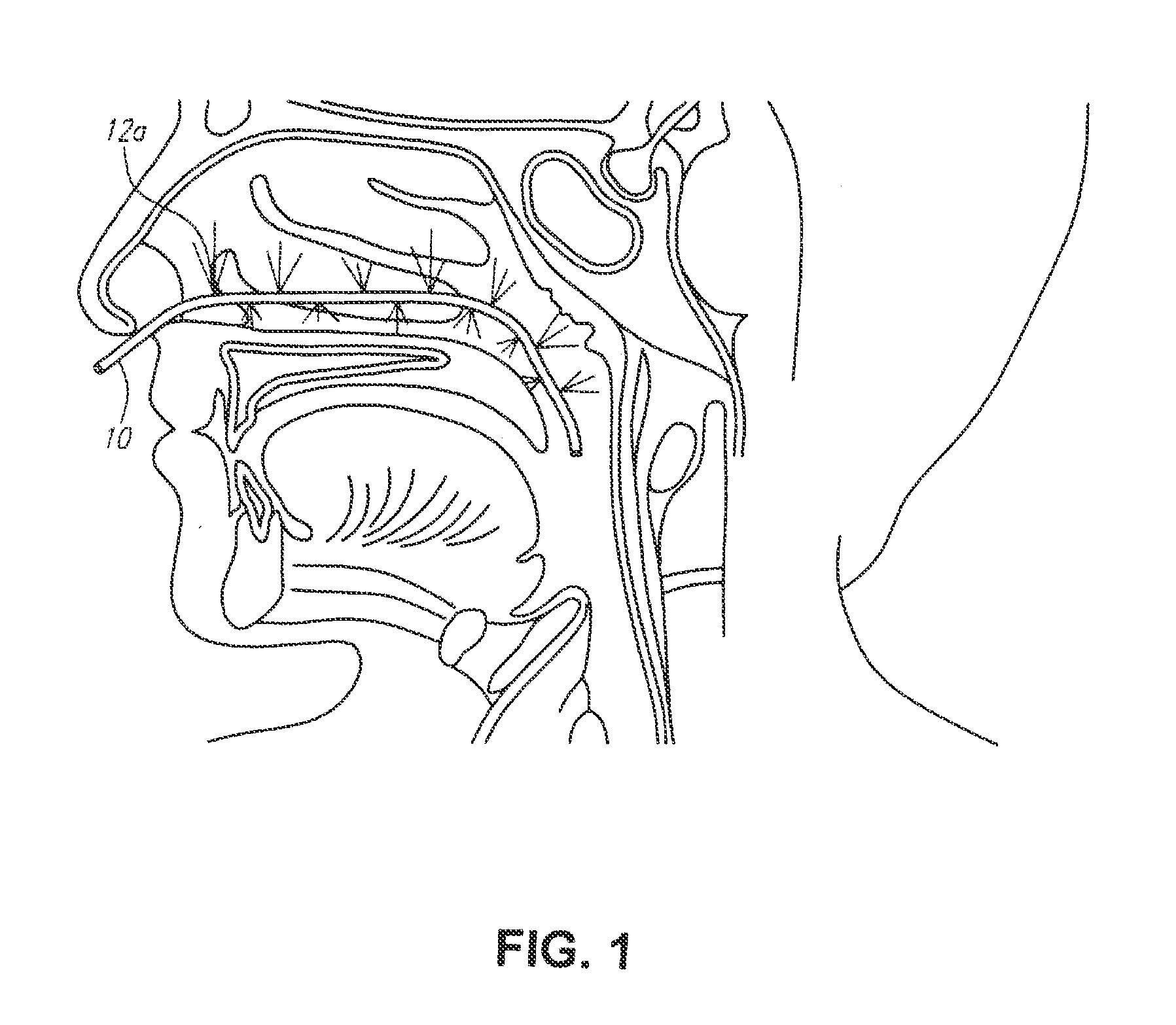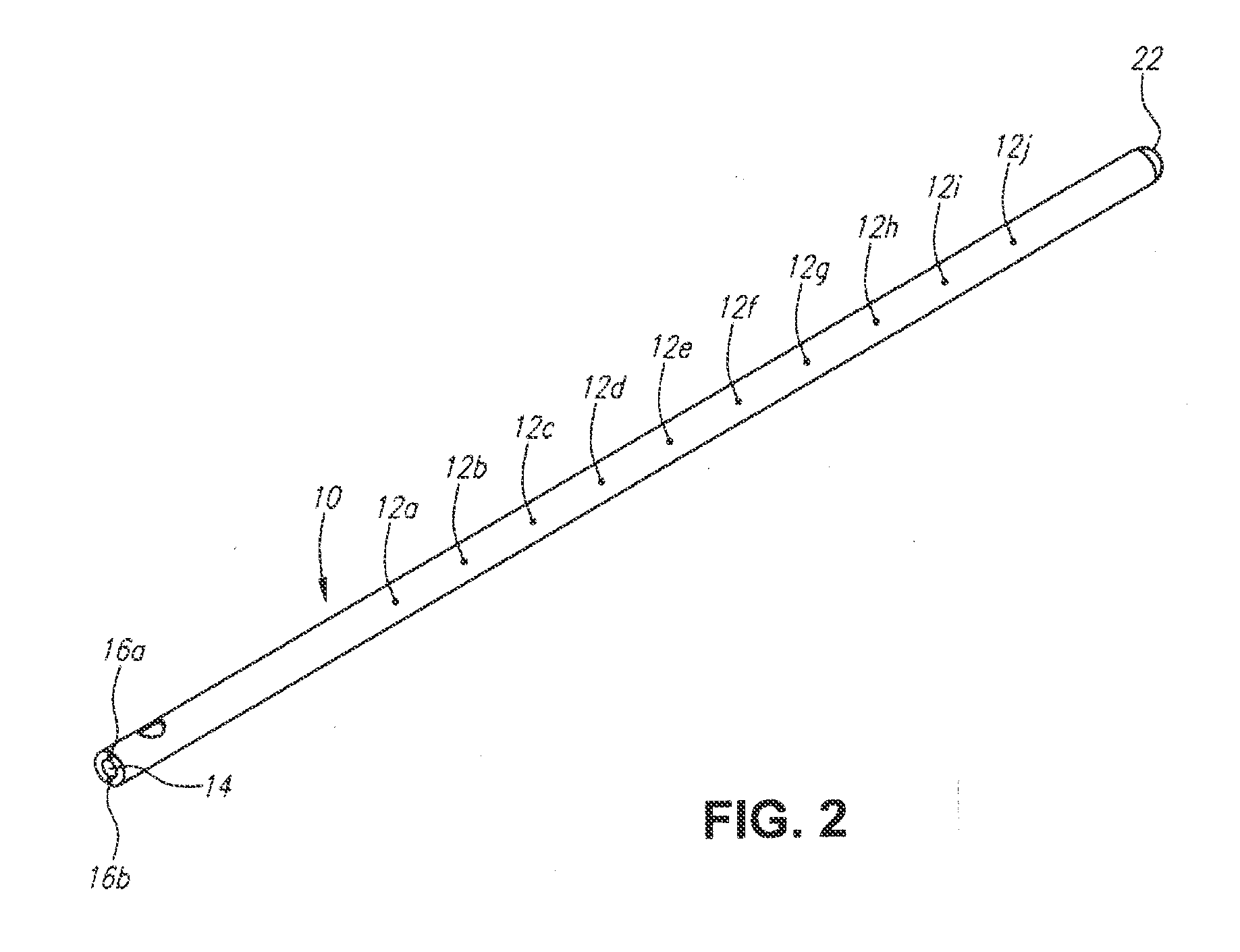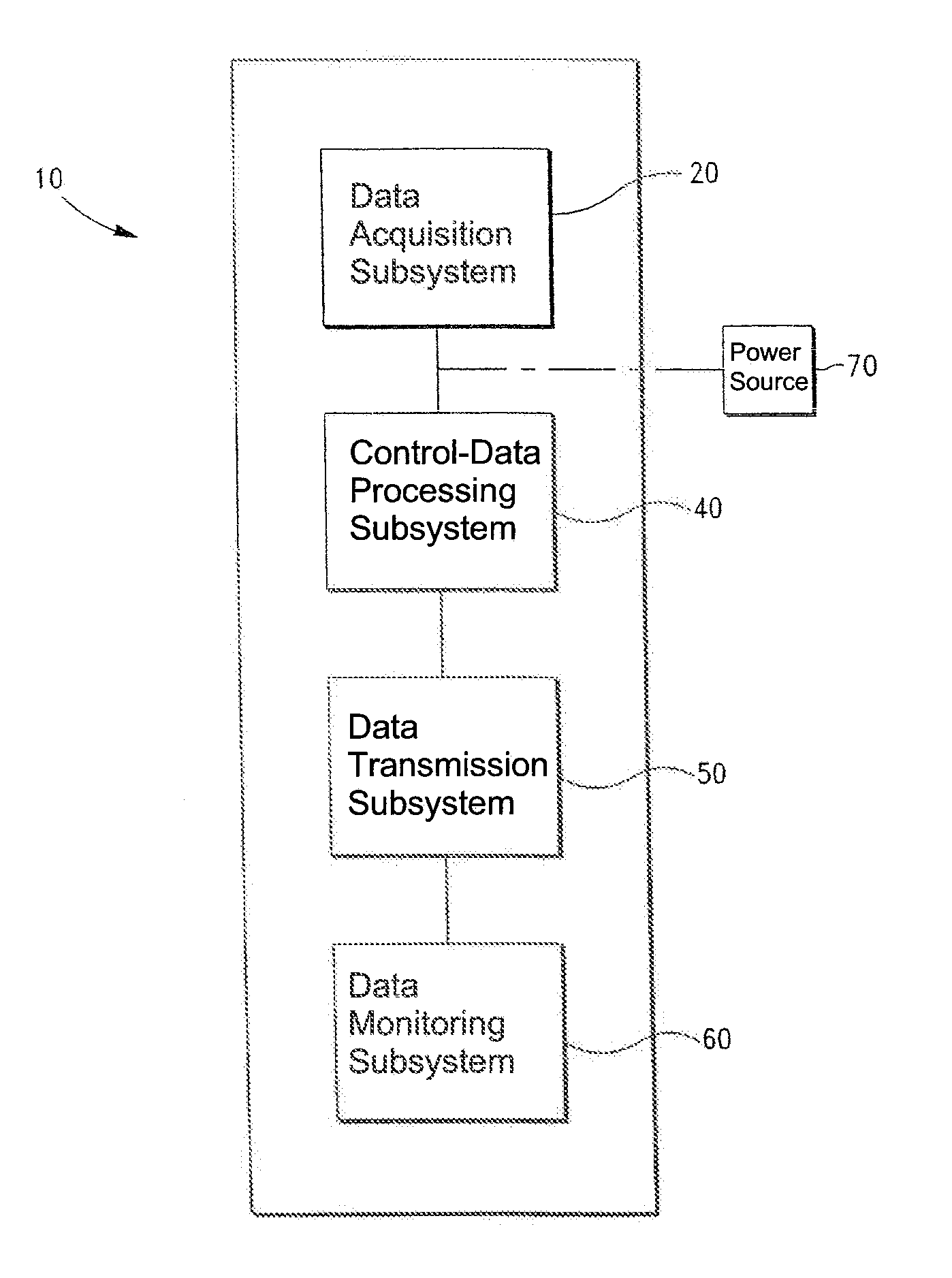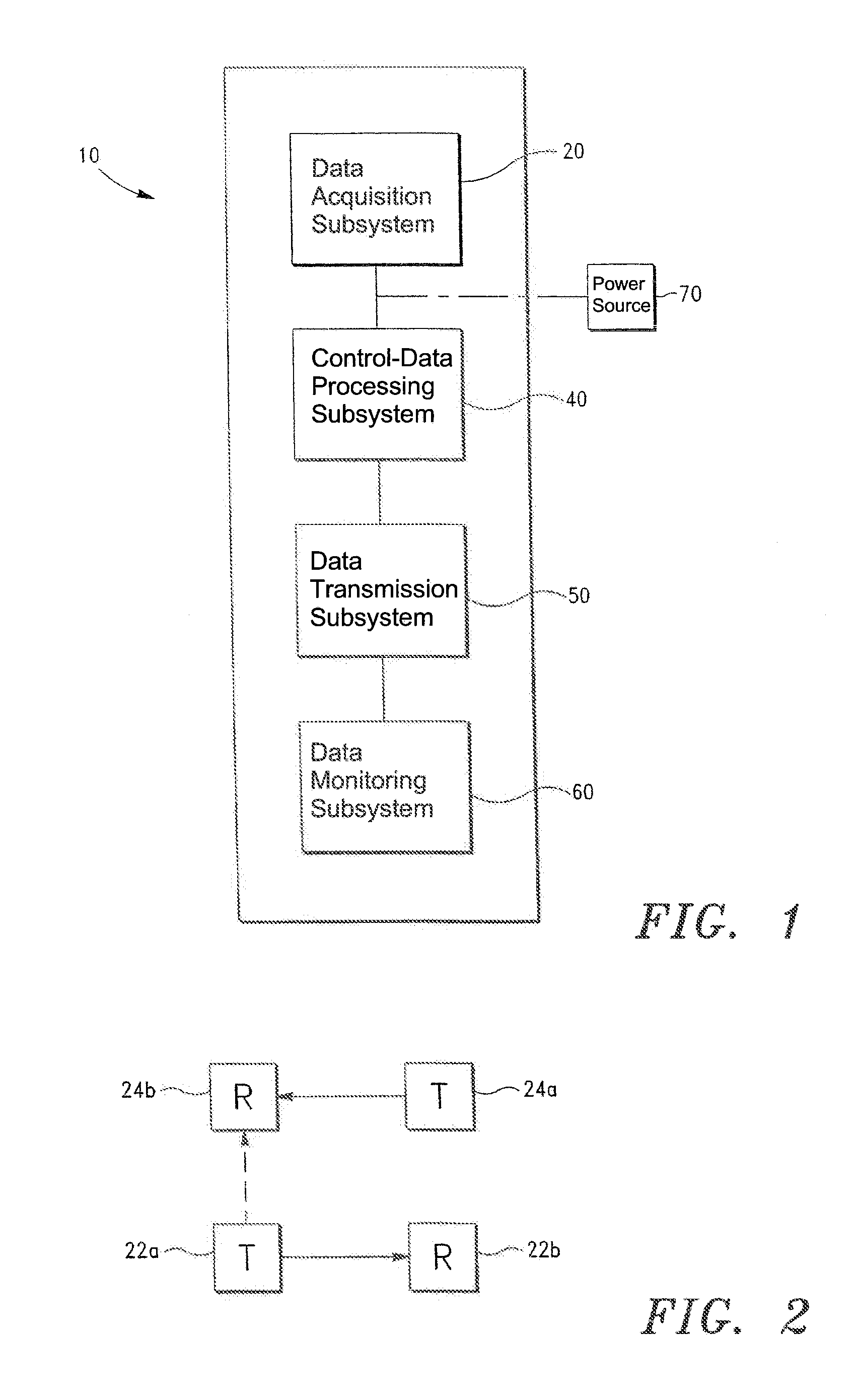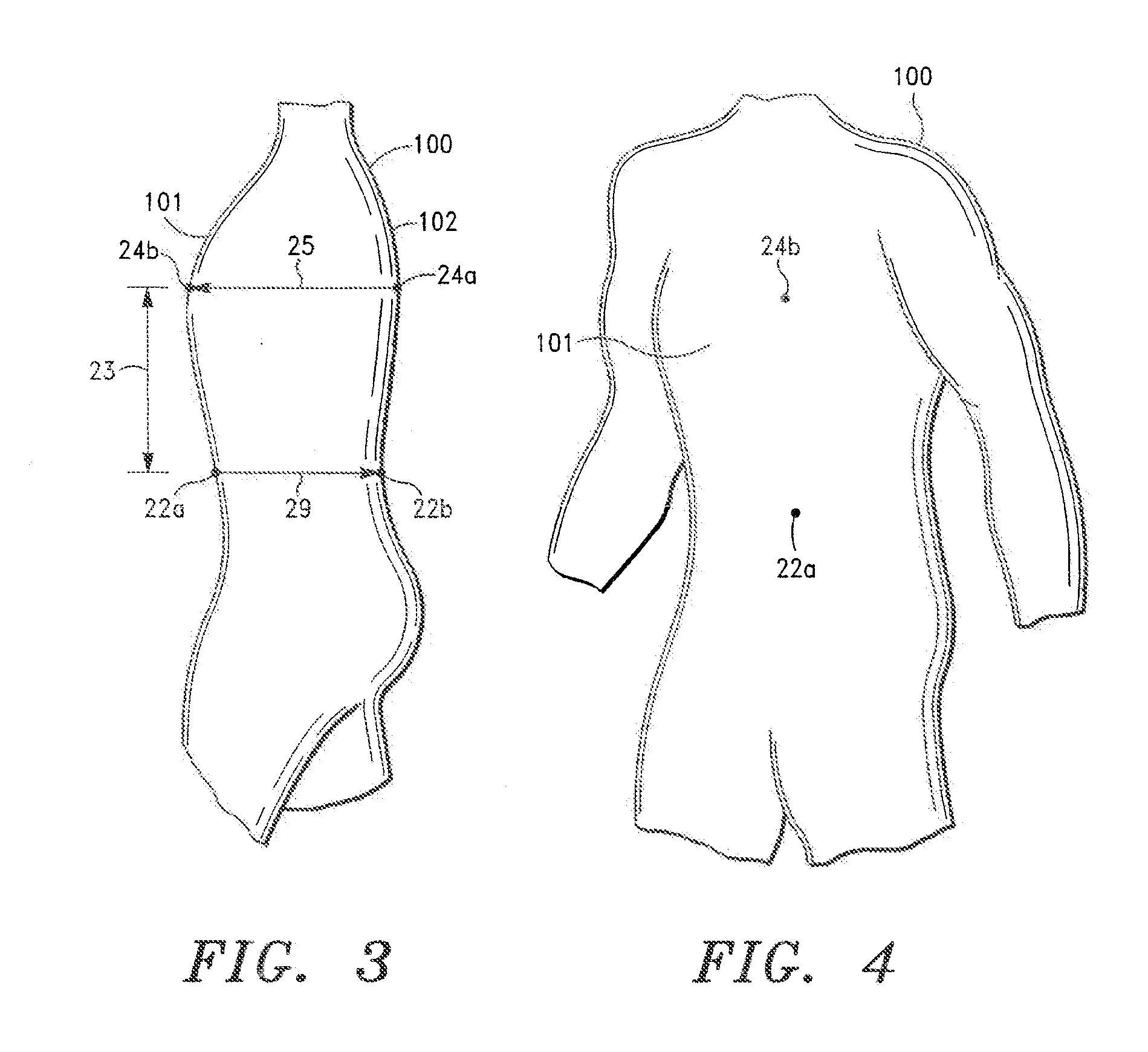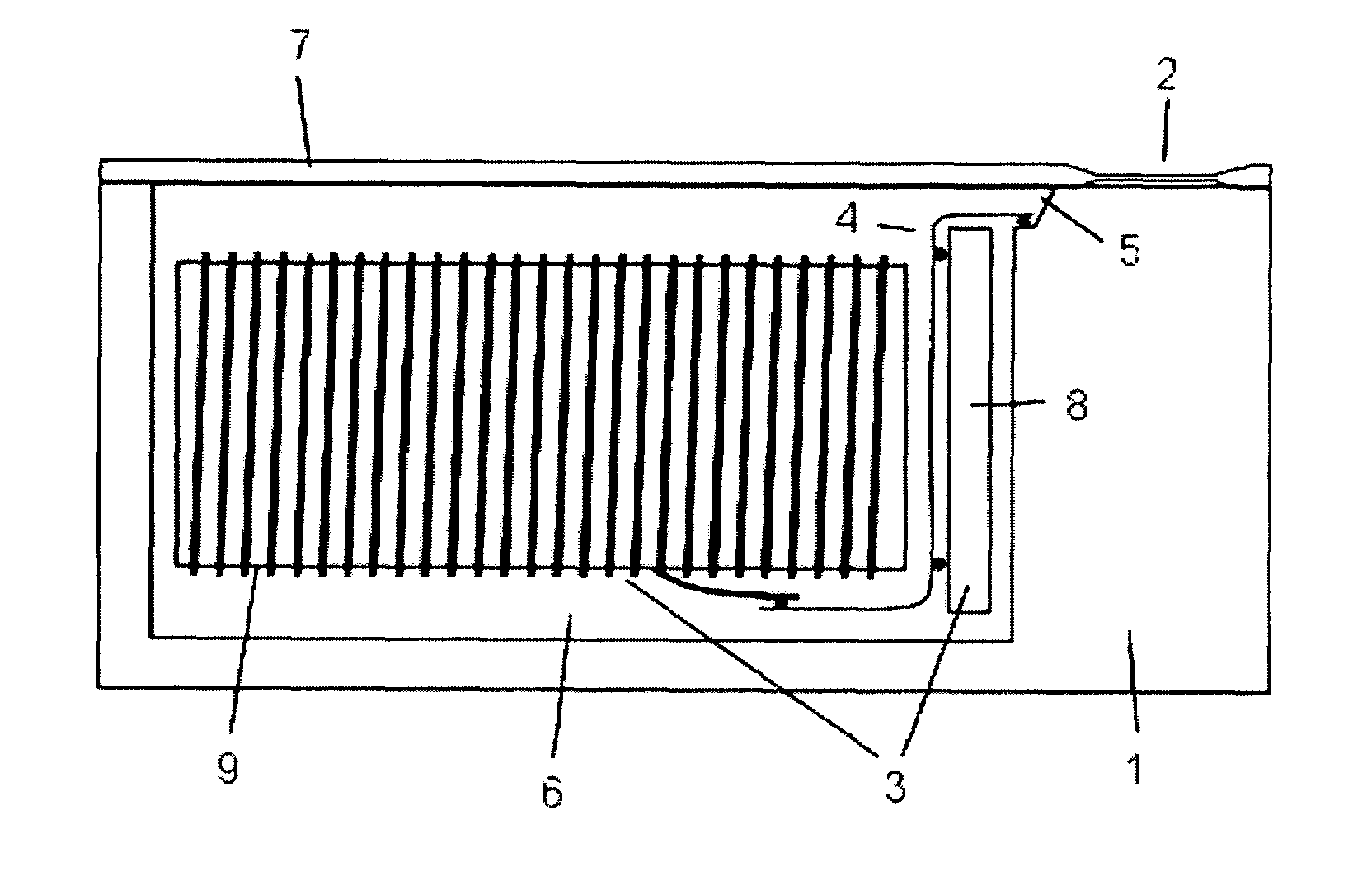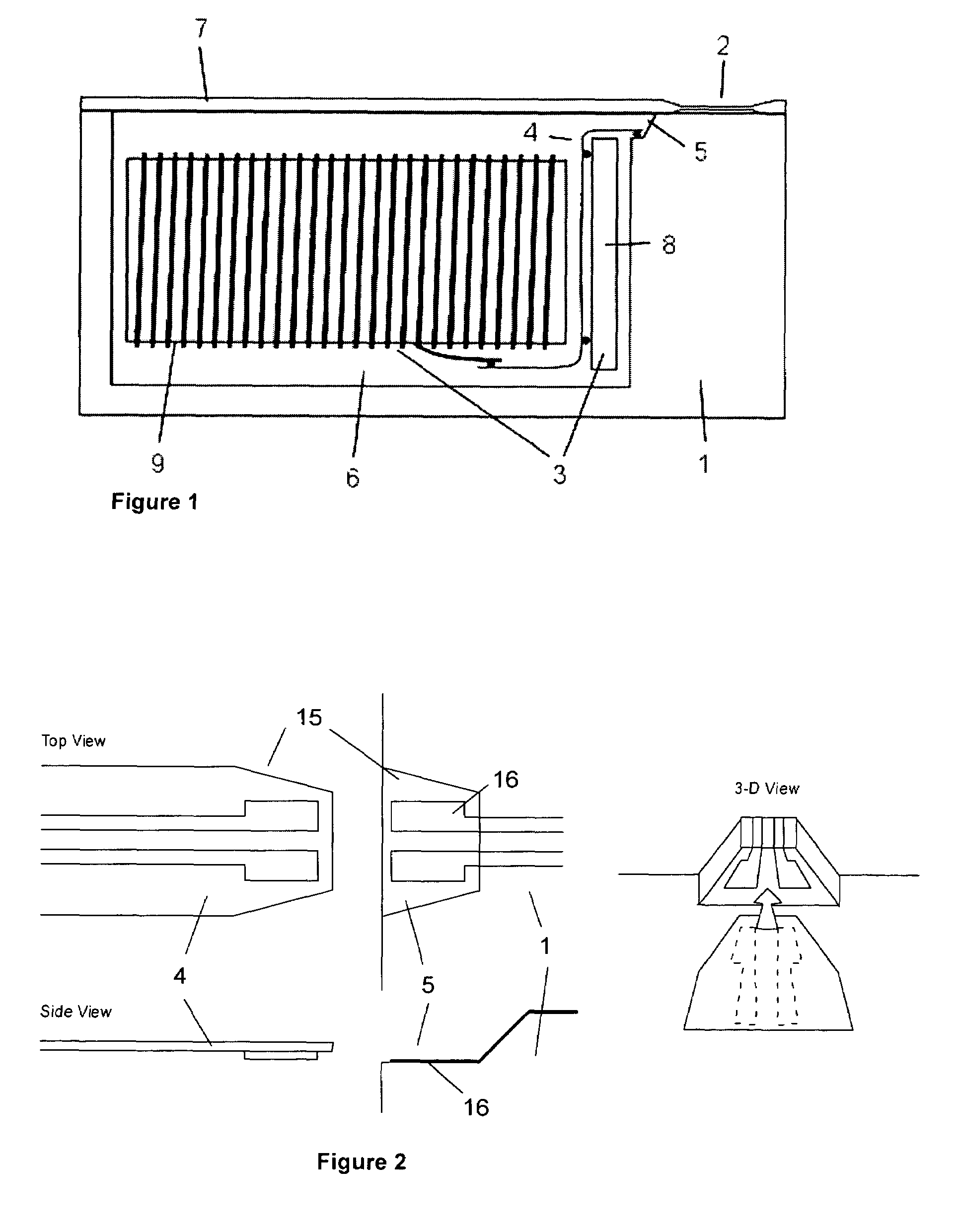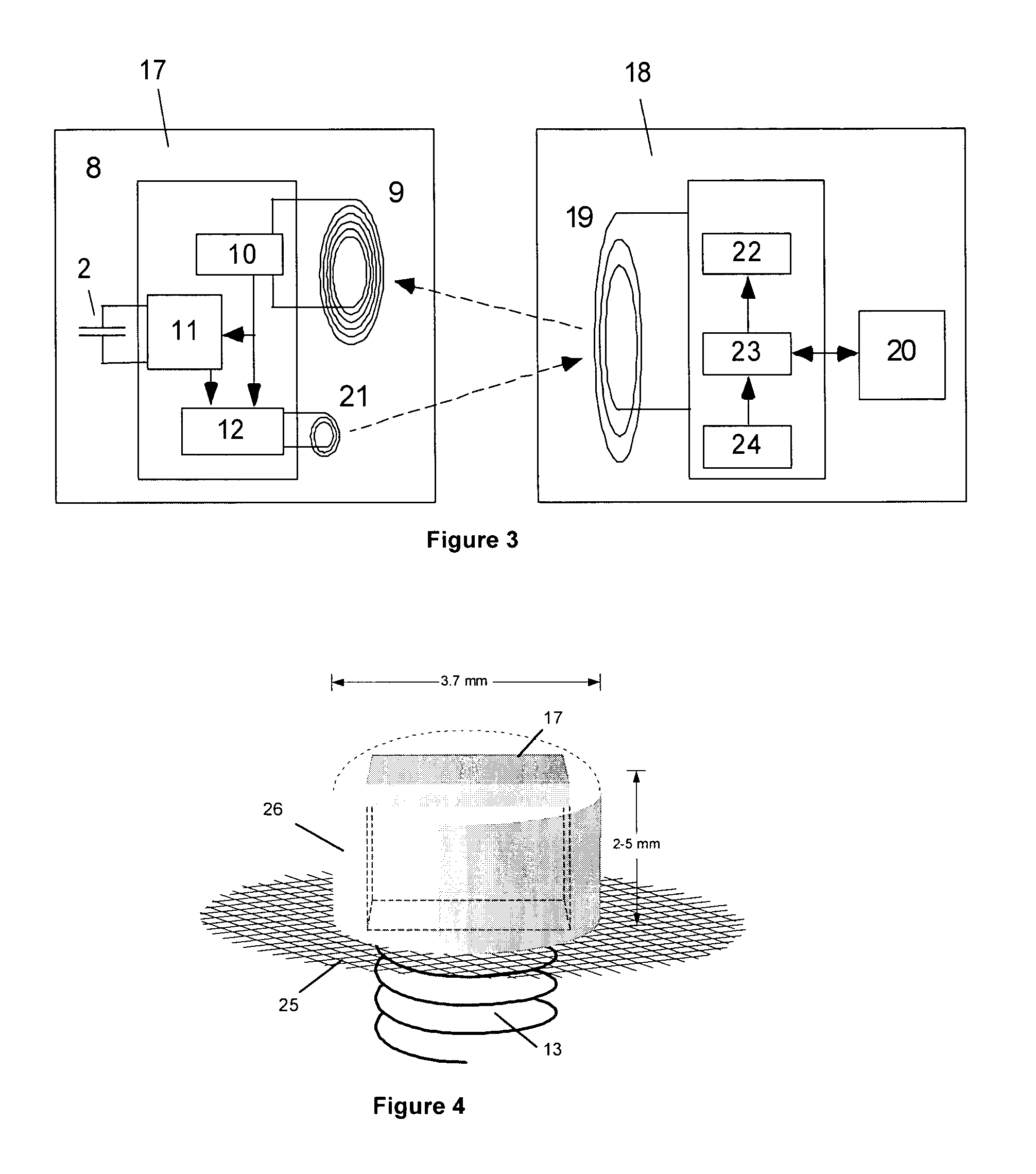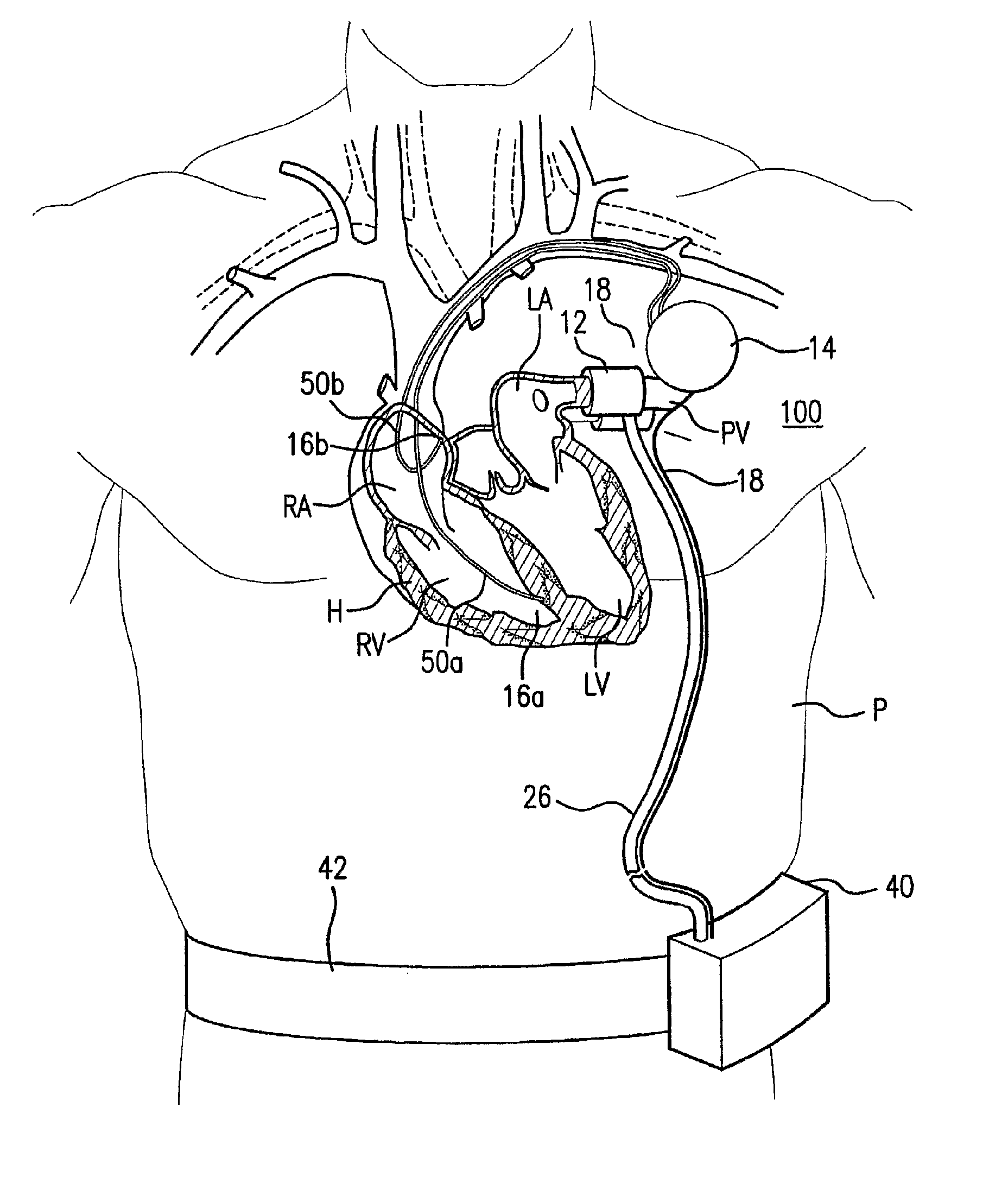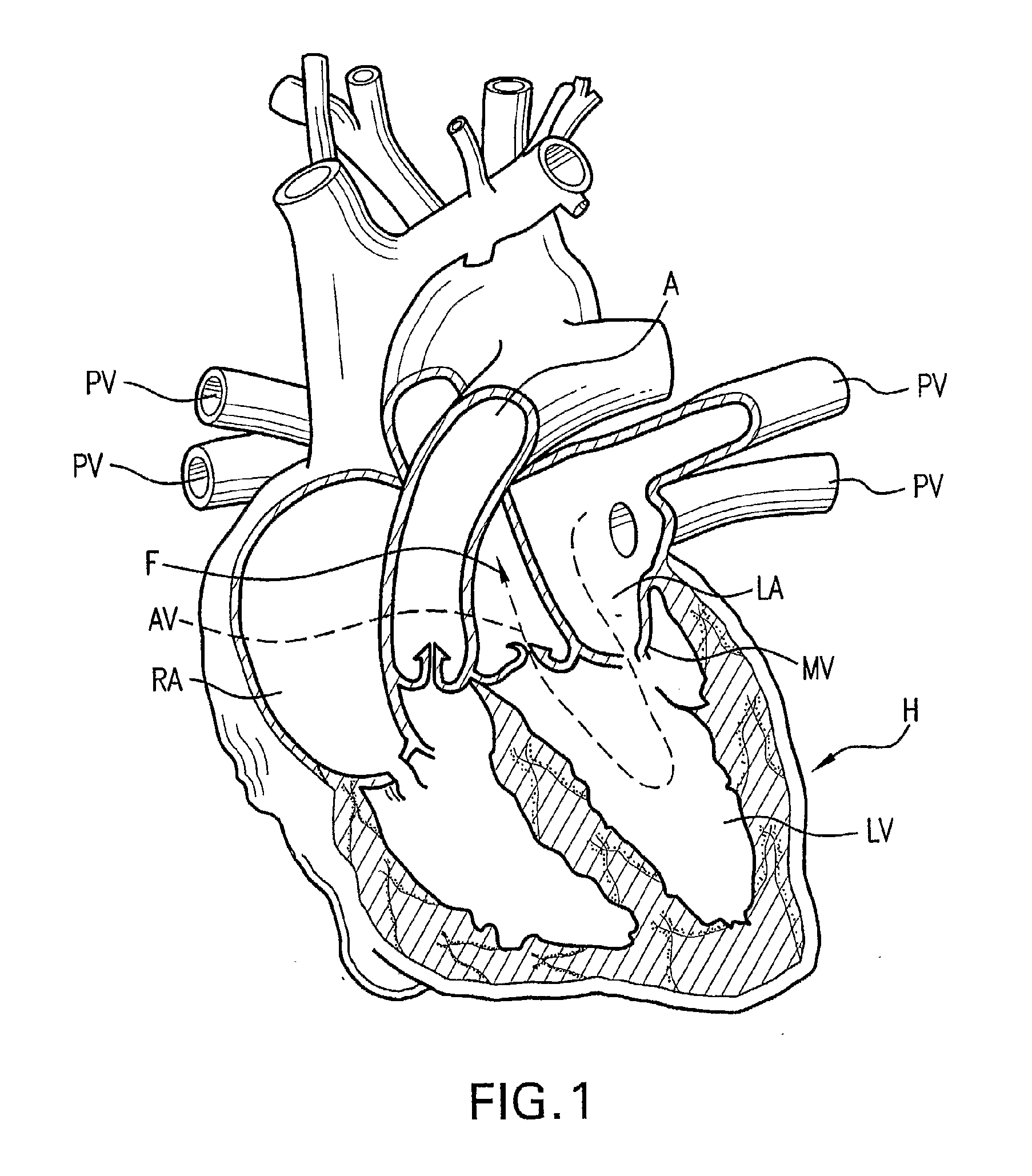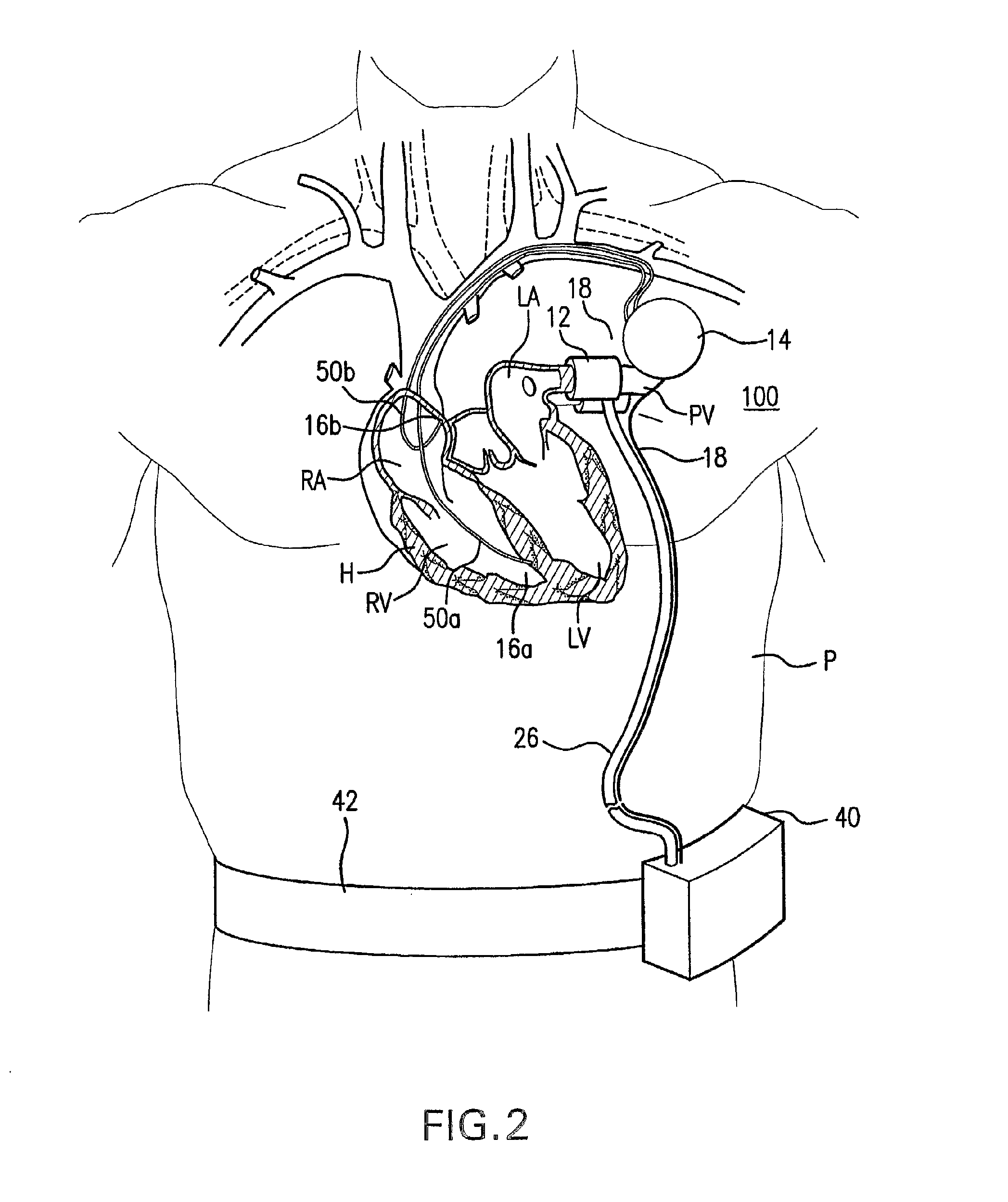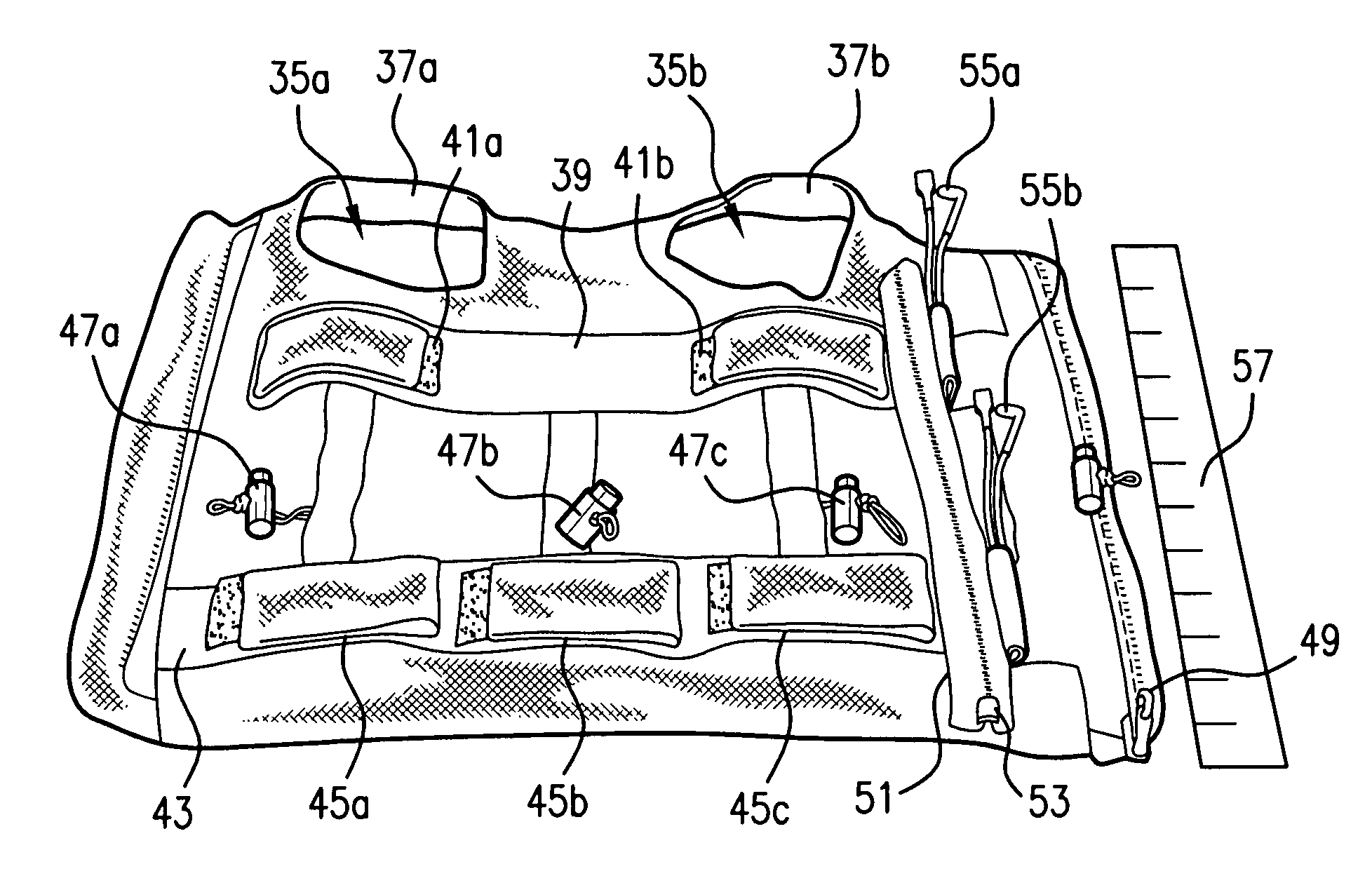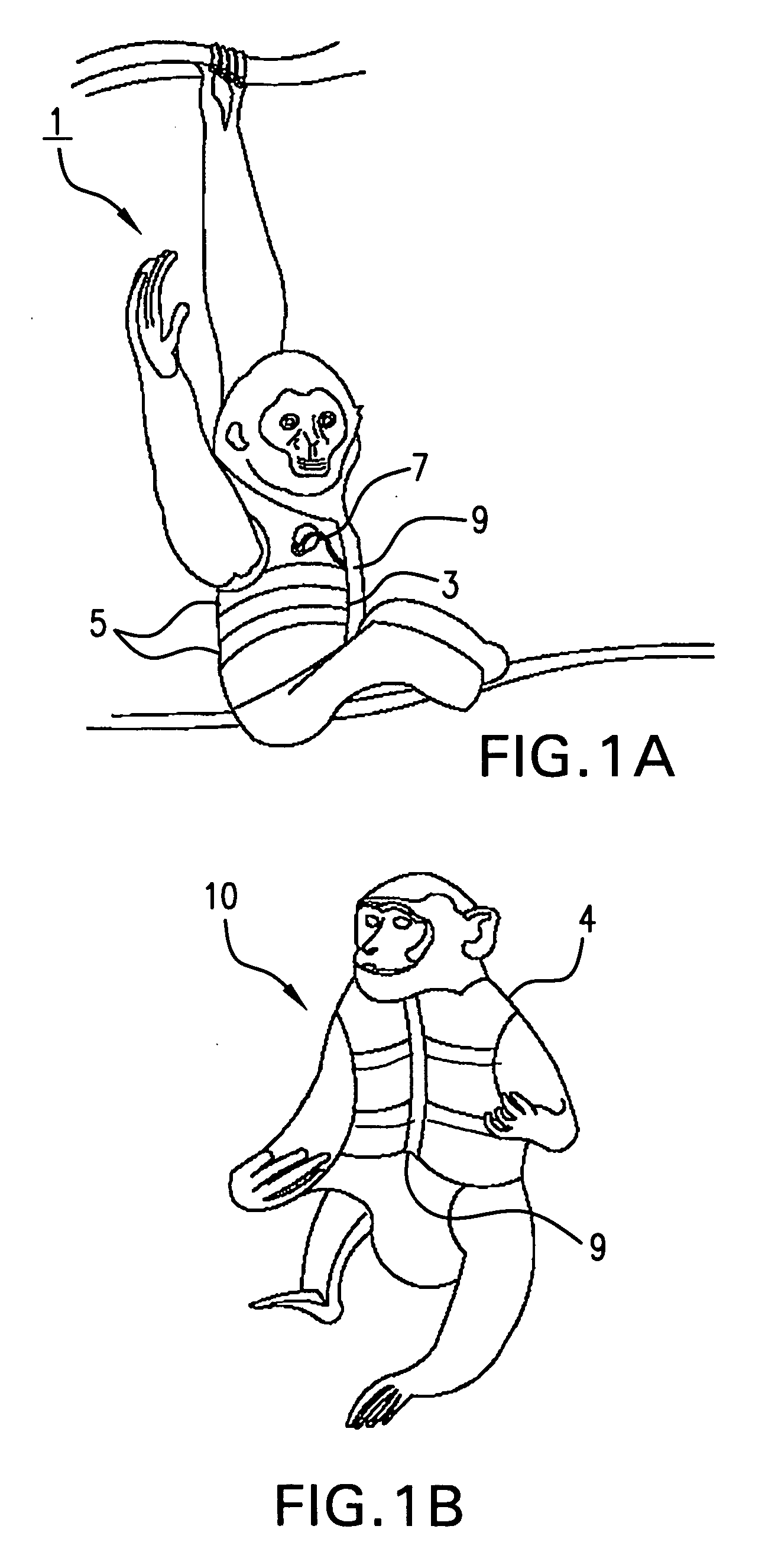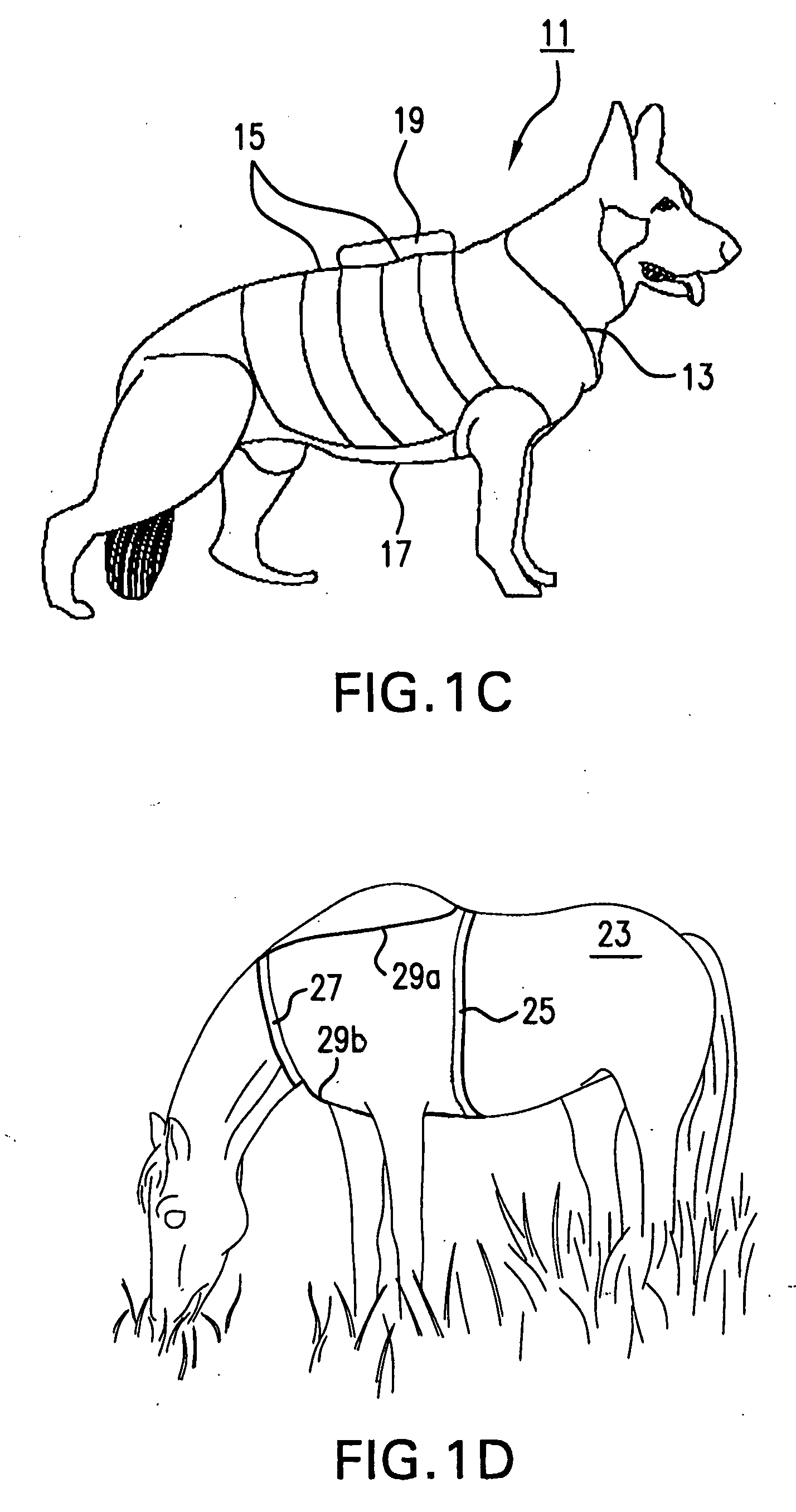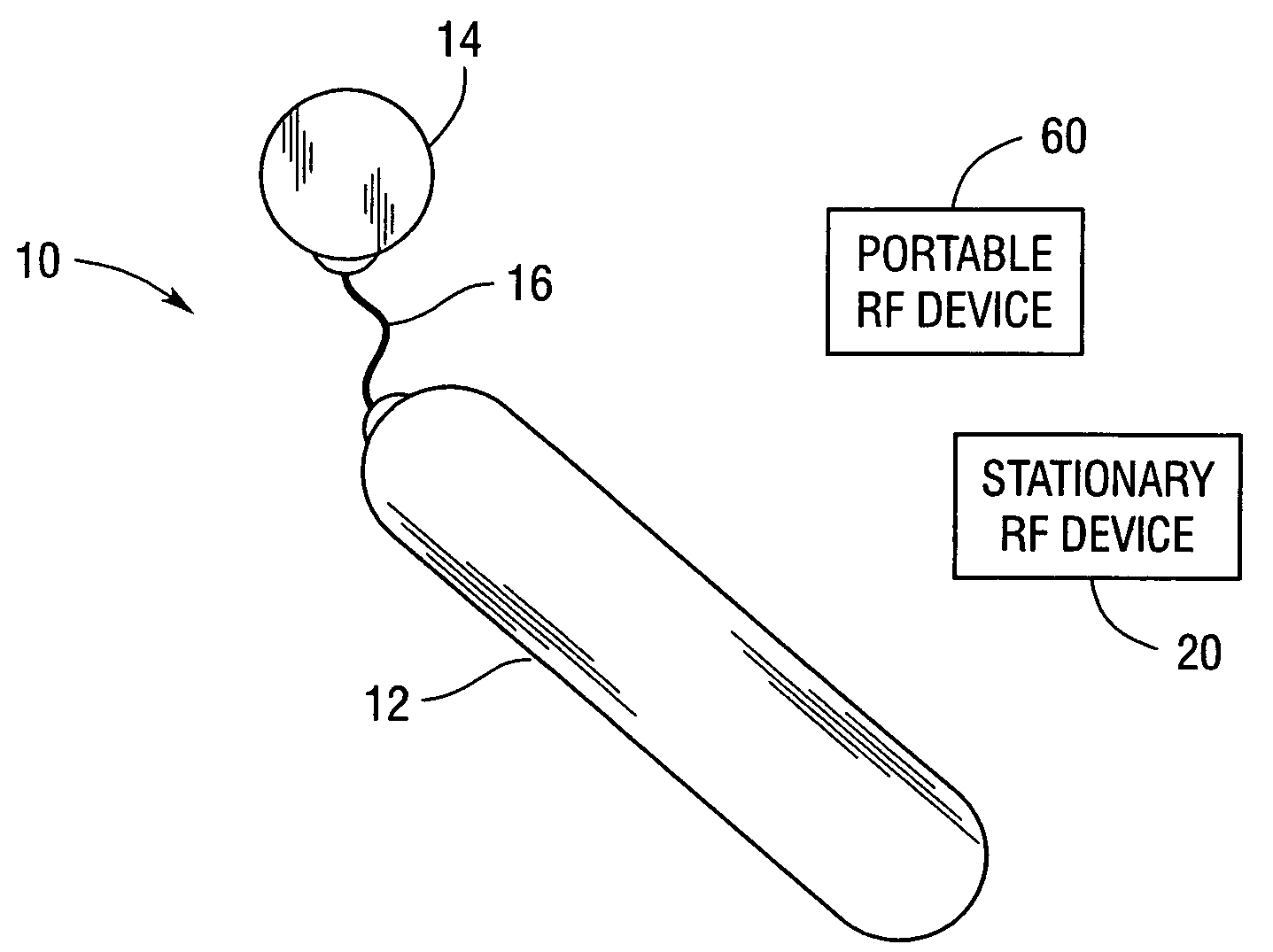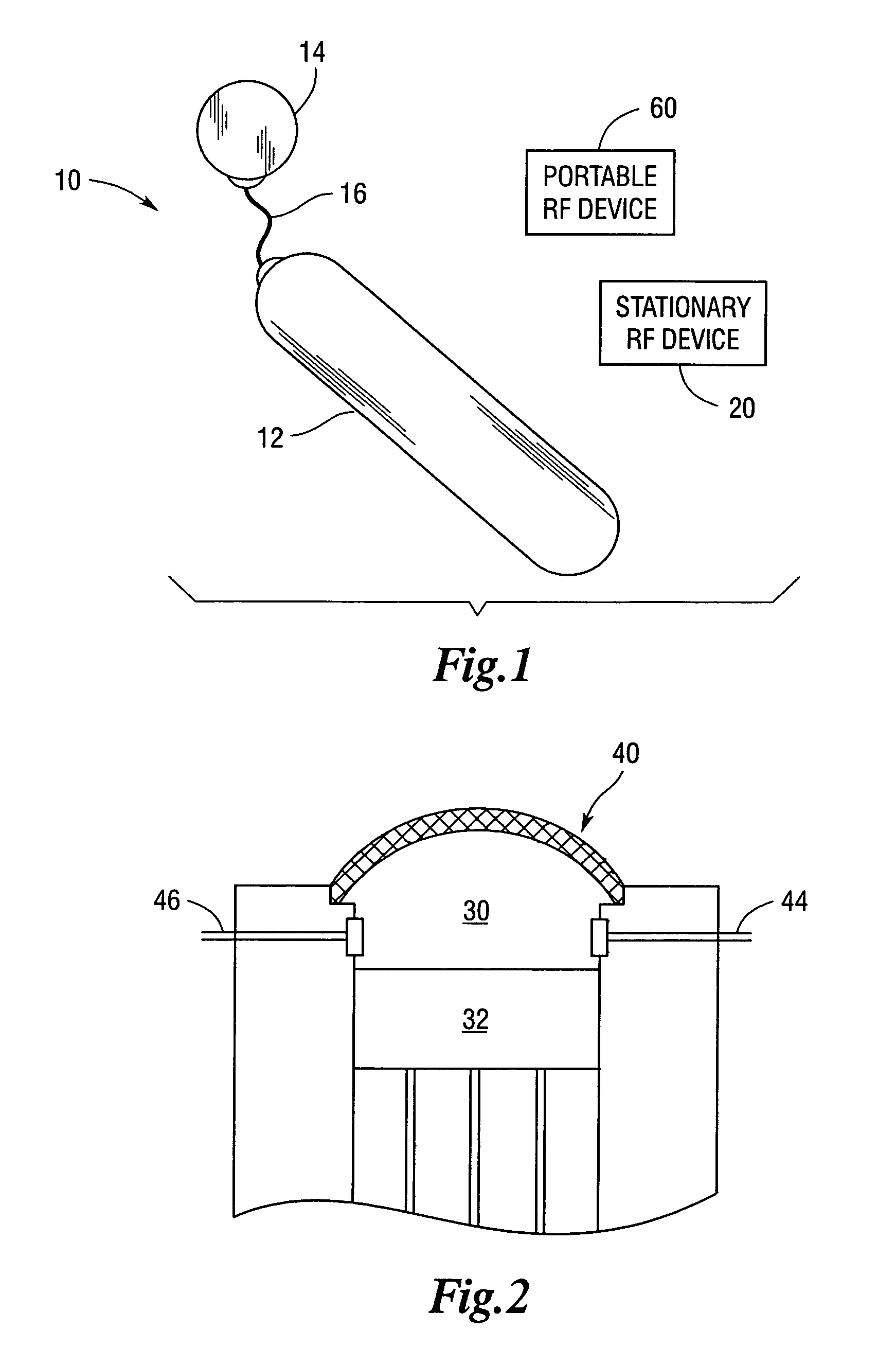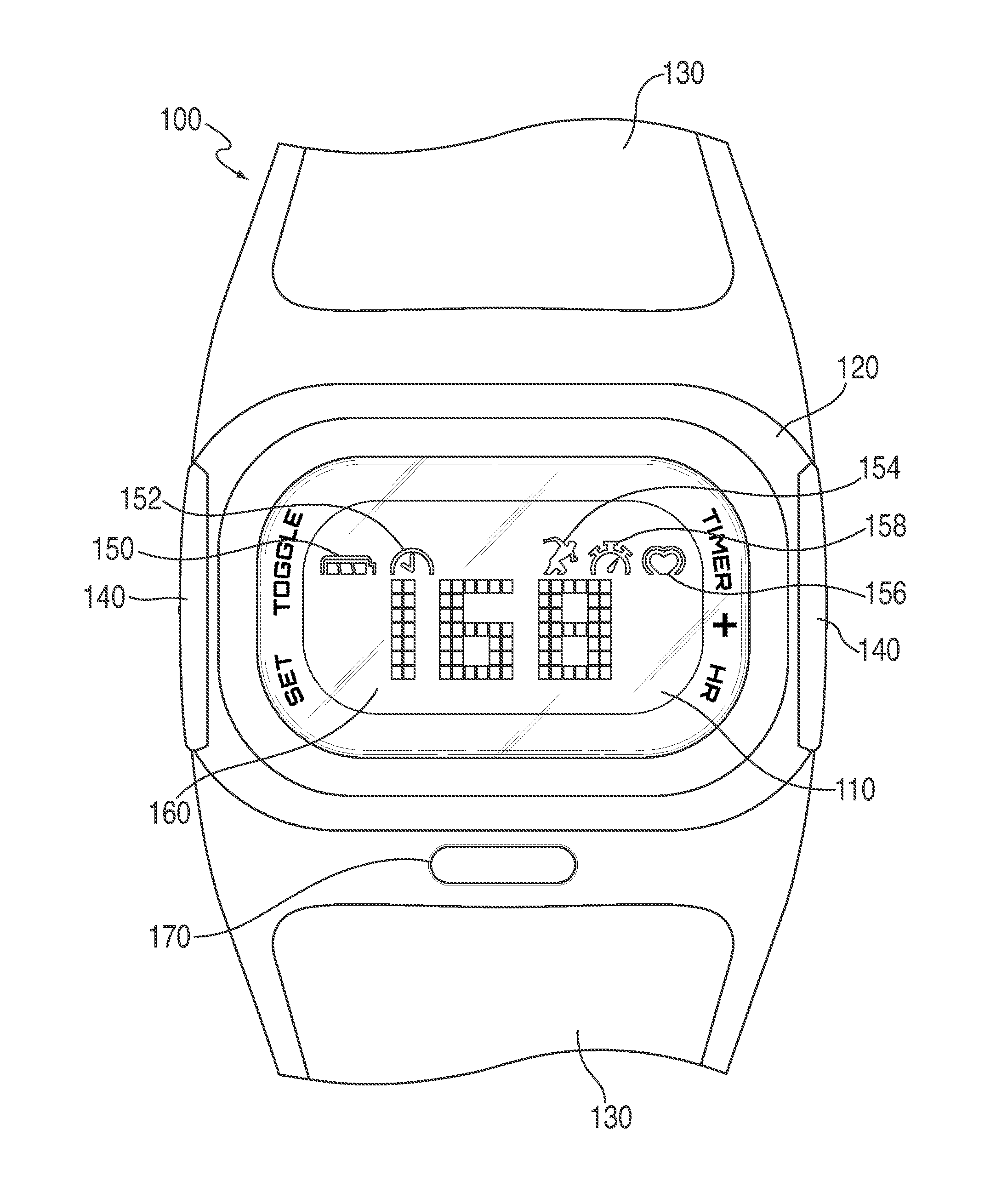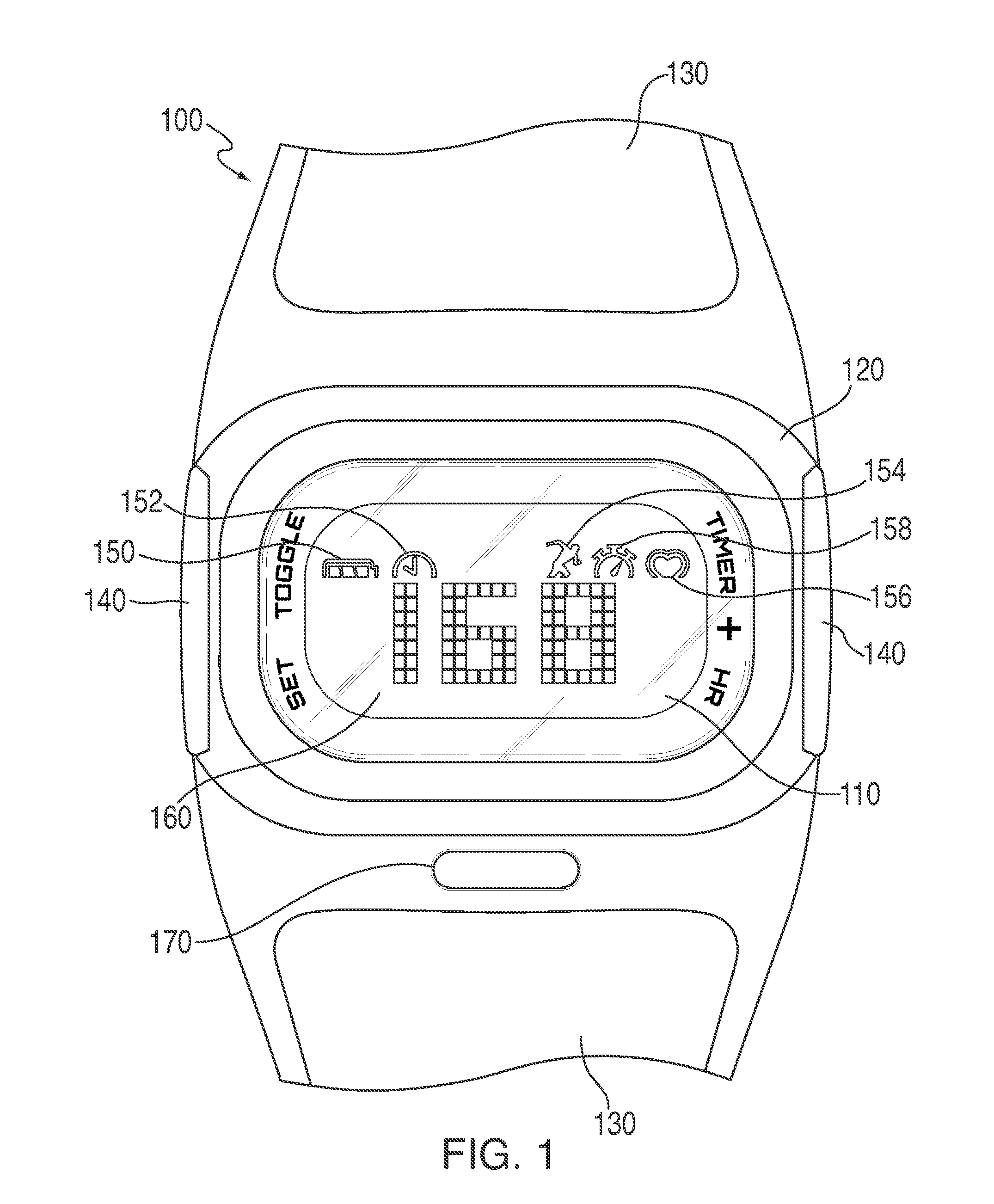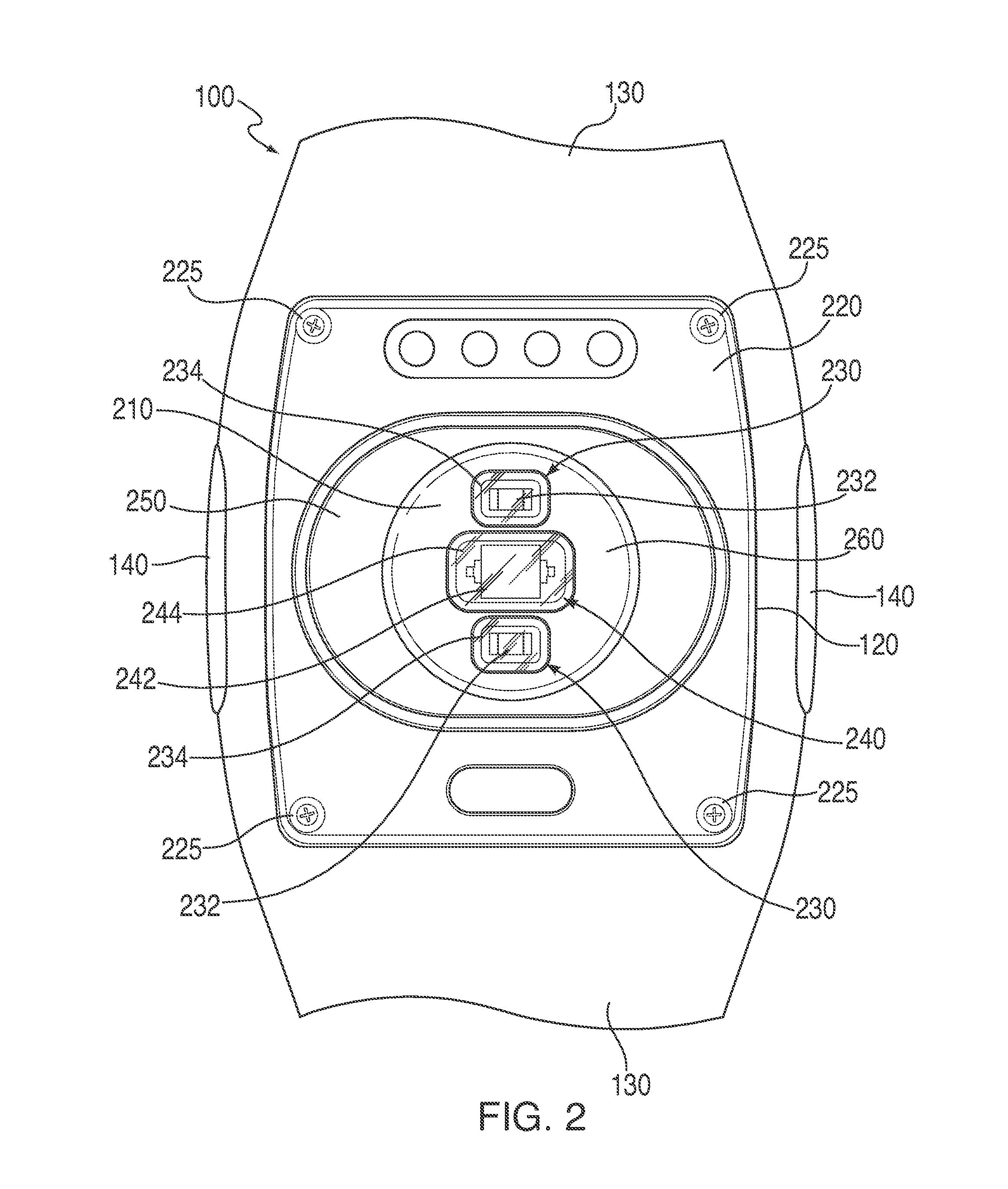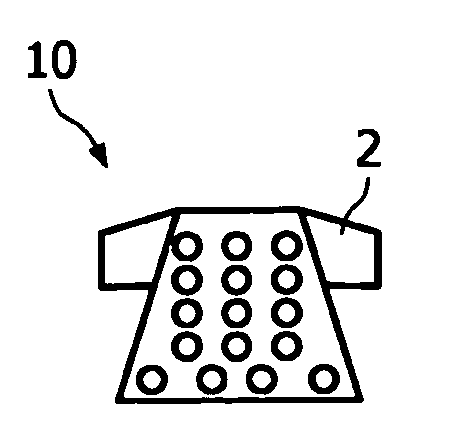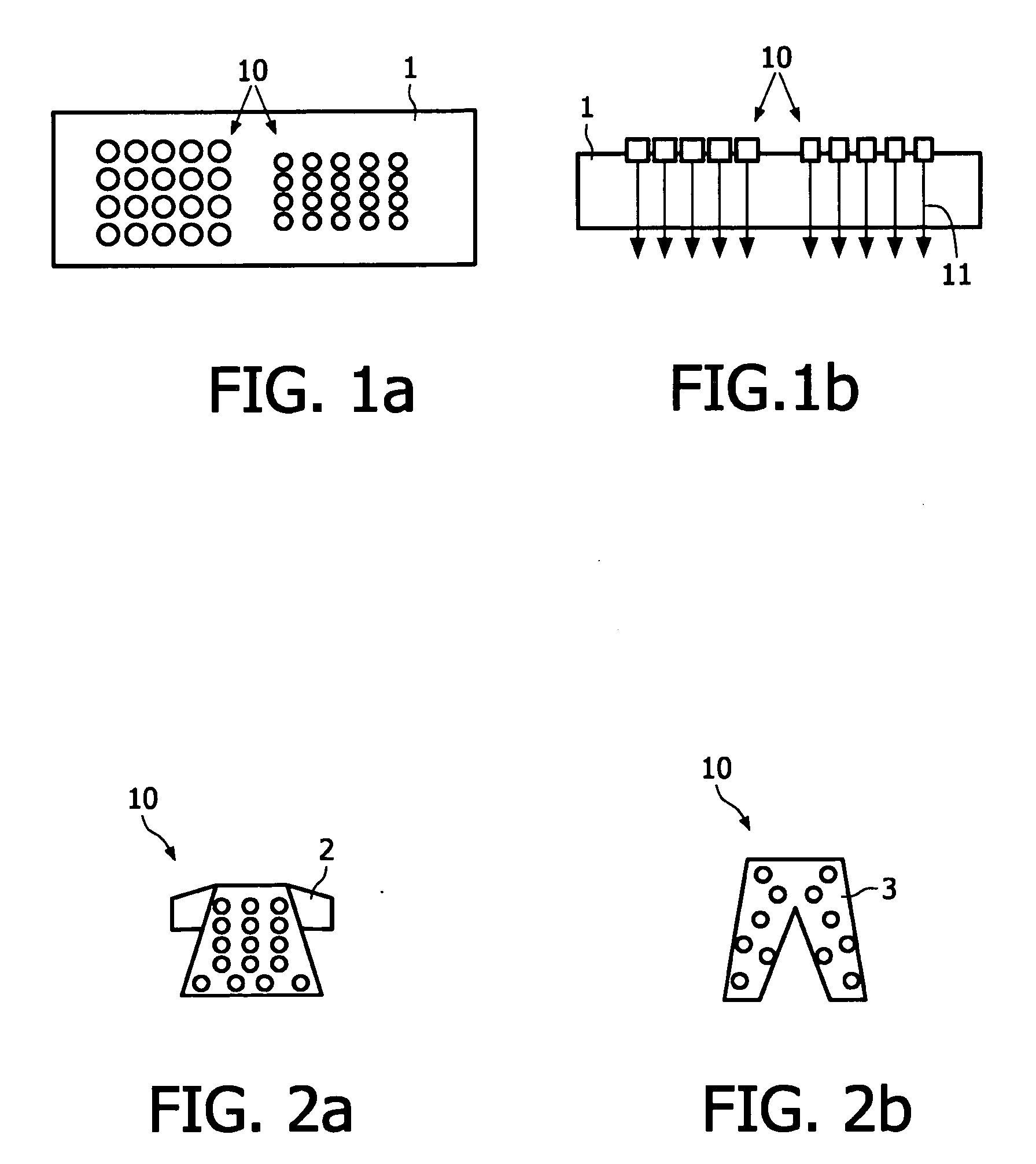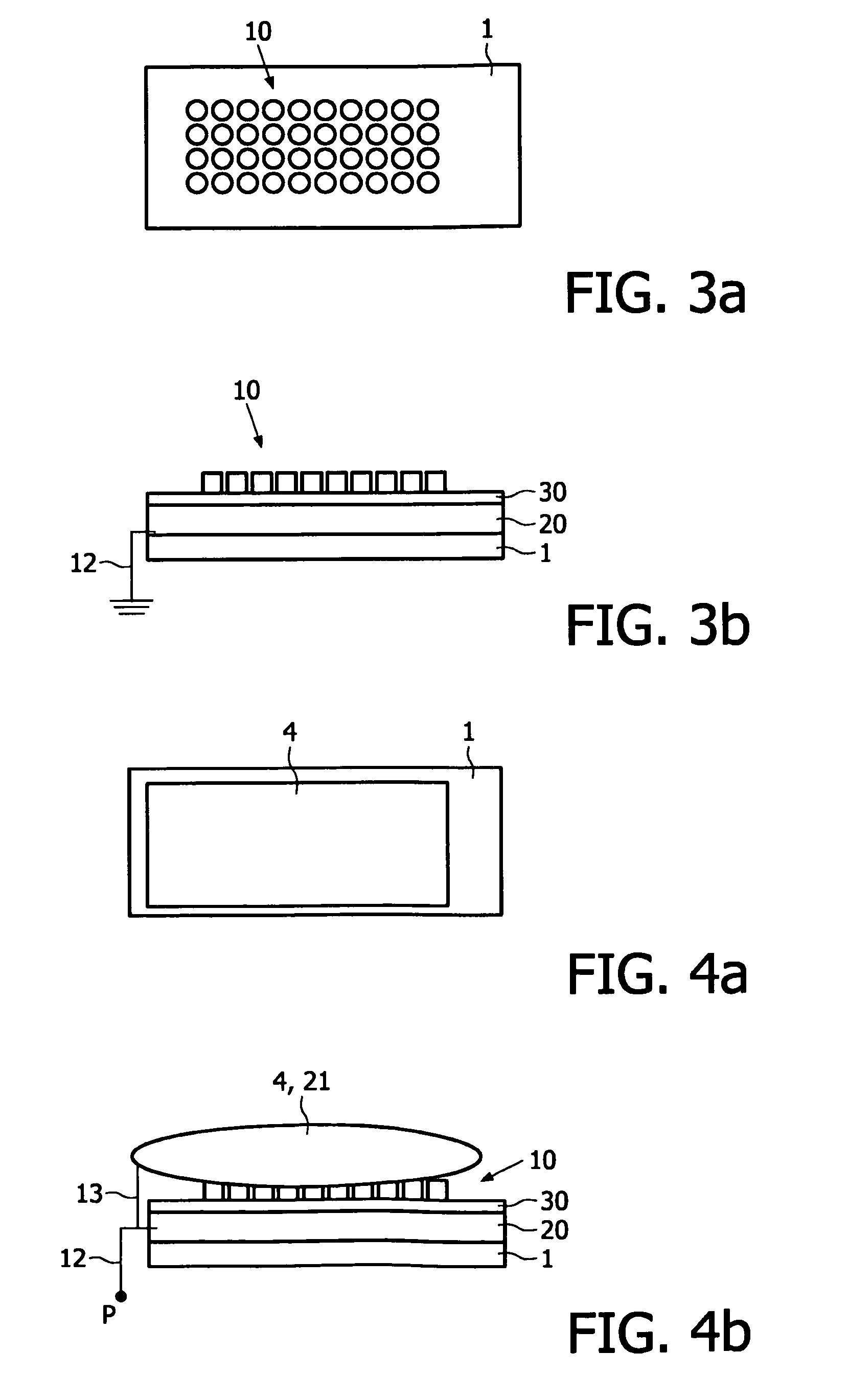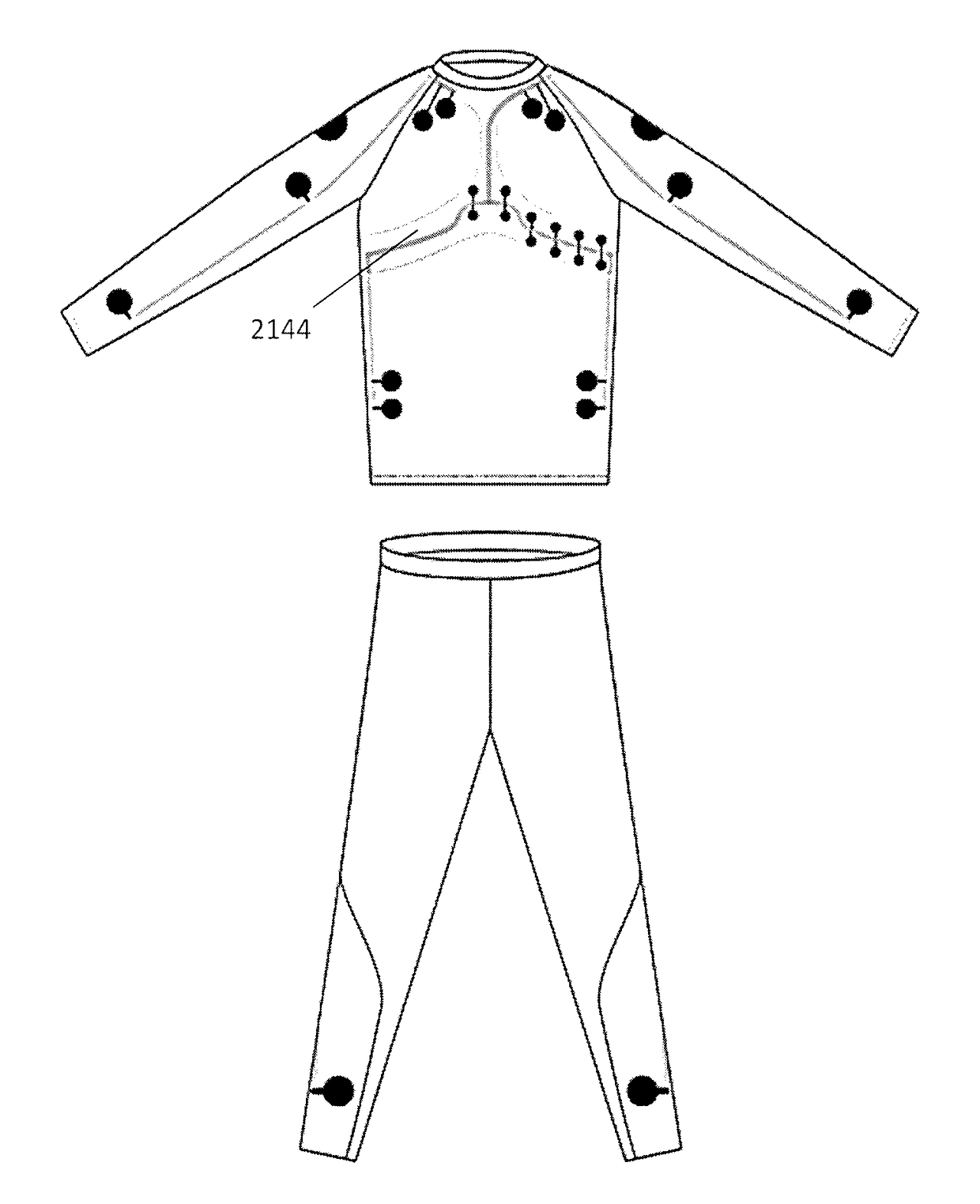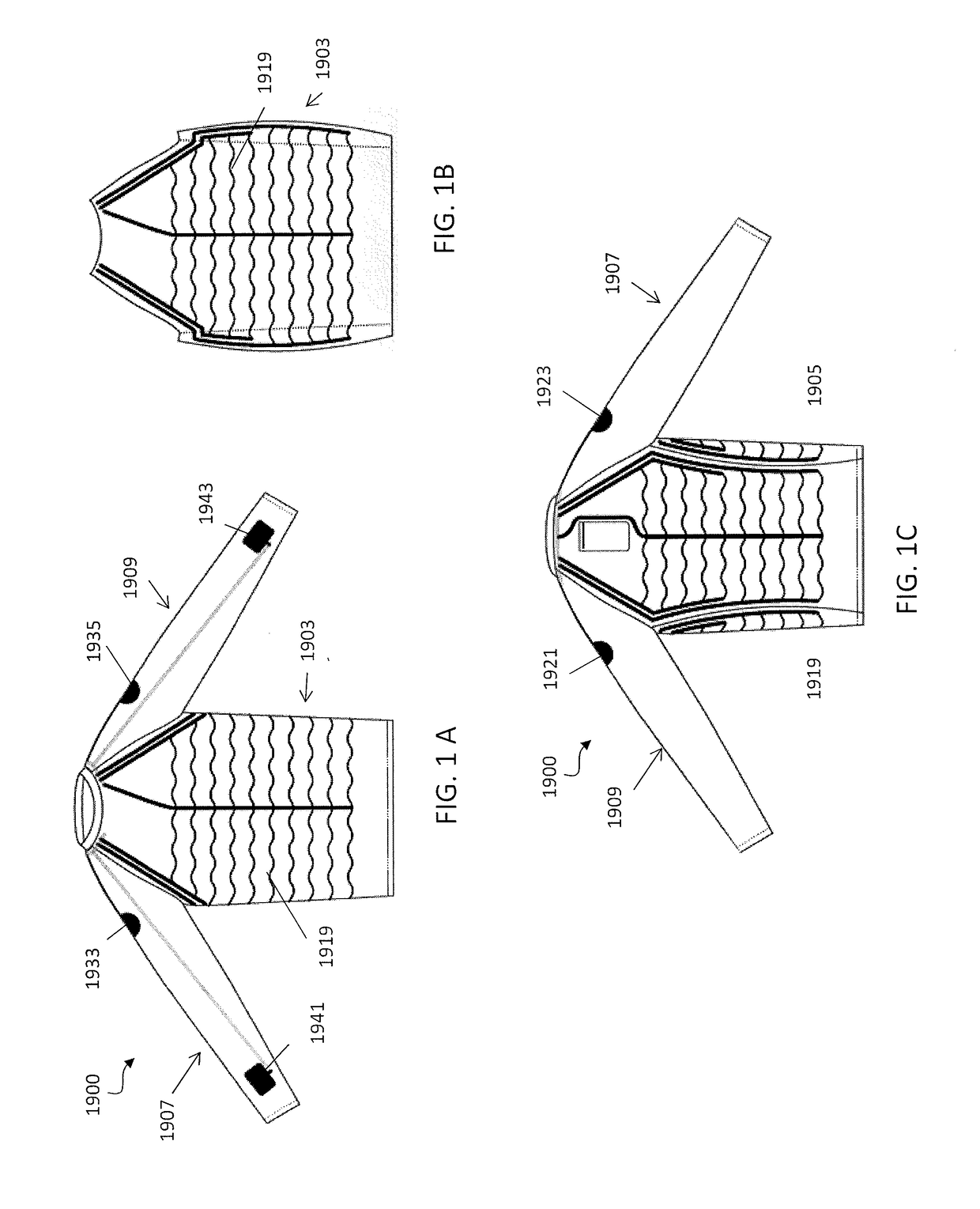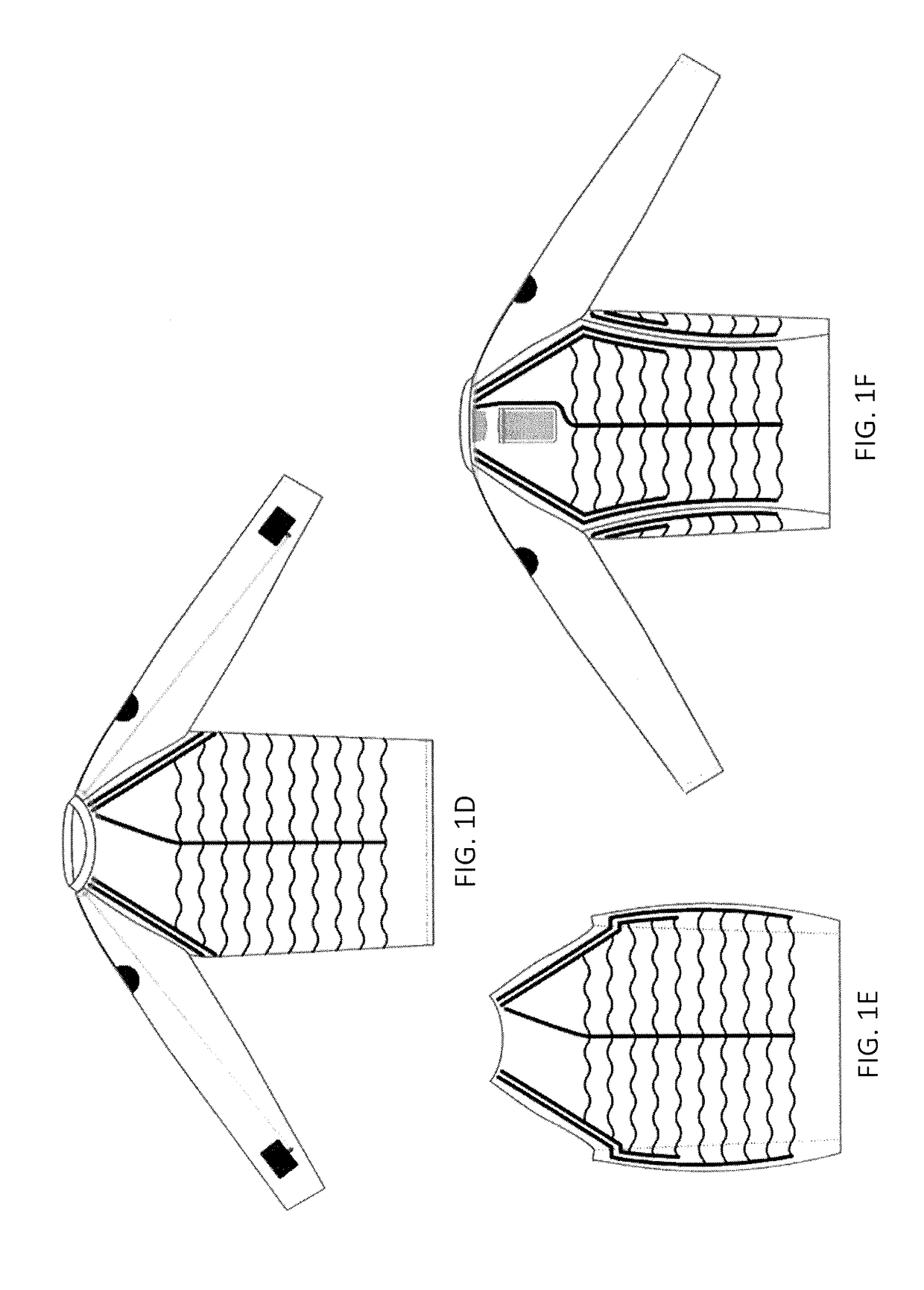Patents
Literature
170 results about "Monitoring physiological parameters" patented technology
Efficacy Topic
Property
Owner
Technical Advancement
Application Domain
Technology Topic
Technology Field Word
Patent Country/Region
Patent Type
Patent Status
Application Year
Inventor
Monitoring physiological parameters based on variations in a photoplethysmographic signal
InactiveUS7001337B2Fast and robust and computationally efficientRobust processingEvaluation of blood vesselsCatheterNervous systemRR interval
A method and apparatus are disclosed for using photoplethysmography to obtain physiological parameter information related to respiration rate, heart rate, heart rate variability, blood volume variability and / or the autonomic nervous system. In one implementation, the process involves obtaining (2502) a pleth, filtering (2504) the pleth to remove unwanted components, identifying (2506) a signal component of interest, monitoring (2508) blood pressure changes, monitoring (2510) heart rate, and performing (2512) an analysis of the blood pressure signal to the heart rate signal to identify a relationship associated with the component of interest. Based on this relationship, the component of interest may be identified (2514) as relating to the respiration or Mayer Wave. If it is related to the respiration wave (2516), a respiratory parameter such as breathing rate may be determined (2520). Otherwise, a Mayer Wave analysis (2518) may be performed to obtain parameter information related to the autonomic nervous system.
Owner:DATEX OHMEDA
Method and anchor for medical implant placement, and method of anchor manufacture
ActiveUS20050065589A1Transvascular endocardial electrodesCatheterDistal portionMonitoring physiological parameters
An anchor and procedure for placing a medical implant, such as for monitoring physiological parameters. The anchor includes a central body in which a medical implant can be received. arms and members extend radially from first and second ends, respectively, of the central body. Each member defines a leg extending toward distal portions of the arms to provide a clamping action. The anchor and its implant are placed by coupling first and second guidewires to first and second portions of the anchor, placing an end of a delivery catheter in a wall where implantation is desired, inserting the anchor in the catheter with the guidewires to locate the anchor within the wall, deploying the arms of the anchor at one side of the wall followed by deployment of the members at the opposite side of the wall, and thereafter decoupling the guidewires from the anchor.
Owner:UIM PRESSURE IMPLANT INC
Processing methods and apparatus for monitoring physiological parameters using physiological characteristics present within an auditory canal
Methods and apparatus for monitoring at least one physiological parameter of an animal from one or more physiological characteristics present within an auditory canal of the animal. Physiological parameters are measured by sensing at least one physiological characteristic present within the auditory canal of the animal, the at least one physiological characteristic associated with a physiological parameter, and processing the at least one sensed physiological characteristic at a device positioned remotely from the auditory canal to determine the physiological parameter.
Owner:SARNOFF CORP
Apparatus and method for monitoring for disordered breathing
ActiveUS20050119711A1Increased computational burdenElectrotherapyCatheterSleep disordered breathingCheyne-stokes breathing
The present invention relates to a device and method for monitoring for sleep disordered breathing or other types of disordered breathing such as Cheyne-Stokes breathing. More specifically, a device and method for detecting disordered breathing is provided that monitors a physiological parameter, which becomes cyclical due to apnea-hyperpnea (or arousal) alternation and provides the basis for the determination of a number of breathing disorder metrics.
Owner:MEDTRONIC INC
System method and device for monitoring physiological parameters of a person
Provided is a system, method and portable device for monitoring physiological parameters of a person in the field.
Owner:ZEPHYR TECH CORP
Integrated mobile healthcare system for cardiac care
A distributed sensor based mobile / remote monitoring system for the management of various types of disease is disclosed. The system is capable of continuously monitoring a variety of parameters relating to the state of various diseases. The parameter monitoring can be continuous, periodic or episodic. A system to manage particular types of diseases can be defined by selecting appropriate parameters for that disease. A cardiac care product, based on the distributed sensor based mobile / remote monitoring system, is also disclosed. The product comprises a distributed sensor system including at least one patch for wirelessly monitoring a physiological parameter; and a biostrip for providing analysis of the blood of a person. The product further includes a mobile device for receiving signals from the distributed sensor system. The mobile device has one mechanism that includes a real-time wireless monitoring of the physiological parameter and a second mechanism that monitors the analysis of the blood.
Owner:HMICRO
Wearable auscultation system and method
Owner:MOTOROLA SOLUTIONS INC
Method for monitoring a physiologic parameter of patients with congestive heart failure
A method of monitoring physiological parameters for diagnosis and treatment of congestive heart failure in a patient. The method includes implanting at least one sensing device in a cavity of the patient's cardiovascular system, preferably so that the sensing device passes through and is anchored to a septum of the heart and, to minimize the risk of thrombogenicity, a larger portion of the sensing device is located in the right side of the heart and a smaller portion of the sensing device is located in the left side of the heart. Electromagnetic telecommunication and / or wireless powering of the sensing device is performed with an external readout device. The method can be used to perform effective monitoring, management, and tailoring of treatments for patients suffering from congestive heart failure, as well as many other diseases.
Owner:UIM PRESSURE IMPLANT INC
Method and apparatus for maintaining and monitoring sleep quality during therapeutic treatments
ActiveUS20050217674A1Reduce or eliminate both sleep breathing disorders and sleep fragmentationRespiratorsElectrocardiographyAutonomous breathingTherapeutic Devices
The present invention monitors and interprets physiological signals and spontaneous breathing events to detect the onset of arousal. Once the onset of arousal is determined, the present invention determines adjustments that are needed in the operation of a therapeutic device to avoid or minimize arousals. In one embodiment, the present invention includes one or more sensors which detect a patient's physiological parameters, a controller which monitors and determines the onset of arousal based on the physiological variables received from the sensor, and a therapeutic treatment device which is controlled by the controller. The sensor can be a combination of one or more devices which are able to monitor a physiological parameter that is used by the present invention to determine the onset of arousal or the onset of a sleep disorder. The sensors can be integrated into one unit or may operate independent of the others.
Owner:COMPUMEDICS
Apparatus and method for monitoring physiological parameters using electrical measurements
A system for monitoring a physiological parameter comprises a substrate, a pair of drive electrodes, a pair of detection electrodes, and an RFID apparatus. The substrate is arranged to be removably securable to a biological organism. At least the pair of drive electrodes or the pair of detection electrodes is secured to the substrate. The RFID apparatus is arranged to be in electrical communication with at least the pair of drive electrodes or the pair of detection electrodes. Methods of using the device are also provided.
Owner:AVERY DENNISON CORP
Physiological monitoring garments
InactiveUS20150250420A1Stable and continuous positioningRobust detectionMicrophonesElectrical transducersPhysiological monitoringEngineering
Described herein are apparatuses (e.g., garments, including but not limited to shirts, pants, and the like) for detecting and monitoring physiological parameters, such as respiration, cardiac parameters, and the like.
Owner:L I F E
Methods and devices for analyzing and comparing physiological parameter measurements
Methods and devices that are capable of measuring physiological parameters of at least two contact points and determining whether the measured parameters reflect favorable or unfavorable physiological responses are disclosed herein. Specifically, the present invention encompasses a method that can non-invasively monitor physiological parameters of at least two contact points before and after a stimulus is applied to a subject and compare the measured parameters to determine whether the physiological state of the subject is favorable or unfavorable.
Owner:ZYTO CORP
Wireless device and system for monitoring physiologic parameters
ActiveUS20090182206A1Minimal invasionSmall sizeElectrotherapyCatheterMonitor blood pressureSignal conditioning
A system for monitoring blood pressure and other physiologic parameters is provided. The system is designed such that it can be delivered to the patient with ease and minimal invasion. The system contains at least one self contained implantable sensing device consisting of a sensor, an electrical circuit for signal conditioning and magnetic telemetry, a biocompatible outer surface and seal, an anchoring method, and an external readout device. The implant is small in size so that it may be delivered to the desired location and implanted using a catheter, although direct surgical implantation is also possible. The circuit, sensor, and antenna for telemetry are packaged together and sealed hermetically to the biologic environment. The larger readout unit remains outside the body but proximal to the implant for minimizing communication distance.
Owner:UIM PRESSURE IMPLANT INC
Delivery system, method, and anchor for medical implant placement
ActiveUS20070179583A1Transvascular endocardial electrodesSurgical needlesMonitoring physiological parametersBiomedical engineering
Owner:UIM PRESSURE IMPLANT INC
Anchor for medical implant placement and method of manufacture
ActiveUS7317951B2Transvascular endocardial electrodesCatheterDistal portionMonitoring physiological parameters
An anchor and procedure for placing a medical implant, such as for monitoring physiological parameters. The anchor includes a central body in which a medical implant can be received. Arms and members extend radially from first and second ends, respectively, of the central body. Each member defines a leg extending toward distal portions of the arms to provide a clamping action. The anchor and its implant are placed by coupling first and second guidewires to first and second portions of the anchor, placing an end of a delivery catheter in a wall where implantation is desired, inserting the anchor in the catheter with the guidewires to locate the anchor within the wall, deploying the arms of the anchor at one side of the wall followed by deployment of the members at the opposite side of the wall, and thereafter decoupling the guidewires from the anchor.
Owner:UIM PRESSURE IMPLANT INC
Noninvasive Method And System For Monitoring Physiological Characteristics And Athletic Performance
InactiveUS20110130643A1Easy to monitorPhysical therapies and activitiesElectroencephalographyExercise performanceChest region
A physiological monitoring system for noninvasively monitoring physiological parameters of a subject, comprising a fitness monitoring system for monitoring physiological parameters of a subject engaged in a physical activity, in accordance with one embodiment of the invention, includes (i) a monitoring garment adapted to cover at least a portion of a subject's torso, (ii) a magnetometer subsystem including a first magnetometer and a second magnetometer, wherein the first and second magnetometers are responsive to changes in distance therebetween, wherein the magnetometer subsystem is configured to generate and transmit a signal representative of a change in the distance between the first and second magnetometers, wherein the first and second magnetometers are incorporated into the monitoring garment, and wherein the first and second magnetometers are proximate to the subject's chest region when the monitoring garment is worn by the subject.
Owner:ADIDAS
Apparatus and method for monitoring for disordered breathing
ActiveUS7438686B2Increased computational burdenElectrotherapyCatheterSleep disordered breathingCheyne–Stokes respiration
The present invention relates to a device and method for monitoring for sleep disordered breathing or other types of disordered breathing such as Cheyne-Stokes breathing. More specifically, a device and method for detecting disordered breathing is provided that monitors a physiological parameter, which becomes cyclical due to apnea-hyperpnea (or arousal) alternation and provides the basis for the determination of a number of breathing disorder metrics.
Owner:MEDTRONIC INC
Medical device for tissue ablation
A medical device for ablating tissues within a heart chamber comprising a first guiding member intended to be introduced in the hollow structure surrounding the left atrium of the patient and a second ablating member comprising an ablation electrode mounted at the distal end or tip of catheter. Both, the head of the guiding member and the tip of the ablating member are magnetised and can enter into magnetic coupling when their distal ends are brought in close contact. Once the magnetic coupling is achieved, the tip of the first member is guided by moving the guiding member. Preferably, the guiding member includes sensors enabling to monitor physiological parameters during the intervention.
Owner:MAESTROHEART
Physiological monitoring garments
ActiveUS20190132948A1Improve adhesionGood compatibilityPhysical therapies and activitiesBioelectric signal measurementAdhesivePhysiological monitoring
Described herein are apparatuses (e.g., garments, including but not limited to shirts, pants, and the like) for detecting and monitoring physiological parameters, such as respiration, cardiac parameters, and the like. Also described herein are methods of forming garments having one or more stretchable conductive ink patterns and methods of making garments having one or more highly stretchable conductive ink pattern formed of a composite of an insulative adhesive, a conductive ink, and an intermediate gradient zone between the adhesive and conductive ink. The conductive ink typically includes between about 40-60% conductive particles, between about 30-50% binder; between about 3-7% solvent; and between about 3-7% thickener. The stretchable conductive ink patterns may be stretched more than twice their length without breaking or rupturing.
Owner:L I F E
Monitoring physiological parameters based on variations in a photoplethysmographic baseline signal
InactiveUS6896661B2Function increaseReduce the amount requiredCatheterRespiratory organ evaluationNervous systemMedicine
A method and apparatus are disclosed for using photoplethysmography to obtain physiological parameter information related to respiration or the autonomic nervous system. In one implementation, the process involves obtaining (602) a pleth, filtering (604) the pleth to remove unwanted components, identifying (606) a signal component of interest based on the filtered signal, monitoring (608) blood pressure changes, monitoring (610) heart rate, and performing (612) an analysis of the blood pressure signal to the heart rate signal to identify a phase relationship associated with the component of interest. Based on this phase relationship, the component of interest may be identified (614) as relating to the respiration or Mayer Wave. If it is related to the respiration wave (616), a respiratory parameter such as breathing rate may be determined (620). Otherwise, a Mayer Wave analysis (618) may be performed to obtain parameter information related to the autonomic nervous system.
Owner:DATEX OHMEDA
System for monitoring the physiologic parameters of patients with congestive heart failure
InactiveUS7615010B1Medication convenienceOutput maximizationElectrotherapyCatheterDiseaseDevice implant
A telemetric sensing system for monitoring physiological parameters for diagnosis and treatment of congestive heart failure in a patient. This system includes one or more implantable sensing devices implanted in a cavity of the patient's cardiovascular system, and a non-implantable reader unit. The implantable sensing device has an inductor and at least one sensor with an option of having electronic components, as well as a mechanism for anchoring the device inside the patient's body. The external readout device has at least one inductor coil with a telemetric device that provides for at least one of electromagnetic telecommunication and wireless powering of the sensing device. This wireless system provides a means for effective monitoring, management and tailoring of treatments for patients suffering from congestive heart failure as well as many other diseases.
Owner:UIM PRESSURE IMPLANT INC
Methods and devices for non-invasive cerebral and systemic cooling
ActiveUS20100211140A1Minimize neurologic deficitMaximize coolingTracheal tubesHalogenated hydrocarbon active ingredientsNasal cavityWhole body
A method for providing and adjusting cerebral cooling in response to changes in a physiological parameter. A spray having a boiling point between 38-300° C. is delivered to the surface of a patient's nasal cavities. The spray causes cooling by direct heat transfer through the nasopharynx and hematogenous cooling through the carotids and the Circle of Willis. A physiological parameter, such as cerebral temperature, changes in cerebral blood flow or brain oxygenation is monitored. The delivery rate of the spray is adjusted in response to the physiological parameter.
Owner:BRAINCOOL +1
Noninvasive Method And System For Monitoring Physiological Characteristics
InactiveUS20110054271A1Easy to monitorPhysical therapies and activitiesStethoscopeEngineeringMonitoring physiological parameters
Monitoring systems for noninvasively monitoring physiological parameters of a subject, including (i) a wearable monitoring garment adapted to cover at least a portion of a subject's torso, and (ii) a magnetometer system that is embedded in the monitoring garment, the magnetometer system including at least paired first transmission and receiver magnetometers and paired second transmission and receiver magnetometers, the magnetometer system being responsive to changes in distance between the paired magnetometers.
Owner:ADIDAS
Wireless device and system for monitoring physiologic parameters
ActiveUS7686762B1Delivered to the patient with ease and minimal invasionMinimal invasionElectrotherapyCatheterMonitor blood pressureSignal conditioning
A system for monitoring blood pressure and other physiologic parameters is provided. The system is designed such that it can be delivered to the patient with ease and minimal invasion. The system contains at least one self contained implantable sensing device consisting of a sensor, an electrical circuit for signal conditioning and magnetic telemetry, a biocompatible outer surface and seal, an anchoring method, and an external readout device. The implant is small in size so that it may be delivered to the desired location and implanted using a catheter, although direct surgical implantation is also possible. The circuit, sensor, and antenna for telemetry are packaged together and sealed hermetically to the biologic environment. The larger readout unit remains outside the body but proximal to the implant for minimizing communication distance.
Owner:UIM PRESSURE IMPLANT INC
System And Method For Assisted Partitioning Of Body Conduits
InactiveUS20080071135A1Reduce restrictionsMany restrictionElectrocardiographyCatheterProsthesisTreatment strategy
A treatment strategy for treatment of elevated pressure in a body conduit, such as a pulmonary vein, with a prosthetic partitioning device for placement in and / or about pulmonary veins is described, as well as delivery systems, and strategies for use thereof. A control device is configured to transmit signals to the prosthetic device to effectuate the repetitive transition between a first, less restricted flow configuration and a second, restricted flow configuration are described. A sensor device may be provided for monitoring physiological parameters of the patient, and can provide signals to the control device for effectuating the transition between the first and second configuration.
Owner:SHAKNOVICH ALEXANDER
Systems and methods for non-invasive physiological monitoring of non-human animals
InactiveUS20060258914A1Little and no distressNo painElectrocardiographyPerson identificationAnimal scienceMedicine
This invention provides monitoring garments for non-invasively monitoring physiological parameters in un-restrained and / or restrained animals, such as monkeys, rabbits, dogs, horses, and the like. The invention also includes methods and systems for collecting and processing monitoring data.
Owner:ADIDAS
Remote physiological monitoring with the reticulum of livestock
A system for monitoring physiological parameters within the stomachs of ruminant animals and including two primary interdependent components. Both components are linked by radio frequency communication and software designed specifically for this application. The first component is a sensing transceiver, battery power and electric components hereafter referred to as the device that is tethered by a cord to a weight in the form of a conventional cow magnet. The second component includes both stationary and portable readers / transmitters capable of initiating radio frequency communication with the device(s) for receiving data from them and sending data to them. Software residing in both components utilizes digitized data and operating commands for transmission between the components, for storing selected data and program commands and manipulating the data for viewing, hearing and related analysis.
Owner:MUMMANA SURESH BABUM
Systems and Methods for Monitoring Physiological Parameters
ActiveUS20140361147A1Detect directlyAccurate and reliable monitoringDiagnostics using lightMaterial analysis by optical meansPhysiological monitoringEngineering
Described herein are systems and methods for mounting optical sensors in physiological monitoring devices worn by a user to sense, measure, and / or display physiological information. Optical sensors may be mounted in the rear face of the device, emit light proximate a targeted area of a user's body, and detect light reflected from the targeted area. The optical sensor may be mounted in a housing or caseback such that at least a portion of the optical sensor protrudes a distance from at least a portion of the housing. The protrusion distance may be adjustable such that a user may achieve a customized fit of the wearable device. Adjustment of the protrusion distance may also result in a customized level of contact and / or pressure between the optical sensor and the targeted area which may, in turn, result in more reliable and accurate sensing of physiological information.
Owner:BEIJING SHUNYUAN KAIHUA TECH LTD
Sensor arrangement and method for monitoring physiological parameters
ActiveUS20100113910A1Reduce noiseElectroencephalographyElectrocardiographySignal qualityElectromagnetic interference
The invention refers to a sensor arrangement with at least one sensor and a method for monitoring physiological aparameters of a person, a textile fabric and a use of a textile fabric. An sensor arrangement is described that is suited to improve signal quality and suppress noise, for instance in remote capacitive sensing of body parameters. To achieve this, certain textile fabrics are used, preferably integrated into textile used in a bed, e.g. the blanket, the bed cover, or the mattress. These textile fabrics allow for a suppression of electromagnetic interference from external sources and can be arranged to avoid charge build-up during measurements, in particular those caused by movements of the person.
Owner:KONINKLIJKE PHILIPS ELECTRONICS NV
Physiological monitoring garments with enhanced sensor stabilization
InactiveUS20180184735A1Minimization requirementsProlong lifeElectrocardiographyTrousersEngineeringMonitoring physiological parameters
Described herein are apparatuses (e.g., garments, including but not limited to shirts, pants, and the like) for detecting and monitoring physiological parameters, such as respiration, cardiac parameters, and the like that include individual skin contact-enhancing expandable elements.
Owner:L I F E
Features
- R&D
- Intellectual Property
- Life Sciences
- Materials
- Tech Scout
Why Patsnap Eureka
- Unparalleled Data Quality
- Higher Quality Content
- 60% Fewer Hallucinations
Social media
Patsnap Eureka Blog
Learn More Browse by: Latest US Patents, China's latest patents, Technical Efficacy Thesaurus, Application Domain, Technology Topic, Popular Technical Reports.
© 2025 PatSnap. All rights reserved.Legal|Privacy policy|Modern Slavery Act Transparency Statement|Sitemap|About US| Contact US: help@patsnap.com
